Saha Airlines
Saha Airlines is an Iranian Airline based in Tehran that operates scheduled domestic flights.
A Saha Airlines Boeing 707 crashes at Fath Air Base near Karaj in Alborz Province, Iran, killing 15 people.
Saha Airlines is an Iranian Airline based in Tehran that operates scheduled domestic flights.
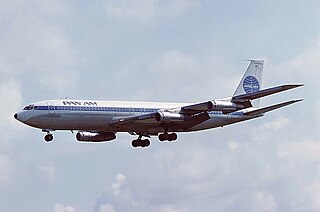
The Boeing 707 is an American, long-range, narrow-body airliner, the first jetliner developed and produced by Boeing Commercial Airplanes. Developed from the Boeing 367-80 prototype first flown in 1954, the initial 707-120 first flew on December 20, 1957. Pan American World Airways began regular 707 service on October 26, 1958. With versions produced until 1979, the 707 was a swept wing, quadjet with podded engines. Its larger fuselage cross-section allowed six-abreast economy seating, retained in the later 720, 727, 737, and 757 models.

On 14 January 2019, a Boeing 707 operated by Saha Airlines on a cargo flight crashed at Fath Air Base, near Karaj, Alborz Province in Iran. Fifteen of the sixteen people on board were killed. This aircraft was the last civil Boeing 707 in operation.
Fath Air Base is a military airfield near Karaj, Alborz Province, Iran.

Karaj is the capital of Alborz Province, Iran, and effectively a satellite city of Tehran. Although the county hosts a population around 1.97 million, as recorded in the 2016 census, most of the 1,419 km2 (548 sq mi) county is rugged mountain. The urban area is the fourth-largest in Iran, after Tehran, Mashhad, and Isfahan. Eshtehard County and Fardis County were split off from Karaj County since the previous census.

Alborz Province is one of the 31 provinces of Iran, centered in Karaj. The majority of the population of Alborz identify as ethnic Persians.

Iran, officially the Islamic Republic of Iran, and also called Persia, is a country in Western Asia. It is bordered by Iraq and Turkey to the west, by Azerbaijan and Armenia to the northwest, by the Caspian Sea and Turkmenistan to the north, by Afghanistan and Pakistan to the east, and by the Gulf of Oman and the Persian Gulf to the south. It covers an area of 1.64 million square kilometres, making it the 17th-largest country. Iran has a population of 86 million, making it the 17th-most populous country in the world, and the second-largest in the Middle East. Its largest cities, in descending order, are the capital Tehran, Mashhad, Isfahan, Karaj, Shiraz, and Tabriz.
Tunisian president Zine el Abidine Ben Ali fled the country after several violent protests.

Zine El Abidine Ben Ali, commonly known as Ben Ali or Ezzine, was a Tunisian politician who served as the 2nd president of Tunisia from 1987 to 2011. In that year, during the Tunisian revolution, he fled to Saudi Arabia.

The Tunisian Revolution, also called the Jasmine Revolution, was an intensive 28-day campaign of civil resistance. It included a series of street demonstrations which took place in Tunisia, and led to the ousting of longtime president Zine El Abidine Ben Ali in January 2011. It eventually led to a thorough democratisation of the country and to free and democratic elections.
President Zine El Abidine Ben Ali of Tunisia seeks refuge in Saudi Arabia after a series of demonstrations against his regime, considered to be the birth of the Arab Spring.

Zine El Abidine Ben Ali, commonly known as Ben Ali or Ezzine, was a Tunisian politician who served as the 2nd president of Tunisia from 1987 to 2011. In that year, during the Tunisian revolution, he fled to Saudi Arabia.
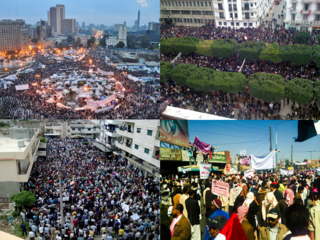
The Arab Spring was a series of anti-government protests, uprisings and armed rebellions that spread across much of the Arab world in the early 2010s. It began in Tunisia in response to corruption and economic stagnation. From Tunisia, the protests then spread to five other countries: Libya, Egypt, Yemen, Syria and Bahrain. Rulers were deposed or major uprisings and social violence occurred including riots, civil wars, or insurgencies. Sustained street demonstrations took place in Morocco, Iraq, Algeria, Lebanon, Jordan, Kuwait, Oman and Sudan. Minor protests took place in Djibouti, Mauritania, Palestine, Saudi Arabia and the Moroccan-occupied Western Sahara. A major slogan of the demonstrators in the Arab world is ash-shaʻb yurīd isqāṭ an-niẓām!.
Yemen declares an open war against the terrorist group al-Qaeda.

The Al-Qaeda insurgency in Yemen is an ongoing armed conflict between the Yemeni government, the United States and their allies, and al-Qaeda-affiliated cells in Yemen. It is a part of the Global War on Terror.

Al-Qaeda, officially known as Qaedat al-Jihad, is a multinational militant Sunni Islamic extremist network composed of Salafist jihadists. Its members are mostly composed of Arabs, but may also include other peoples. Al-Qaeda has mounted attacks on civilian and military targets in various countries, including the 1998 United States embassy bombings, the September 11 attacks, and the 2002 Bali bombings; it has been designated as a terrorist group by the United Nations Security Council, the North Atlantic Treaty Organization (NATO), the European Union, India, and various other countries.
The national flag of the Republic of Georgia, the so-called "five cross flag", is restored to official use after a hiatus of some 500 years.

Georgia is a transcontinental country at the intersection of Eastern Europe and Western Asia. It is part of the Caucasus region, bounded by the Black Sea to the west, by Russia to the north and northeast, by Turkey to the southwest, by Armenia to the south, and by Azerbaijan to the southeast. The country covers an area of 69,700 square kilometres (26,900 sq mi), and has a population of 3.7 million people. Tbilisi is its capital as well as its largest city, home to roughly a third of the Georgian population.

The flag of Georgia, also known as the five-cross flag, is one of the national symbols of Georgia. Originally a banner of the medieval Kingdom of Georgia, it was repopularised in the late 20th and early 21st centuries during the Georgian national revival.
In Poland's worst peacetime maritime disaster, ferry MS Jan Heweliusz sinks off the coast of Rügen, drowning 55 passengers and crew; nine crew-members are saved.

MS Jan Heweliusz was a Norwegian-built Polish ferry named after astronomer Johannes Hevelius that served on the route Ystad-Świnoujście. It was built in Norway in 1977 and was owned by Polish Ocean Lines and operated by its subsidiary company Euroafrica Shipping Lines. In the early hours of 14 January 1993 it capsized and sank in 27 metres of water off Cape Arcona on the coast of Rügen in the Baltic Sea while sailing toward Ystad with 64 passengers and crew. The accident claimed the lives of 20 crewmen and 35 passengers. 10 bodies were never found. Nine people were rescued. The sinking of Jan Heweliusz is the most deadly peacetime maritime disaster involving a Polish ship.
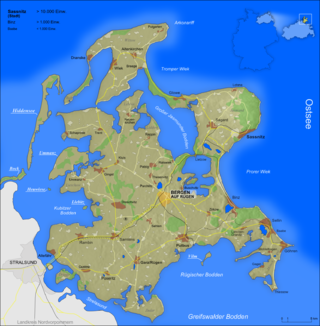
Rügen is Germany's largest island. It is located off the Pomeranian coast in the Baltic Sea and belongs to the state of Mecklenburg-Western Pomerania.
Austrian logician Kurt Gödel, who suffered from an obsessive fear of being poisoned, died of starvation after his wife was hospitalized and unable to cook for him.

Logic is the study of correct reasoning. It includes both formal and informal logic. Formal logic is the science of deductively valid inferences or of logical truths. It is a formal science investigating how conclusions follow from premises in a topic-neutral way. When used as a countable noun, the term "a logic" refers to a logical formal system that articulates a proof system. Formal logic contrasts with informal logic, which is associated with informal fallacies, critical thinking, and argumentation theory. While there is no general agreement on how formal and informal logic are to be distinguished, one prominent approach associates their difference with whether the studied arguments are expressed in formal or informal languages. Logic plays a central role in multiple fields, such as philosophy, mathematics, computer science, and linguistics.
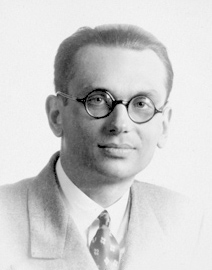
Kurt Friedrich Gödel was a logician, mathematician, and philosopher. Considered along with Aristotle and Gottlob Frege to be one of the most significant logicians in history, Gödel had an immense effect upon scientific and philosophical thinking in the 20th century, a time when others such as Bertrand Russell, Alfred North Whitehead, and David Hilbert were using logic and set theory to investigate the foundations of mathematics, building on earlier work by the likes of Richard Dedekind, Georg Cantor and Frege.
A persecutory delusion is a common type of delusional condition in which the affected person believes that harm is going to occur to oneself by a persecutor, despite a clear lack of evidence. The person may believe that they are being targeted by an individual or a group of people. Persecution delusions are very diverse in terms of content and vary from the possible, albeit improbable, to the completely bizarre. The delusion can be found in a multitude of disorders being more usual in psychotic disorders, such as schizophrenia, schizoaffective disorder and delusional disorder.
Elvis Presley's concert Aloha from Hawaii via Satellite was broadcast live to audiences in Asia and Oceania.
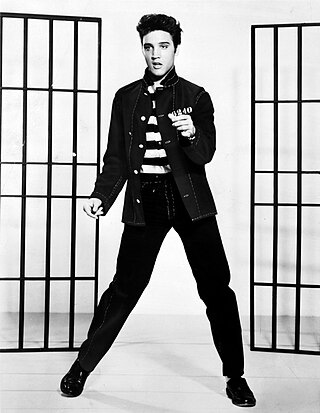
Elvis Aaron Presley, or simply Elvis, was an American singer and actor. Dubbed the "King of Rock and Roll", he is regarded as one of the most significant cultural figures of the 20th century. His energized interpretations of songs and sexually provocative performance style, combined with a singularly potent mix of influences across color lines during a transformative era in race relations, led him to both great success and initial controversy.

Aloha from Hawaii via Satellite is a concert starring Elvis Presley that took place at the Honolulu International Center and was broadcast live via satellite to audiences in Asia and Oceania on January 14, 1973. The show was presented with a delay in Europe. In the United States, to avoid a programming conflict with Super Bowl VII and Elvis on Tour which was playing in cinemas at the time, NBC opted to air a ninety-minute television special of the concert on April 4.
Elvis Presley's concert Aloha from Hawaii is broadcast live via satellite, and sets the record as the most watched broadcast by an individual entertainer in television history.

Elvis Aaron Presley, or simply Elvis, was an American singer and actor. Dubbed the "King of Rock and Roll", he is regarded as one of the most significant cultural figures of the 20th century. His energized interpretations of songs and sexually provocative performance style, combined with a singularly potent mix of influences across color lines during a transformative era in race relations, led him to both great success and initial controversy.

Aloha from Hawaii via Satellite is a concert starring Elvis Presley that took place at the Honolulu International Center and was broadcast live via satellite to audiences in Asia and Oceania on January 14, 1973. The show was presented with a delay in Europe. In the United States, to avoid a programming conflict with Super Bowl VII and Elvis on Tour which was playing in cinemas at the time, NBC opted to air a ninety-minute television special of the concert on April 4.

A communications satellite is an artificial satellite that relays and amplifies radio telecommunication signals via a transponder; it creates a communication channel between a source transmitter and a receiver at different locations on Earth. Communications satellites are used for television, telephone, radio, internet, and military applications. As of 1 January 2021, there are 2,224 communications satellites in Earth orbit. Most communications satellites are in geostationary orbit 22,300 miles (35,900 km) above the equator, so that the satellite appears stationary at the same point in the sky; therefore the satellite dish antennas of ground stations can be aimed permanently at that spot and do not have to move to track the satellite.
This page lists the television broadcasts which had the most viewers within individual countries, as measured by ratings and research agencies in those countries. The research methodology and choice of statistics varies between sources, and is explained in individual sections.
Queen Margrethe II of Denmark ascends the throne, the first Queen of Denmark since 1412 and the first Danish monarch not named Frederick or Christian since 1513.

Margrethe II is Queen of Denmark. Having reigned as Denmark's monarch for over 50 years, she is Europe's longest-serving current head of state.
The self-proclaimed Republic of Biafra in southeastern Nigeria surrendered to the federal government less than three years after declaring independence, ending the Nigerian Civil War.
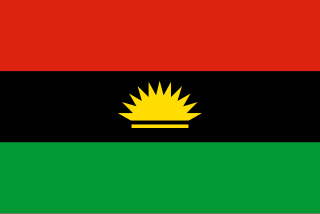
Biafra, officially the Republic of Biafra, was a partially recognised secessionist state in West Africa that declared independence from Nigeria and existed from 1967 until 1970. Its territory consisted of the predominantly Igbo-populated then Eastern Region of Nigeria which is now divided into the South-East and South-South regions of Nigeria. Biafra was established on 30 May 1967 by Igbo military officer C. Odumegwu Ojukwu under his leadership as the governor of the then Eastern region of Nigeria, following a series of ethnic tensions and military coups after Nigerian independence in 1960 that culminated in the 1966 massacres of Igbo people and other Eastern ethnic groups living in northern Nigeria. The military of Nigeria proceeded to invade Biafra shortly after its secession, resulting in the start of the Nigerian Civil War.

The Nigerian Civil War, also known as the Nigerian–Biafran War or the Biafran War, was a civil war fought between Nigeria and the Republic of Biafra, a secessionist state which had declared its independence from Nigeria in 1967. Nigeria was led by General Yakubu Gowon, while Biafra was led by Lieutenant Colonel Chukwuemeka "Emeka" Odumegwu Ojukwu. Biafra represented the nationalist aspirations of the Igbo ethnic group, whose leadership felt they could no longer coexist with the federal government dominated by the interests of the Muslim Hausa-Fulanis of Northern Nigeria. The conflict resulted from political, economic, ethnic, cultural and religious tensions which preceded the United Kingdom's formal decolonization of Nigeria from 1960 to 1963. Immediate causes of the war in 1966 included a military coup, a counter-coup, and anti-Igbo pogroms in Northern Nigeria. Control over the lucrative oil production in the Niger Delta also played a vital strategic role.
A major fire and series of explosions broke out aboard the U.S. Navy aircraft carrier USS Enterprise, killing 28 sailors, injuring 314, and destroying 15 aircraft.

The 1969 USS Enterprise fire was a major fire and series of explosions that broke out aboard USS Enterprise on January 14, 1969, off the coast of Oahu, Hawaii. The fire started when a Zuni rocket detonated under a plane's wing. It spread as more munitions exploded, blowing holes in the flight deck that allowed burning jet fuel to enter the ship. 28 sailors were killed, 314 were injured, 15 aircraft were destroyed, and the total cost of aircraft replacement and shipboard repair was over $126 million. The damage was lessened somewhat by improvements made after the similar 1967 USS Forrestal fire.

The United States Navy (USN) is the maritime service branch of the United States Armed Forces and one of the eight uniformed services of the United States. It is the largest and most powerful navy in the world, with the estimated tonnage of its active battle fleet alone exceeding the next 13 navies combined, including 11 allies or partner nations of the United States as of 2015. It has the highest combined battle fleet tonnage and the world's largest aircraft carrier fleet, with eleven in service, two new carriers under construction, and five other carriers planned. With 336,978 personnel on active duty and 101,583 in the Ready Reserve, the United States Navy is the third largest of the United States military service branches in terms of personnel. It has 290 deployable combat vessels and more than 2,623 operational aircraft as of June 2019.

USS Enterprise (CVN-65), formerly CVA(N)-65, is a decommissioned United States Navy aircraft carrier. She was the first nuclear-powered aircraft carrier and the eighth United States naval vessel to bear the name. Like her predecessor of World War II fame, she is nicknamed "Big E". At 1,123 feet (342 m), she is the longest naval vessel ever built. Enterprise is the only ship of a class that was originally planned to have five other ships. Her 93,284-long-ton (94,781 t) displacement ranks her class as the third-heaviest carrier class, after the Nimitz class and the Gerald R. Ford class. Enterprise had a crew of some 4,600 service members.
USS Enterprise fire: An accidental explosion aboard the USS Enterprise near Hawaii kills 28 people.

The 1969 USS Enterprise fire was a major fire and series of explosions that broke out aboard USS Enterprise on January 14, 1969, off the coast of Oahu, Hawaii. The fire started when a Zuni rocket detonated under a plane's wing. It spread as more munitions exploded, blowing holes in the flight deck that allowed burning jet fuel to enter the ship. 28 sailors were killed, 314 were injured, 15 aircraft were destroyed, and the total cost of aircraft replacement and shipboard repair was over $126 million. The damage was lessened somewhat by improvements made after the similar 1967 USS Forrestal fire.

USS Enterprise (CVN-65), formerly CVA(N)-65, is a decommissioned United States Navy aircraft carrier. She was the first nuclear-powered aircraft carrier and the eighth United States naval vessel to bear the name. Like her predecessor of World War II fame, she is nicknamed "Big E". At 1,123 feet (342 m), she is the longest naval vessel ever built. Enterprise is the only ship of a class that was originally planned to have five other ships. Her 93,284-long-ton (94,781 t) displacement ranks her class as the third-heaviest carrier class, after the Nimitz class and the Gerald R. Ford class. Enterprise had a crew of some 4,600 service members.
The Human Be-In, a countercultural event forming a prelude to the Summer of Love, was held in San Francisco's Golden Gate Park.
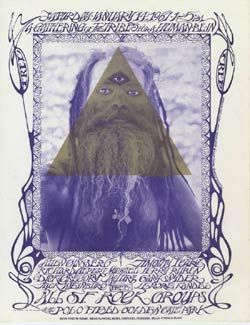
The Human Be-In was an event held in San Francisco's Golden Gate Park Polo Fields on January 14, 1967. It was a prelude to San Francisco's Summer of Love, which made the Haight-Ashbury district a symbol of American counterculture and introduced the word "psychedelic" to suburbia.

The counterculture of the 1960s was an anti-establishment cultural phenomenon that developed throughout much of the Western world in the 1960s and has been ongoing to the present day. The aggregate movement gained momentum as the civil rights movement in the United States continued to grow, and with the intensification of the Vietnam War, it would later become revolutionary to some. As the 1960s progressed, widespread social tensions also developed concerning other issues, and tended to flow along generational lines regarding human sexuality, women's rights, traditional modes of authority, rights of non-white people, end of racial segregation, experimentation with psychoactive drugs, and differing interpretations of the American Dream. Many key movements related to these issues were born or advanced within the counterculture of the 1960s.
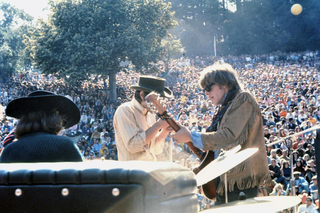
The Summer of Love was a social phenomenon that occurred during the summer of 1967, when as many as 100,000 people, mostly young people sporting hippie fashions of dress and behavior, converged in San Francisco's neighborhood of Haight-Ashbury. More broadly, the Summer of Love encompassed the hippie music, hallucinogenic drugs, anti-war, and free-love scene throughout the West Coast of the United States, and as far away as New York City.
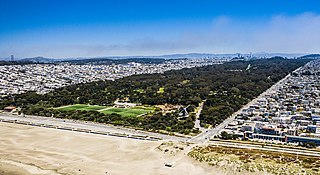
Golden Gate Park, located in San Francisco, California, United States, is a large urban park consisting of 1,017 acres (412 ha) of public grounds. It is administered by the San Francisco Recreation & Parks Department, which began in 1871 to oversee the development of Golden Gate Park. Configured as a rectangle, it is similar in shape to but 20 percent larger than Central Park in New York City, to which it is often compared. It is over three miles (4.8 km) long east to west, and about half a mile (0.8 km) north to south. With 24 million visitors annually, Golden Gate is the third most-visited city park in the United States after Central Park and the Lincoln Memorial.
Counterculture of the 1960s: The Human Be-In takes place in San Francisco, California's Golden Gate Park, launching the Summer of Love.

The counterculture of the 1960s was an anti-establishment cultural phenomenon that developed throughout much of the Western world in the 1960s and has been ongoing to the present day. The aggregate movement gained momentum as the civil rights movement in the United States continued to grow, and with the intensification of the Vietnam War, it would later become revolutionary to some. As the 1960s progressed, widespread social tensions also developed concerning other issues, and tended to flow along generational lines regarding human sexuality, women's rights, traditional modes of authority, rights of non-white people, end of racial segregation, experimentation with psychoactive drugs, and differing interpretations of the American Dream. Many key movements related to these issues were born or advanced within the counterculture of the 1960s.

The Human Be-In was an event held in San Francisco's Golden Gate Park Polo Fields on January 14, 1967. It was a prelude to San Francisco's Summer of Love, which made the Haight-Ashbury district a symbol of American counterculture and introduced the word "psychedelic" to suburbia.

San Francisco, officially the City and County of San Francisco, is the commercial, financial, and cultural center of Northern California. The city proper is the fourth most populous in California and 17th most populous in the United States, with 815,201 residents as of 2021. It covers a land area of 46.9 square miles, at the end of the San Francisco Peninsula, making it the second most densely populated large U.S. city after New York City, and the fifth most densely populated U.S. county, behind only four of the five New York City boroughs. Among the 331 U.S. cities proper with more than 100,000 residents, San Francisco was ranked first by per capita income and fifth by aggregate income as of 2019. Colloquial nicknames for San Francisco include SF, San Fran, The City, Frisco, and Baghdad by the Bay.

Golden Gate Park, located in San Francisco, California, United States, is a large urban park consisting of 1,017 acres (412 ha) of public grounds. It is administered by the San Francisco Recreation & Parks Department, which began in 1871 to oversee the development of Golden Gate Park. Configured as a rectangle, it is similar in shape to but 20 percent larger than Central Park in New York City, to which it is often compared. It is over three miles (4.8 km) long east to west, and about half a mile (0.8 km) north to south. With 24 million visitors annually, Golden Gate is the third most-visited city park in the United States after Central Park and the Lincoln Memorial.

The Summer of Love was a social phenomenon that occurred during the summer of 1967, when as many as 100,000 people, mostly young people sporting hippie fashions of dress and behavior, converged in San Francisco's neighborhood of Haight-Ashbury. More broadly, the Summer of Love encompassed the hippie music, hallucinogenic drugs, anti-war, and free-love scene throughout the West Coast of the United States, and as far away as New York City.
The Reserve Bank of Australia, the country's central bank and banknote-issuing authority, was established.
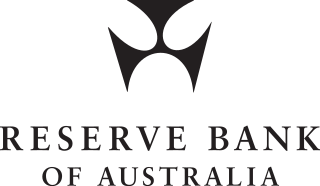
The Reserve Bank of Australia (RBA) is Australia's central bank and banknote issuing authority. It has had this role since 14 January 1960, when the Reserve Bank Act 1959 removed the central banking functions from the Commonwealth Bank.

A central bank, reserve bank, or monetary authority is an institution that manages the currency and monetary policy of a state or formal monetary union, and oversees their commercial banking system. In contrast to a commercial bank, a central bank possesses a monopoly on increasing the monetary base. Most central banks also have supervisory and regulatory powers to ensure the stability of member institutions, to prevent bank runs, and to discourage reckless or fraudulent behavior by member banks.
The Reserve Bank of Australia, the country's central bank and banknote issuing authority authorized by the 1959 Reserve Bank Act, is established.

The Reserve Bank of Australia (RBA) is Australia's central bank and banknote issuing authority. It has had this role since 14 January 1960, when the Reserve Bank Act 1959 removed the central banking functions from the Commonwealth Bank.

A central bank, reserve bank, or monetary authority is an institution that manages the currency and monetary policy of a state or formal monetary union, and oversees their commercial banking system. In contrast to a commercial bank, a central bank possesses a monopoly on increasing the monetary base. Most central banks also have supervisory and regulatory powers to ensure the stability of member institutions, to prevent bank runs, and to discourage reckless or fraudulent behavior by member banks.

A banknote—also called a bill, paper money, or simply a note—is a type of negotiable promissory note, made by a bank or other licensed authority, payable to the bearer on demand. Banknotes were originally issued by commercial banks, which were legally required to redeem the notes for legal tender when presented to the chief cashier of the originating bank. These commercial banknotes only traded at face value in the market served by the issuing bank. Commercial banknotes have primarily been replaced by national banknotes issued by central banks or monetary authorities.
Hindu spiritual leader Kripalu Maharaj (pictured) was named the fifth original jagadguru, meaning 'world teacher'.
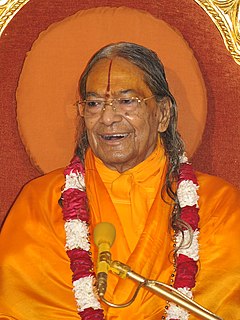
Jagadguru Shri Kripalu Ji Maharaj the fifth original Jagadguru in Indian history, the embodiment of the nectar of divine love, was one of the foremost rasik saints who showered the bliss of raganuga bhakti on souls the world over. Supreme Spiritual Master of the World, Jagadguru Shri Kripalu Ji Maharaj was the Descension of Divine Love and Bliss, Propounder of Eternal Vedic Philosophy and Reconciler of all Philosophies.
Jagadguru, literally meaning "guru of the universe", is a title used in Sanātana Dharma. Traditionally, it has been bestowed upon or used for ācāryas belonging to the Vedānta school who have written Sanskrit commentaries on the Prasthānatrayī – the Brahma sūtras, the Bhagavad-gītā and the principal Upaniṣads. Historically, jagadgurus have established a lineage, established an institution to spread dharma, who have been based in Varanasi, the centre of Sanskrit study.
Kripalu Maharaj is named fifth Jagadguru (world teacher) after giving seven days of speeches before 500 Hindu scholars.

Jagadguru Shri Kripalu Ji Maharaj the fifth original Jagadguru in Indian history, the embodiment of the nectar of divine love, was one of the foremost rasik saints who showered the bliss of raganuga bhakti on souls the world over. Supreme Spiritual Master of the World, Jagadguru Shri Kripalu Ji Maharaj was the Descension of Divine Love and Bliss, Propounder of Eternal Vedic Philosophy and Reconciler of all Philosophies.
Jagadguru, literally meaning "guru of the universe", is a title used in Sanātana Dharma. Traditionally, it has been bestowed upon or used for ācāryas belonging to the Vedānta school who have written Sanskrit commentaries on the Prasthānatrayī – the Brahma sūtras, the Bhagavad-gītā and the principal Upaniṣads. Historically, jagadgurus have established a lineage, established an institution to spread dharma, who have been based in Varanasi, the centre of Sanskrit study.
The Hudson Motor Car Company merges with Nash-Kelvinator Corporation forming the American Motors Corporation.
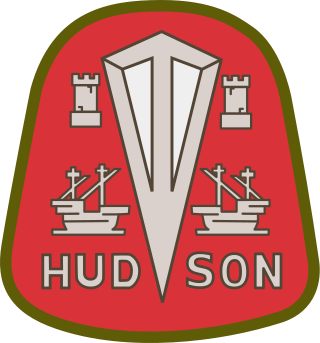
The Hudson Motor Car Company made Hudson and other branded automobiles in Detroit, Michigan, U.S., from 1909 until 1954. In 1954, Hudson merged with Nash-Kelvinator to form American Motors Corporation (AMC). The Hudson name was continued through the 1957 model year, after which it was discontinued.
Nash-Kelvinator Corporation was the result of a merger in 1937 between Nash Motors and Kelvinator Appliance Company. The union of these two companies was brought about as a result of a condition made by George W. Mason prior to his appointment as CEO of Nash. Nash-Kelvinator ranked 27th among United States corporations in the value of World War II production contracts.

American Motors Corporation was an American automobile manufacturing company formed by the merger of Nash-Kelvinator Corporation and Hudson Motor Car Company on May 1, 1954. At the time, it was the largest corporate merger in U.S. history.
Josip Broz Tito was inaugurated as the first president of Yugoslavia.

Josip Broz, commonly known as Tito, was a Yugoslav communist revolutionary and statesman, serving in various positions from 1943 until his death in 1980. During World War II, he was the leader of the Yugoslav Partisans, often regarded as the most effective resistance movement in German-occupied Europe. He also served as the president of the Socialist Federal Republic of Yugoslavia from 14 January 1953 until his death on 4 May 1980.
This article lists the heads of state of Yugoslavia from the creation of the Kingdom of Serbs, Croats and Slovenes in 1918 until the breakup of the Socialist Federal Republic of Yugoslavia in 1992.
Josip Broz Tito is elected the first President of Yugoslavia.

Josip Broz, commonly known as Tito, was a Yugoslav communist revolutionary and statesman, serving in various positions from 1943 until his death in 1980. During World War II, he was the leader of the Yugoslav Partisans, often regarded as the most effective resistance movement in German-occupied Europe. He also served as the president of the Socialist Federal Republic of Yugoslavia from 14 January 1953 until his death on 4 May 1980.
This article lists the heads of state of Yugoslavia from the creation of the Kingdom of Serbs, Croats and Slovenes in 1918 until the breakup of the Socialist Federal Republic of Yugoslavia in 1992.
NBC's long-running morning news program Today debuts, with host Dave Garroway.

The National Broadcasting Company (NBC) is an American English-language commercial broadcast television and radio network. The flagship property of the NBC Entertainment division of NBCUniversal, a division of Comcast, its headquarters are located at Comcast Building in New York City. The company also has offices in Los Angeles at 10 Universal City Plaza and Chicago at the NBC Tower. NBC is the oldest of the traditional "Big Three" American television networks, having been formed in 1926 by the Radio Corporation of America. NBC is sometimes referred to as the "Peacock Network," in reference to its stylized peacock logo, introduced in 1956 to promote the company's innovations in early color broadcasting.

Today is an American news and talk morning television show that airs weekdays from 7:00 a.m. to 11:00 a.m. on NBC. The program debuted on January 14, 1952. It was the first of its genre on American television and in the world, and after 70 years of broadcasting it is fifth on the list of longest-running United States television series.

David Cunningham Garroway was an American television personality. He was the founding host and anchor of NBC's Today from 1952 to 1961. His easygoing and relaxing style belied a lifelong battle with depression. Garroway has been honored for his contributions to radio and television with a star for each on the Hollywood Walk of Fame and the St. Louis Walk of Fame, the city where he spent part of his teenaged years and early adulthood.
Winston Churchill, Franklin D. Roosevelt, Charles de Gaulle, and Henri Giraud met in Casablanca to plan the Allies' European strategy for the next phase of World War II.

Sir Winston Leonard Spencer Churchill was a British statesman, soldier, and writer who served as Prime Minister of the United Kingdom twice, from 1940 to 1945 during the Second World War, and again from 1951 to 1955. Apart from two years between 1922 and 1924, he was a Member of Parliament (MP) from 1900 to 1964 and represented a total of five constituencies. Ideologically an economic liberal and imperialist, he was for most of his career a member of the Conservative Party, which he led from 1940 to 1955. He was a member of the Liberal Party from 1904 to 1924.
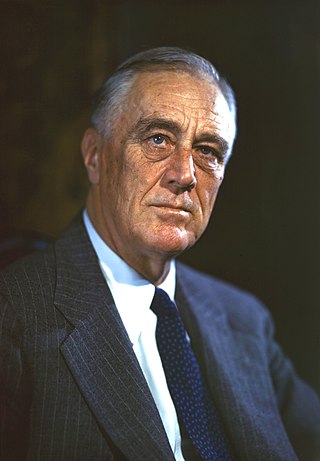
Franklin Delano Roosevelt, often referred to by his initials FDR, was an American politician and attorney who served as the 32nd president of the United States from 1933 until his death in 1945. As the leader of the Democratic Party, he won a record four presidential elections and became a central figure in world events during the first half of the 20th century. Roosevelt directed the federal government during most of the Great Depression, implementing his New Deal domestic agenda in response to the worst economic crisis in U.S. history. He built the New Deal Coalition, which defined modern liberalism in the United States throughout the middle third of the 20th century. His third and fourth terms were dominated by World War II, which ended in victory shortly after he died in office.

Charles André Joseph Marie de Gaulle was a French army officer and statesman who led Free France against Nazi Germany in World War II and chaired the Provisional Government of the French Republic from 1944 to 1946 in order to restore democracy in France. In 1958, he came out of retirement when appointed President of the Council of Ministers by President René Coty. He rewrote the Constitution of France and founded the Fifth Republic after approval by referendum. He was elected President of France later that year, a position to which he was reelected in 1965 and held until his resignation in 1969.
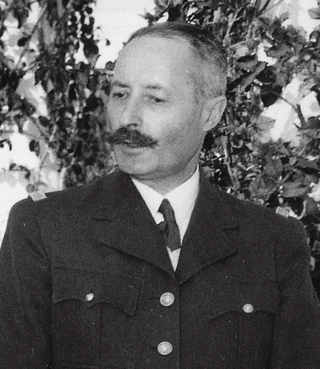
Henri Honoré Giraud was a French general and a leader of the Free French Forces during the Second World War until he was forced to retire in 1944.

The Casablanca Conference or Anfa Conference was held at the Anfa Hotel in Casablanca, French Morocco, from January 14 to 24, 1943, to plan the Allied European strategy for the next phase of World War II. In attendance were United States President Franklin D. Roosevelt and British prime minister Winston Churchill. Also attending were the sovereign of Morocco, Sultan Muhammad V, and representing the Free French forces, Generals Charles de Gaulle and Henri Giraud, but they played minor roles and were not part of the military planning. USSR general secretary Joseph Stalin declined to attend, citing the ongoing Battle of Stalingrad as requiring his presence in the Soviet Union.

The Allies, formally referred to as the United Nations from 1942, were an international military coalition formed during the Second World War (1939–1945) to oppose the Axis powers, led by Nazi Germany, Imperial Japan, and Fascist Italy. Its principal members by 1941 were the United Kingdom, United States, Soviet Union, and China.

World War II or the Second World War, often abbreviated as WWII or WW2, was a world war that lasted from 1939 to 1945. It involved the vast majority of the world's countries—including all of the great powers—forming two opposing military alliances: the Allies and the Axis powers. World War II was a total war that directly involved more than 100 million personnel from more than 30 countries.
World War II: Japan begins Operation Ke, the successful operation to evacuate its forces from Guadalcanal during the Guadalcanal Campaign.

World War II or the Second World War, often abbreviated as WWII or WW2, was a world war that lasted from 1939 to 1945. It involved the vast majority of the world's countries—including all of the great powers—forming two opposing military alliances: the Allies and the Axis powers. World War II was a total war that directly involved more than 100 million personnel from more than 30 countries.

Operation Ke was the largely successful withdrawal of Japanese forces from Guadalcanal, concluding the Guadalcanal Campaign of World War II. The operation took place between 14 January and 7 February 1943, and involved both Imperial Japanese Army (IJA) and Imperial Japanese Navy (IJN) forces under the overall direction of the Japanese Imperial General Headquarters (IGH). Commanders of the operation included Isoroku Yamamoto and Hitoshi Imamura.

Guadalcanal is the principal island in Guadalcanal Province of Solomon Islands, located in the south-western Pacific, northeast of Australia. It is the largest island in the Solomon Islands by area, and the second by population. The island is mainly covered in dense tropical rainforest and has a mountainous hinterland.

The Guadalcanal campaign, also known as the Battle of Guadalcanal and codenamed Operation Watchtower by American forces, was a military campaign fought between 7 August 1942 and 9 February 1943 on and around the island of Guadalcanal in the Pacific theater of World War II. It was the first major land offensive by Allied forces against the Empire of Japan.
World War II: Franklin D. Roosevelt and Winston Churchill begin the Casablanca Conference to discuss strategy and study the next phase of the war.

Franklin Delano Roosevelt, often referred to by his initials FDR, was an American politician and attorney who served as the 32nd president of the United States from 1933 until his death in 1945. As the leader of the Democratic Party, he won a record four presidential elections and became a central figure in world events during the first half of the 20th century. Roosevelt directed the federal government during most of the Great Depression, implementing his New Deal domestic agenda in response to the worst economic crisis in U.S. history. He built the New Deal Coalition, which defined modern liberalism in the United States throughout the middle third of the 20th century. His third and fourth terms were dominated by World War II, which ended in victory shortly after he died in office.

Sir Winston Leonard Spencer Churchill was a British statesman, soldier, and writer who served as Prime Minister of the United Kingdom twice, from 1940 to 1945 during the Second World War, and again from 1951 to 1955. Apart from two years between 1922 and 1924, he was a Member of Parliament (MP) from 1900 to 1964 and represented a total of five constituencies. Ideologically an economic liberal and imperialist, he was for most of his career a member of the Conservative Party, which he led from 1940 to 1955. He was a member of the Liberal Party from 1904 to 1924.

The Casablanca Conference or Anfa Conference was held at the Anfa Hotel in Casablanca, French Morocco, from January 14 to 24, 1943, to plan the Allied European strategy for the next phase of World War II. In attendance were United States President Franklin D. Roosevelt and British prime minister Winston Churchill. Also attending were the sovereign of Morocco, Sultan Muhammad V, and representing the Free French forces, Generals Charles de Gaulle and Henri Giraud, but they played minor roles and were not part of the military planning. USSR general secretary Joseph Stalin declined to attend, citing the ongoing Battle of Stalingrad as requiring his presence in the Soviet Union.
Norway claimed Queen Maud Land, a 2.7-million km2 (1.0-million sq mi) region of Antarctica, as a dependent territory.

Queen Maud Land is a roughly 2.7-million-square-kilometre (1.0-million-square-mile) region of Antarctica claimed by Norway as a dependent territory. It borders the claimed British Antarctic Territory 20° west and the Australian Antarctic Territory 45° east. In addition, a small unclaimed area from 1939 was annexed in June 2015. Positioned in East Antarctica, it makes out about one-fifth of the continent, and is named after the Norwegian queen Maud of Wales (1869–1938).
A dependent territory, dependent area, or dependency is a territory that does not possess full political independence or sovereignty as a sovereign state, yet remains politically outside the controlling state's integral area.
Norway claims Queen Maud Land in Antarctica.

Queen Maud Land is a roughly 2.7-million-square-kilometre (1.0-million-square-mile) region of Antarctica claimed by Norway as a dependent territory. It borders the claimed British Antarctic Territory 20° west and the Australian Antarctic Territory 45° east. In addition, a small unclaimed area from 1939 was annexed in June 2015. Positioned in East Antarctica, it makes out about one-fifth of the continent, and is named after the Norwegian queen Maud of Wales (1869–1938).
The England cricket team employed bodyline tactics against Australia during a Test match at the Adelaide Oval, the peak of a major controversy in the sport.
The England cricket team represents England and Wales in international cricket. Since 1997, it has been governed by the England and Wales Cricket Board (ECB), having been previously governed by Marylebone Cricket Club since 1903. England, as a founding nation, is a Full Member of the International Cricket Council (ICC) with Test, One Day International (ODI) and Twenty20 International (T20I) status. Until the 1990s, Scottish and Irish players also played for England as those countries were not yet ICC members in their own right.

Bodyline, also known as fast leg theory bowling, was a cricketing tactic devised by the English cricket team for their 1932–33 Ashes tour of Australia. It was designed to combat the extraordinary batting skill of Australia's leading batsman, Don Bradman. A bodyline delivery was one in which the cricket ball was bowled, at pace, at the body of the batsman in the expectation that when he defended himself with his bat a resulting deflection could be caught by one of several fielders standing close by on the leg side.
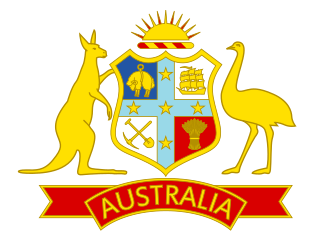
The Australia men's national cricket team represents Australia in men's international cricket. As the joint oldest team in Test cricket history, playing in the first ever Test match in 1877, the team also plays One-Day International (ODI) and Twenty20 International (T20I) cricket, participating in both the first ODI, against England in the 1970–71 season and the first T20I, against New Zealand in the 2004–05 season, winning both games. The team draws its players from teams playing in the Australian domestic competitions – the Sheffield Shield, the Australian domestic limited-overs cricket tournament and the Big Bash League.

Test cricket is a form of first-class cricket played at international level between teams representing full member countries of the International Cricket Council (ICC). A match consists of four innings and is scheduled to last for up to five days. In the past, some Test matches had no time limit and were called Timeless Tests. The term "test match" was originally coined in 1861–62 but in a different context.
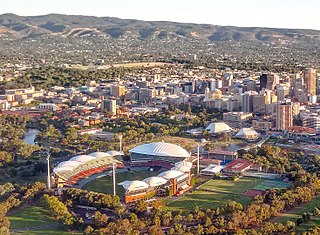
Adelaide Oval is a sports ground in Adelaide, South Australia, located in the parklands between the city centre and North Adelaide. The venue is predominantly used for cricket and Australian rules football, but has also played host to rugby league, rugby union, soccer, tennis among other sports as well as regularly being used to hold concerts. Austadiums.com described Adelaide Oval as being "one of the most picturesque Test cricket grounds in Australia, if not the world". After the completion of the ground's most recent redevelopment in 2014, sports journalist Gerard Whateley described the venue as being "the most perfect piece of modern architecture because it's a thoroughly contemporary stadium with all the character that it's had in the past".
Roald Amundsen's South Pole expedition makes landfall on the eastern edge of the Ross Ice Shelf.

Roald Engelbregt Gravning Amundsen was a Norwegian explorer of polar regions. He was a key figure of the period known as the Heroic Age of Antarctic Exploration.

The first ever expedition to reach the geographic Southern Pole was led by the Norwegian explorer Roald Amundsen. He and four others arrived at the pole on 14 December 1911, five weeks ahead of a British party led by Robert Falcon Scott as part of the Terra Nova Expedition. Amundsen and his team returned safely to their base, and later heard that Scott and his four companions had died on their return journey.
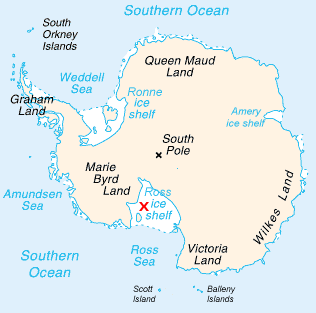
The Ross Ice Shelf is the largest ice shelf of Antarctica. It is several hundred metres thick. The nearly vertical ice front to the open sea is more than 600 kilometres (370 mi) long, and between 15 and 50 metres high above the water surface. Ninety percent of the floating ice, however, is below the water surface.
An earthquake registering 6.2 Mw struck Kingston, Jamaica, resulting in approximately 1,000 deaths.

The 1907 Kingston earthquake which shook the capital of the island of Jamaica with a magnitude of 6.2 on the moment magnitude scale on Monday January 14, at about 3:30 p.m. local time, is described by the United States Geological Survey as one of the world's deadliest earthquakes recorded in history. Every building in Kingston was damaged by the earthquake and subsequent fires, which lasted for three hours before any efforts could be made to check them, culminating in the death of about 1,000 people, and causing approximately $30 million in material damage. Shortly after, a tsunami was reported on the north coast of Jamaica, with a maximum wave height of about 2 m (6–8 ft).
The moment magnitude scale is a measure of an earthquake's magnitude based on its seismic moment. It was defined in a 1979 paper by Thomas C. Hanks and Hiroo Kanamori. Similar to the local magnitude scale (ML ) defined by Charles Francis Richter in 1935, it uses a logarithmic scale; small earthquakes have approximately the same magnitudes on both scales.

Kingston is the capital and largest city of Jamaica, located on the southeastern coast of the island. It faces a natural harbour protected by the Palisadoes, a long sand spit which connects the town of Port Royal and the Norman Manley International Airport to the rest of the island. In the Americas, Kingston is the largest predominantly English-speaking city in the Caribbean.
An earthquake in Kingston, Jamaica kills more than 1,000 people.

The 1907 Kingston earthquake which shook the capital of the island of Jamaica with a magnitude of 6.2 on the moment magnitude scale on Monday January 14, at about 3:30 p.m. local time, is described by the United States Geological Survey as one of the world's deadliest earthquakes recorded in history. Every building in Kingston was damaged by the earthquake and subsequent fires, which lasted for three hours before any efforts could be made to check them, culminating in the death of about 1,000 people, and causing approximately $30 million in material damage. Shortly after, a tsunami was reported on the north coast of Jamaica, with a maximum wave height of about 2 m (6–8 ft).
Giacomo Puccini's opera Tosca, based on the play La Tosca by French dramatist Victorien Sardou, premiered at the Teatro Costanzi in Rome.
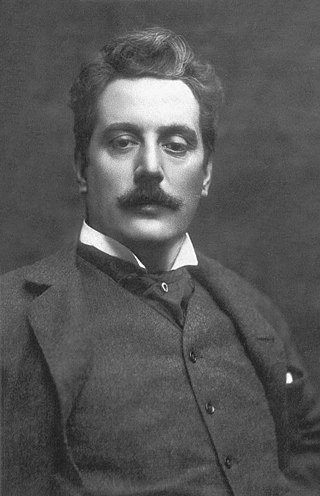
Giacomo Puccini was an Italian composer known primarily for his operas. Regarded as the greatest and most successful proponent of Italian opera after Verdi, he was descended from a long line of composers, stemming from the late-Baroque era. Though his early work was firmly rooted in traditional late-19th-century Romantic Italian opera he later developed his work in the realistic verismo style, of which he became one of the leading exponents.

Tosca is an opera in three acts by Giacomo Puccini to an Italian libretto by Luigi Illica and Giuseppe Giacosa. It premiered at the Teatro Costanzi in Rome on 14 January 1900. The work, based on Victorien Sardou's 1887 French-language dramatic play, La Tosca, is a melodramatic piece set in Rome in June 1800, with the Kingdom of Naples's control of Rome threatened by Napoleon's invasion of Italy. It contains depictions of torture, murder, and suicide, as well as some of Puccini's best-known lyrical arias.

La Tosca is a five-act drama by the 19th-century French playwright Victorien Sardou. It was first performed on 24 November 1887 at the Théâtre de la Porte Saint-Martin in Paris, with Sarah Bernhardt in the title role. Despite negative reviews from the Paris critics at the opening night, it became one of Sardou's most successful plays and was toured by Bernhardt throughout the world in the years following its premiere. The play itself had dropped from the standard theatrical repertoire by the mid-1920s, but its operatic adaptation, Giacomo Puccini's Tosca, has achieved enduring popularity. There have been several other adaptations of the play including two for the Japanese theatre and an English burlesque, Tra-La-La Tosca as well as several film versions.

Victorien Sardou was a French dramatist. He is best remembered today for his development, along with Eugène Scribe, of the well-made play. He also wrote several plays that were made into popular 19th-century operas such as La Tosca (1887) on which Giacomo Puccini's opera Tosca (1900) is based, and Fédora (1882) and Madame Sans-Gêne (1893) that provided the subjects for the lyrical dramas Fedora (1898) and Madame Sans-Gêne (1915) by Umberto Giordano. His play Gismonda, from 1894, was also adapted into an opera of the same name by Henry Février.

The Teatro dell'Opera di Roma is an opera house in Rome, Italy. Originally opened in November 1880 as the 2,212 seat Costanzi Theatre, it has undergone several changes of name as well modifications and improvements. The present house seats 1,600.
Giacomo Puccini's Tosca opens in Rome.

Giacomo Puccini was an Italian composer known primarily for his operas. Regarded as the greatest and most successful proponent of Italian opera after Verdi, he was descended from a long line of composers, stemming from the late-Baroque era. Though his early work was firmly rooted in traditional late-19th-century Romantic Italian opera he later developed his work in the realistic verismo style, of which he became one of the leading exponents.

Tosca is an opera in three acts by Giacomo Puccini to an Italian libretto by Luigi Illica and Giuseppe Giacosa. It premiered at the Teatro Costanzi in Rome on 14 January 1900. The work, based on Victorien Sardou's 1887 French-language dramatic play, La Tosca, is a melodramatic piece set in Rome in June 1800, with the Kingdom of Naples's control of Rome threatened by Napoleon's invasion of Italy. It contains depictions of torture, murder, and suicide, as well as some of Puccini's best-known lyrical arias.
Napoleon III of France escapes an assassination attempt made by Felice Orsini and his accomplices in Paris.

Napoleon III was the first President of France from 1848 to 1852 and the last monarch of France as Emperor of the French from 1852 to 1870. A nephew of Napoleon I, he was the last monarch to rule over France. Elected to the presidency of the Second Republic in 1848, he seized power by force in 1851, when he could not constitutionally be reelected; he later proclaimed himself Emperor of the French. He founded the Second Empire, reigning until the defeat of the French Army and his capture by Prussia and its allies at the Battle of Sedan in 1870. Napoleon III was a popular monarch who oversaw the modernization of the French economy and filled Paris with new boulevards and parks. He expanded the French overseas empire, made the French merchant navy the second largest in the world, and engaged in the Second Italian War of Independence as well as the disastrous Franco-Prussian War, during which he personally commanded his soldiers and was captured.

Felice Orsini was an Italian revolutionary and leader of the Carbonari who tried to assassinate Napoleon III, Emperor of the French.
Treaty of Kiel: Frederick VI of Denmark cedes the Kingdom of Norway to Charles XIII of Sweden in return for Pomerania.

The Treaty of Kiel or Peace of Kiel was concluded between the United Kingdom of Great Britain and Ireland and the Kingdom of Sweden on one side and the Kingdoms of Denmark and Norway on the other side on 14 January 1814 in Kiel. It ended the hostilities between the parties in the ongoing Napoleonic Wars, where the United Kingdom and Sweden were part of the anti-French camp while Denmark–Norway was allied to France.
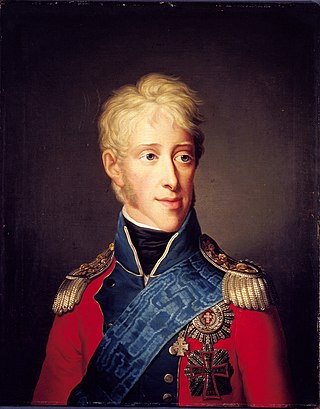
Frederick VI was King of Denmark from 13 March 1808 to 3 December 1839 and King of Norway from 13 March 1808 to 7 February 1814, making him the last king of Denmark–Norway. From 1784 until his accession, he served as regent during his father's mental illness and was referred to as the "Crown Prince Regent". For his motto he chose God and the just cause and since the time of his reign, succeeding Danish monarchs have also chosen mottos in the Danish language rather than the formerly customary Latin. As Frederick VI had no surviving sons to succeed him, he was succeeded on the throne of Denmark by his half-first cousin Christian, who was his father's half-brother's son.

Norway, officially the Kingdom of Norway, is a Nordic country in Northern Europe, the mainland territory of which comprises the western and northernmost portion of the Scandinavian Peninsula. The remote Arctic island of Jan Mayen and the archipelago of Svalbard also form part of Norway. Bouvet Island, located in the Subantarctic, is a dependency of Norway; it also lays claims to the Antarctic territories of Peter I Island and Queen Maud Land. The capital and largest city in Norway is Oslo.

Charles XIII, or Carl XIII, was King of Sweden from 1809 and King of Norway from 1814 to his death. He was the second son of King Adolf Frederick of Sweden and Louisa Ulrika of Prussia, sister of Frederick the Great.
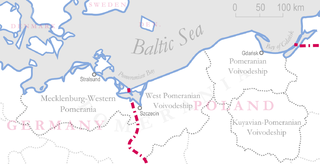
Pomerania is a historical region on the southern shore of the Baltic Sea in Central Europe, split between Poland and Germany. The western part of Pomerania belongs to the German states of Mecklenburg-Western Pomerania and Brandenburg, while the eastern part belongs to the West Pomeranian, Pomeranian and Kuyavian-Pomeranian voivodeships of Poland. Its historical border in the west is the Mecklenburg-Western Pomeranian border Urstromtal which now constitutes the border between the Mecklenburgian and Pomeranian part of Mecklenburg-Western Pomerania, while it is bounded by the Vistula River in the east. The easternmost part of Pomerania is alternatively known as Pomerelia, consisting of four sub-regions: Kashubia inhabited by ethnic Kashubians, Kociewie, Tuchola Forest and Chełmno Land.
American Revolutionary War: Ratification Day, United States - Congress ratifies the Treaty of Paris with Great Britain.

The American Revolutionary War, also known as the Revolutionary War or American War of Independence, secured American independence from Great Britain. Fighting began on April 19, 1775, followed by the Lee Resolution on July 2, 1776, and the Declaration of Independence on July 4, 1776. The American Patriots were supported by the Kingdom of France and, to a lesser extent, the Dutch Republic and the Spanish Empire, in a conflict taking place in North America, the Caribbean, and the Atlantic Ocean.
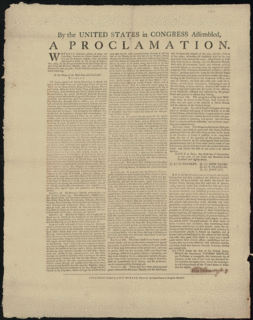
Ratification Day in the United States is the anniversary of the congressional proclamation of the ratification of the Treaty of Paris, on January 14, 1784, at the Maryland State House in Annapolis, Maryland, by the Confederation Congress, which marked the official end of the American Revolutionary War.
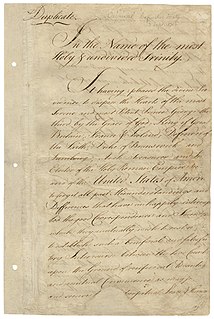
The Treaty of Paris, signed in Paris by representatives of King George III of Great Britain and representatives of the United States of America on September 3, 1783, officially ended the American Revolutionary War and overall state of conflict between the two countries. The treaty set the boundaries between the British Empire in North America and the United States of America, on lines "exceedingly generous" to the latter. Details included fishing rights and restoration of property and prisoners of war.

The Kingdom of Great Britain was a sovereign country in Western Europe from 1 May 1707 to the end of 31 December 1800. The state was created by the 1706 Treaty of Union and ratified by the Acts of Union 1707, which united the kingdoms of England and Scotland to form a single kingdom encompassing the whole island of Great Britain and its outlying islands, with the exception of the Isle of Man and the Channel Islands. The unitary state was governed by a single parliament at the Palace of Westminster, but distinct legal systems – English law and Scots law – remained in use.
The Third Battle of Panipat is fought in India between the Afghans under Ahmad Shah Durrani and the Marathas.

The Third Battle of Panipat took place on 14 January 1761 between the Maratha Empire and the invading army of the Durrani Empire. The battle took place in and around the city of Panipat, approximately 97 kilometres (60 mi) north of Delhi. The Afghans were supported by four key allies in India: the Pashtun Rohillas under the command of Najib ad-Dawlah, the Baloch Khanate of Kalat, and the Oudh State under Shuja-ud-Daula as well as elements of the declining Mughal Empire. The Maratha army was led by Sadashivrao Bhau, who was third-highest authority of the Maratha Empire after the Chhatrapati and the Peshwa. The bulk of the Maratha army was stationed in the Deccan Plateau with the Peshwa.

Afghanistan, officially the Islamic Emirate of Afghanistan, is a landlocked country located at the crossroads of Central Asia and South Asia. Referred to as the Heart of Asia, it is bordered by Pakistan to the east and south, Iran to the west, Turkmenistan to the northwest, Uzbekistan to the north, Tajikistan to the northeast, and China to the northeast and east. Occupying 652,864 square kilometers (252,072 sq mi) of land, the country is predominantly mountainous with plains in the north and the southwest, which are separated by the Hindu Kush mountain range. As of 2021, its population is 40.2 million, composed mostly of ethnic Pashtuns, Tajiks, Hazaras, and Uzbeks. Kabul is the country's largest city and serves as its capital.

Ahmad Shāh Durrānī, also known as Ahmad Shāh Abdālī, was the founder of the Durrani Empire and is regarded as the founder of the modern Afghanistan. In July 1747, Ahmad Shah was appointed as King of the Afghans by a loya jirga in Kandahar, where he set up his capital. Primarily with the support of the Pashtun tribes, Ahmad Shah pushed east towards the Mughal and Maratha Empires of India, west towards the disintegrating Afsharid Empire of Iran, and north towards the Khanate of Bukhara of Turkestan. Within a few years, he extended his control from Khorasan in the west to North India in the east, and from the Amu Darya in the north to the Arabian Sea in the south.
The "Fundamental Orders", the first written constitution that created a government, is adopted in Connecticut.

The Fundamental Orders were adopted by the Connecticut Colony council on January 24 [O.S. January 14] 1639. The fundamental orders describe the government set up by the Connecticut River towns, setting its structure and powers. They wanted the government to have access to the open ocean for trading.

A constitution is the aggregate of fundamental principles or established precedents that constitute the legal basis of a polity, organisation or other type of entity and commonly determine how that entity is to be governed.

A government is the system or group of people governing an organized community, generally a state.

Connecticut is the southernmost state in the New England region of the Northeastern United States. It is bordered by Rhode Island to the east, Massachusetts to the north, New York to the west, and Long Island Sound to the south. Its capital is Hartford and its most populous city is Bridgeport. Historically the state is part of New England as well as the tri-state area with New York and New Jersey. The state is named for the Connecticut River which approximately bisects the state. The word "Connecticut" is derived from various anglicized spellings of "Quinnetuket”, a Mohegan-Pequot word for "long tidal river".
King Andrew III died without any male heirs, ending the Árpád dynasty, which had ruled Hungary since the late 9th century.
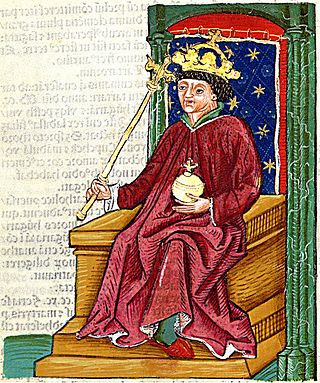
Andrew III the Venetian was King of Hungary and Croatia between 1290 and 1301. His father, Stephen the Posthumous, was the posthumous son of Andrew II of Hungary although Stephen's older half brothers considered him a bastard. Andrew grew up in Venice, and first arrived in Hungary upon the invitation of a rebellious baron, Ivan Kőszegi, in 1278. Kőszegi tried to play Andrew off against Ladislaus IV of Hungary, but the conspiracy collapsed and Andrew returned to Venice.
The Árpád dynasty, consisted of the members of the royal House of Árpád, also known as Árpáds. They were the ruling dynasty of the Principality of Hungary in the 9th and 10th centuries and of the Kingdom of Hungary from 1000 to 1301. The dynasty was named after the Hungarian Grand Prince Árpád who was the head of the Hungarian tribal federation during the conquest of the Carpathian Basin, c. 895. Previously, it was referred to as the Turul dynasty or kindred.
Andrew III of Hungary dies, ending the Árpád dynasty in Hungary.

Andrew III the Venetian was King of Hungary and Croatia between 1290 and 1301. His father, Stephen the Posthumous, was the posthumous son of Andrew II of Hungary although Stephen's older half brothers considered him a bastard. Andrew grew up in Venice, and first arrived in Hungary upon the invitation of a rebellious baron, Ivan Kőszegi, in 1278. Kőszegi tried to play Andrew off against Ladislaus IV of Hungary, but the conspiracy collapsed and Andrew returned to Venice.
The Árpád dynasty, consisted of the members of the royal House of Árpád, also known as Árpáds. They were the ruling dynasty of the Principality of Hungary in the 9th and 10th centuries and of the Kingdom of Hungary from 1000 to 1301. The dynasty was named after the Hungarian Grand Prince Árpád who was the head of the Hungarian tribal federation during the conquest of the Carpathian Basin, c. 895. Previously, it was referred to as the Turul dynasty or kindred.
King Henry III of England marries Eleanor of Provence.

Henry III, also known as Henry of Winchester, was King of England, Lord of Ireland, and Duke of Aquitaine from 1216 until his death in 1272. The son of King John and Isabella of Angoulême, Henry assumed the throne when he was only nine in the middle of the First Barons' War. Cardinal Guala Bicchieri declared the war against the rebel barons to be a religious crusade and Henry's forces, led by William Marshal, defeated the rebels at the battles of Lincoln and Sandwich in 1217. Henry promised to abide by the Great Charter of 1225, a later version of the 1215 Magna Carta, which limited royal power and protected the rights of the major barons. His early rule was dominated first by Hubert de Burgh and then Peter des Roches, who re-established royal authority after the war. In 1230, the King attempted to reconquer the provinces of France that had once belonged to his father, but the invasion was a debacle. A revolt led by William Marshal's son Richard broke out in 1232, ending in a peace settlement negotiated by the Church.
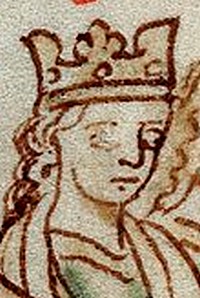
Eleanor of Provence was a French noblewoman who became Queen of England as the wife of King Henry III from 1236 until his death in 1272. She served as regent of England during the absence of her spouse in 1253.
Joel Robert, Belgian professional motocross racer (b. 1943) deaths
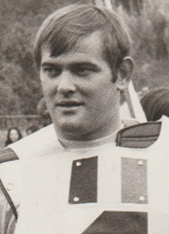
Joël Robert was a Belgian professional motocross racer. He competed in the Motocross World Championships from 1960 to 1976 when the sport experienced a surge in popularity worldwide. A six-time world champion, Robert dominated the 250cc class for almost a decade when, he placed either first or second every year between 1964 and 1972 including, five consecutive world championships. In 1964, he was named the recipient of the Belgian National Sports Merit Award. He won a total of 50 Grand Prix races over his career, a record which stood for nearly 30 years.
Spanky Manikan, Filipino veteran actor (b. 1942) deaths
Spanky Manikan was a Filipino theater, film and television actor.
Cyrille Regis, French Guianan-English footballer (b. 1958) deaths

Cyrille Regis, MBE was a professional footballer who played as a forward. His professional playing career spanned 19 years, where he made 614 league appearances and scored 158 league goals, most prolifically at West Bromwich Albion and Coventry City. Born in French Guiana, Regis also won five caps with the England national team.
Zhou Youguang, Chinese sociologist, (b. 1906) deaths
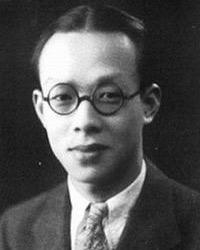
Zhou Youguang, also known as Chou Yu-kuang or Chou Yao-ping, was a Chinese economist, banker, linguist, sinologist, Esperantist, publisher, and supercentenarian, known as the "father of Pinyin", a system for the writing of Mandarin Chinese in Roman script, or romanization, which was officially adopted by the government of the People's Republic of China in 1958, the International Organization for Standardization (ISO) in 1982, and the United Nations in 1986.
René Angélil, Canadian music producer, talent manager, and singer (b. 1942) deaths

René Angélil was a Canadian musical producer, talent manager and singer. He was the manager and husband of singer Celine Dion.
Alan Rickman, English actor (b. 1946) deaths

Alan Sidney Patrick Rickman was an English actor and director. Known for his deep, languid voice, he trained at the Royal Academy of Dramatic Art in London and became a member of the Royal Shakespeare Company (RSC), performing in modern and classical theatre productions. He played the Vicomte de Valmont in the RSC stage production of Les Liaisons Dangereuses in 1985, and after the production transferred to the West End in 1986 and Broadway in 1987, he was nominated for a Tony Award.
Bob Boyd, American basketball player and coach (b. 1930) deaths

William Robert Boyd was an American collegiate men's basketball coach who was head coach at Seattle University, the University of Southern California (USC) and Mississippi State University.
Zhang Wannian, Chinese general (b. 1928) deaths

Zhang Wannian was a general of the People's Liberation Army (PLA) of the People's Republic of China.
Jon Bing, Norwegian author, scholar, and academic (b. 1944) deaths
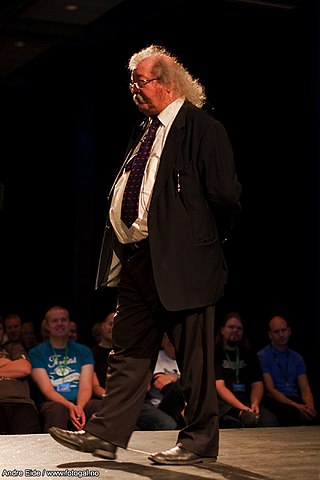
Jon Bing was a Norwegian writer and law professor at the Norwegian Research Center for Computers and Law (NRCCL), and the Faculty of Law at the University of Oslo. Bing was considered a pioneer in international IT and information law. He held honorary doctorates from the University of Stockholm and the University of Copenhagen, and was a Visiting Professor at Kings College, University of London. Bing was part of The Protection of Privacy Committee. From 1979 to 1981 he was head of Norsk Filmråd. Between 1981 and 1982, he was the head of The Council of Europe Committee on Legal Data Processing. Between 1993 and 2000, he headed Norsk kulturråd.
Juan Gelman, Argentinian poet and author (b. 1930) deaths

Juan Gelman was an Argentine poet. He published more than twenty books of poetry between 1956 and his death in early 2014. He was a naturalized citizen of Mexico, country where he arrived as a political exile of the Military Junta.
Flavio Testi, Italian composer and musicologist (b. 1923) deaths
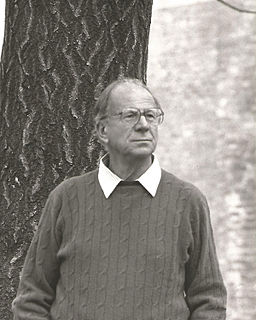
Flavio Testi was an Italian composer of contemporary classical music and musicologist.
Conrad Bain, Canadian-American actor (b. 1923) deaths

Conrad Stafford Bain was a Canadian-American comedian and actor. His television credits include a leading role as Phillip Drummond in the sitcom Diff'rent Strokes, as Dr. Arthur Harmon on Maude, and as Charlie Ross in Mr. President (1987–1988).
Txillardegi, Spanish linguist and politician (b. 1929) deaths

José Luis Álvarez Enparantza, better known by his pseudonym Txillardegi, was a Spanish linguist, politician, and writer. He was born and raised in the Basque Country, and although he didn't learn the Basque language until the age of 17, he later came to be considered one of the most influential figures in Basque nationalism and culture in the second half of the 20th century. He was one of the founders of ETA, but in 1967 he left because he did not agree with its political line.
Dan Evins, American businessman, founded Cracker Barrel Old Country Store (b. 1935) deaths
Danny Wood Evins was an American entrepreneur and co-founder of Cracker Barrel, a Southern-themed restaurant chain.

Cracker Barrel Old Country Store, Inc., doing business as simply Cracker Barrel, is an American chain of restaurant and gift stores with a Southern country theme. The company was founded by Dan Evins in 1969. Its first store was in Lebanon, Tennessee; the corporate offices are located at a different facility in the same city. The chain's stores were at first positioned near Interstate Highway exits in the Southeastern and Midwestern United States, but expanded across the country during the 1990s and 2000s. As of September 16, 2020, the chain operates 663 stores in 45 states.
Arfa Karim, Pakistani student and computer prodigy, youngest Microsoft Certified Professional in 2004 (b. 1995) deaths

Arfa Abdul Karim Randhawa was a Pakistani student and computer prodigy who became the youngest Microsoft Certified Professional (MCP) in 2004. She was submitted to the Guinness Book of World Records for her achievement. Arfa kept the title until 2008 and went on to represent Pakistan on various international forums, including the TechEd Developers Conference. She received Pakistan's highest literary award, the Presidential Pride of Performance from General Pervez Musharraf in 2005. A science park in Lahore, the Arfa Software Technology Park, is named in her honour. At the age of 10, Arfa was invited by Bill Gates to visit Microsoft's headquarters in the United States. She died on 14 January 2012, aged 16, from a cardiac arrest.
Microsoft Certified Professional was a certification program from Microsoft.
Giampiero Moretti, Italian entrepreneur and race car driver (b. 1940) deaths

Gianpiero Moretti was an Italian racing driver and the founder of the MOMO in the 1960s. He was born in Milan.
Rosy Varte, Armenian-French actress (b. 1923) deaths
Rosy Varte was a French actress of Armenian descent. She made more than 100 film and television appearances during her career.
Georgia Carroll, American singer, model and actress (b. 1919) deaths

Georgia Carroll was an American singer, fashion model, and actress, best known for her work with Kay Kyser's big band orchestra in the mid-1940s. She and Kayser were married in 1944 until he died in 1985.
Antonio Fontán, Spanish journalist and academic (b. 1923) deaths

Antonio Fontán Pérez, 1st Marquess of Guadalcanal was a Spanish journalist recognized for his work in promoting press freedom in his country. He was also a well-known Catholic and a member of Opus Dei.
Jan Kaplický, Czech architect, designed the Selfridges Building (b. 1937) deaths

Jan Kaplický was a Neofuturistic Czech architect who spent a significant part of his life in the United Kingdom. He was the leading architect behind the innovative design office, Future Systems. He was best known for the neofuturistic Selfridges Building in Birmingham, England, and the Media Centre at Lord's Cricket Ground in London.

The Selfridges Building is a landmark building in Birmingham, England. The building is part of the Bullring Shopping Centre and houses Selfridges Department Store. The building was completed in 2003 at a cost of £60 million and designed by the architecture firm Future Systems. It has a steel framework with sprayed concrete facade. Since its construction, the building has become an iconic architectural landmark and seen as a major contribution to the regeneration of Birmingham. It is included as a desktop background as part of the Architecture theme in Windows 7.
Ricardo Montalbán, Mexican actor (b. 1920) deaths
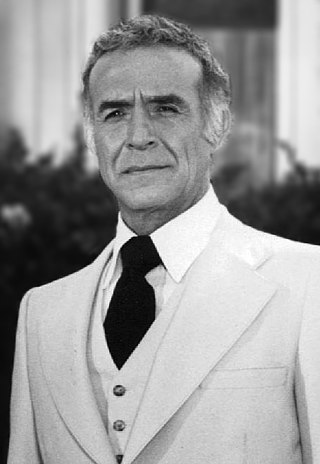
Ricardo Gonzalo Pedro Montalbán y Merino, KSG was a Mexican and American film and television actor. Montalbán's career spanned seven decades, during which he became known for performances in a variety of genres, from crime and drama to musicals and comedy. He portrayed Armando in the Planet of the Apes film series from the early 1970s, starring in both Escape from the Planet of the Apes (1971) and Conquest of the Planet of the Apes (1972). As the villain Khan Noonien Singh, a genetically enhanced human, he starred in both the original Star Trek television series (1967) and the film Star Trek II: The Wrath of Khan (1982). During the 1970s and 1980s, he was a spokesman in automobile advertisements for Chrysler, including those in which he extolled the "rich Corinthian leather" used for the Cordoba's interior.
Judah Folkman, American physician, biologist, and academic (b. 1933) deaths
Moses Judah Folkman was an American medical scientist best known for his research on tumor angiogenesis, the process by which a tumor attracts blood vessels to nourish itself and sustain its existence. He founded the field of angiogenesis research, which has led to the discovery of a number of therapies based on inhibiting or stimulating neovascularization.
Vassilis Photopoulos, Greek painter, director, and set designer (b. 1934) deaths
Vassilis Photopoulos was an influential Greek painter, film director, art director and set designer.
Henri Colpi, French director and screenwriter (b. 1921) deaths
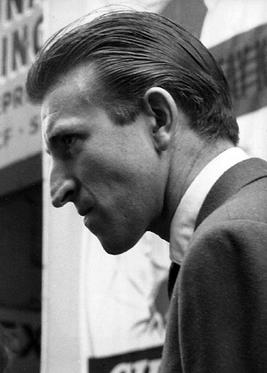
Henri Colpi was a French film editor and film director.
Jim Gary, American sculptor (b. 1939) deaths

Jim Gary was an American sculptor popularly known for his large, colorful creations of dinosaurs made from discarded automobile parts. These sculptures were typically finished with automobile paint although some were left to develop a natural patina during display outdoors.
Shelley Winters, American actress (b. 1920) deaths
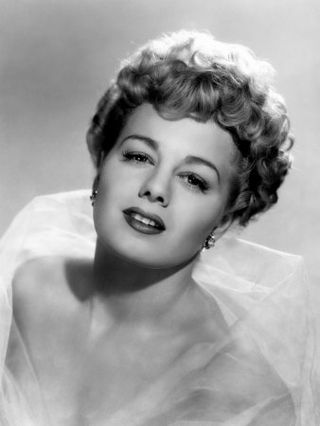
Shelley Winters was an American actress whose career spanned seven decades. She appeared in numerous films. She won Academy Awards for The Diary of Anne Frank (1959) and A Patch of Blue (1965), and received nominations for A Place in the Sun (1951) and The Poseidon Adventure (1972). She also appeared in A Double Life (1947), The Night of the Hunter (1955), Lolita (1962), Alfie (1966), Next Stop, Greenwich Village (1976), and Pete's Dragon (1977). In addition to film, Winters appeared in television, including a tenure on the sitcom Roseanne, and wrote three autobiographical books.
Charlotte MacLeod, Canadian-American author (b. 1922) deaths
Charlotte MacLeod was a Canadian-American mystery fiction writer.
Conroy Maddox, English painter and educator (b. 1912) deaths
Conroy Maddox was an English surrealist painter, collagist, writer and lecturer; and a key figure in the Birmingham Surrealist movement.
Rudolph Moshammer, German fashion designer (b. 1940) deaths

Rudolph Moshammer was a German fashion designer. He built a reputation for the extravagant clothes he designed and wore, and was well known in Germany's celebrity circuit.
Jesús Rafael Soto, Venezuelan sculptor and painter (b. 1923) deaths

Jesús Rafael Soto was a Venezuelan op and kinetic artist, a sculptor and a painter.
Uta Hagen, German-American actress (b. 1919) deaths
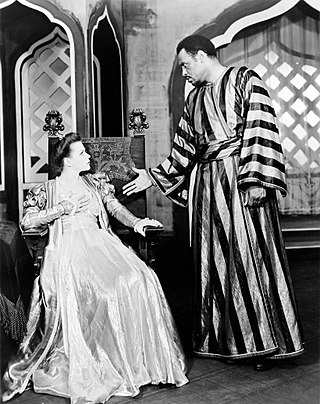
Uta Thyra Hagen was a German-American actress and theatre practitioner. She originated the role of Martha in the 1962 Broadway premiere of Who's Afraid of Virginia Woolf? by Edward Albee, who called her "a profoundly truthful actress." Because Hagen was on the Hollywood blacklist, in part because of her association with Paul Robeson, her film opportunities dwindled and she focused her career on New York theatre.
Ron O'Neal, American actor, director, and screenwriter (b. 1937) deaths

Ron O'Neal was an American actor, director and screenwriter, who rose to fame in his role as Youngblood Priest, a New York cocaine dealer, in the blaxploitation film Super Fly (1972) and its sequel Super Fly T.N.T. (1973). O'Neal was also a director and writer for the sequel, and for the film Up Against the Wall.
Leonard Weisgard, American author and illustrator (b. 1916) deaths
Leonard Joseph Weisgard was an American writer and illustrator of more than 200 children's books. He is known best for his collaborations with writer Margaret Wise Brown.
Declan Rice, English footballer births

Declan Rice is an English professional footballer who plays as a defensive midfielder for Premier League club West Ham United and the England national team.
Maddison Inglis, Australian tennis player births

Maddison Inglis is an Australian tennis player.
Francesco Bagnaia, Italian motorcycle racer births

Francesco "Pecco" Bagnaia is an Italian Grand Prix motorcycle racer competing in MotoGP for the Ducati Lenovo Team. He is the current MotoGP World Champion and a previous Moto2 World Champion. He is the first rider from the VR46 academy to win a world title in the premier class.
Dollard Ménard, Canadian general (b. 1913) deaths

Brigadier Dollard Ménard was a senior officer in the Canadian Army. As a lieutenant colonel, he was wounded five times during the Dieppe Raid in 1942 while leading Les Fusiliers Mont-Royal. His story inspired a famous Canadian World War II poster Ce qu’il faut pour vaincre. He was later made a Companion of the Distinguished Service Order. Since all of the other commanding officers were either killed or captured, he was the only commanding officer who had landed at Dieppe to return to Britain after the raid.
Onno Tunç, Armenian-Turkish composer (b. 1948) deaths
Ohannes Tunçboyacı, better known as Onno Tunç, was a leading Armenian-Turkish musician, working mainly as a composer, arranger and a music producer. Tunç also played bass guitar and occasionally double bass, contributing to the albums of several musicians. He was one of the prominent names of Turkish pop music in the 1980s and 1990s with his arrangements. He was the elder brother of musician Arto Tunçboyacıyan.
Georgios Diamantakos, Greek basketball player births

Georgios Diamantakos is a Greek professional basketball player for Mykonos of the Greek 3rd division. He is a right-handed 7 ft. 1 in. tall center.
Alex Johnston, Australian rugby league player births

Alex Johnston is a professional rugby league footballer who plays as a winger and fullback for the South Sydney Rabbitohs in the NRL. He has played for both Australia and Papua New Guinea at international level.
Alexander Gibson, Scottish conductor (b. 1926) deaths
Sir Alexander Drummond Gibson was a Scottish conductor and opera intendant. He was also well known for his service to the BBC and his achievements during his reign as the longest serving principal conductor of the Royal Scottish National Orchestra in which the orchestra was awarded its Royal Patronage.
Kai, South Korean singer, model, actor and dancer births

Kim Jong-in, better known as Kai (Korean: 카이), is a South Korean singer, model, actor, and dancer. He is a member of the South Korean-Chinese boy group Exo, its sub unit Exo-K, and South Korean supergroup SuperM. He debuted as a soloist in November 2020 with the release of his extended-play, Kai. Apart from his musical career, Kai has also starred in various television dramas such as Choco Bank (2016), Andante (2017), and Spring Has Come (2018). Kai is widely considered to be one of the best dancers of South Korea and K-pop, and is among the most influential Korean fashion icons.
Daniel Bessa, Brazilian footballer births
Daniel Sartori Bessa is an Italian Brazilian footballer who plays as a midfielder for Emirati club Al-Ittihad Kalba. He was called up to the Italy national under-18 football team. Bessa qualified for Italian citizenship through his family who have Venetian origins.
Robbie Brady, Irish footballer births
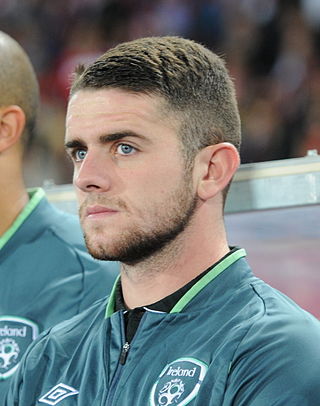
Robert Brady is an Irish professional footballer who plays as a winger for Preston North End and the Republic of Ireland national team. He can also play as a left-back.
Chieh-Yu Hsu, American tennis player births
Hsu Chieh-yu is a Taiwanese tennis player.
Qiang Wang, Chinese tennis player births

Wang Qiang is a Chinese professional tennis player. She has won two singles titles on the WTA Tour, one WTA 125 singles title, and 13 singles titles and one doubles title on the ITF Circuit. Her best result at a Grand Slam tournament came at the 2019 US Open where she reached the quarterfinals. On 9 September 2019, Wang reached her highest singles ranking of world No. 12, becoming the second-highest ranked Chinese tennis player in history after Li Na. Alongside Li Na, Zheng Jie, Peng Shuai, and Zhang Shuai, Wang is one of only five Chinese tennis players to have reached the quarterfinals of a Grand Slam tournament.
Gordon Bryant, Australian educator and politician (b. 1914) deaths

Gordon Munro Bryant was an Australian politician. He was a member of the Australian Labor Party (ALP) and represented the Division of Wills in Victoria from 1955 to 1980. He served as Minister for Aboriginal Affairs (1972–1973) and Minister for the Capital Territory (1973–1975) in the Whitlam Government.
Lelisa Desisa, Ethiopian runner births

Lelisa Desisa Benti is an Ethiopian long-distance runner who specialises in road running competitions. Desisa gained his first international medal at the 2009 African Junior Athletics Championships, where he took the 10,000 metres gold medal.
Grant Gustin, American actor and singer births
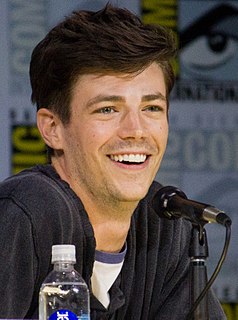
Thomas Grant Gustin is an American actor and singer. He is best known for his roles as Barry Allen / The Flash on The CW series The Flash as part of the Arrowverse, and as Sebastian Smythe on the Fox series Glee.
Áron Szilágyi, Hungarian fencer births

Áron Szilágyi is a Hungarian right-handed sabre fencer.
Frankie Bridge, English singer-songwriter and dancer births

Francesca Bridge is an English singer, formerly a member of S Club Juniors and a member of girl group The Saturdays. She is signed to Fascination and Polydor labels. Bridge began her career when she auditioned for Simon Fuller's reality television competition S Club Search in 2001, broadcast on CBBC. She successfully auditioned and won a place in the pop group S Club Juniors. Bridge and the rest of the group then starred in their own reality TV show S Club Junior: The Story. Together with the band, Bridge successfully released seven singles and two albums. Whilst in the group, she made an appearance in S Club 7's TV show Viva S Club. The group then began featuring in their own children's musical television programme I Dream. Bridge played a main role in the show and went onto release the duet single "Dreaming" along with fellow S Club 8 member Calvin Goldspink.
Kacey Barnfield, English actress births
Kacey Louisa Barnfield, also credited as Kacey Clarke, is an English actress. As a teenager she played Maddie Gilks in the long running British television series Grange Hill, on which she was in six series. As an adult, her roles have included Crystal in the American action film Resident Evil: Afterlife, and Katie Sutherland in British comedy The Inbetweeners. In 2014, Clarke was listed as number 99 in FHM's 100 sexiest women in the world.
Jack P. Shepherd, English actor births
Jack Peter Shepherd is an English actor. He is best known for his role as David Platt in the ITV soap opera Coronation Street. He won the award for Best Young Actor in 2001 at The Inside Soap Awards and Best Bad Boy at The Inside Soap Awards in 2007. He has won two British Soap Awards. Villain Of The Year in 2008 and Best Actor in 2018. He also won the award for Best Soap Actor at The TV Choice Awards in 2020.
Georgy Malenkov, Russian engineer and politician, 5th Premier of the Soviet Union (b. 1902) deaths

Georgy Maximilianovich Malenkov was a Soviet politician who briefly succeeded Joseph Stalin as the leader of the Soviet Union. However, at the insistence of the rest of the Presidium, he relinquished control over the party apparatus in exchange for remaining Premier and first among equals within the Soviet collective leadership. He then became embroiled in a power struggle with Nikita Khrushchev that culminated in his removal from the premiership in 1955 as well as the Presidium in 1957.

The Premier of the Soviet Union was the head of government of the Union of Soviet Socialist Republics (USSR). The office had four different names throughout its existence: Chairman of the Council of People's Commissars (1923–1946), Chairman of the Council of Ministers (1946–1991), Prime Minister and Chairman of the Committee on the Operational Management of the Soviet Economy. Long before 1991, most non-Soviet sources referred to the post as "Premier" or "Prime Minister."
Atsushi Hashimoto, Japanese actor births
Atsushi Hashimoto is a Japanese actor who is affiliated with Amuse, Inc. He played the role of Kai Ozu, the main character of the 2005 Super Sentai TV series Mahou Sentai Magiranger.
Jess Fishlock, Welsh footballer births

Jessica Anne Fishlock is a Welsh professional footballer and coach who plays as a midfielder for OL Reign and the Wales national team. She previously played for Bristol Academy in England's FA Women's Super League, AZ Alkmaar in the Dutch Eredivisie, Glasgow City in the Scottish Women's Premier League, Melbourne Victory and Melbourne City in Australia's W-League, as well as Bundesliga club FFC Frankfurt in Germany.
Turgut Demirağ, Turkish director, producer, and screenwriter (b. 1921) deaths
Turgut Demirağ was a Turkish film producer, director and screenwriter. He directed 16 films between 1947 and 1973. His 1964 film Love and Grudge was entered into the 4th Moscow International Film Festival.
Douglas Sirk, German-Swiss director and screenwriter (b. 1900) deaths

Douglas Sirk was a German film director best known for his work in Hollywood melodramas of the 1950s. Sirk started his career in Germany as a stage and screen director, but he left for Hollywood in 1937 after his Jewish wife was persecuted by the Nazis.
Yohan Cabaye, French footballer births

Yohan Cabaye is a French former professional footballer who played as a midfielder.
Alessio Cossu, Italian footballer births
Alessio Cossu is an Italian footballer who plays as a midfielder or forward. He played in Serie C1 for Ravenna and Manfredonia.
Donna Reed, American actress (b. 1921) deaths

Donna Reed was an American actress. Her career spanned more than 40 years, with performances in more than 40 films. She is well known for her portrayal of Mary Hatch Bailey in Frank Capra's fantasy holiday film It's a Wonderful Life (1946). Reed won the Academy Award for Best Supporting Actress for Fred Zinnemann's war drama film From Here to Eternity (1953).
Joel Rosario, Dominican-American jockey births
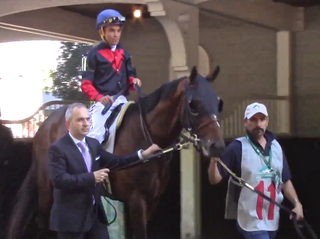
Joel Rosario is a Champion jockey in American Thoroughbred horse racing, originally from the Dominican Republic. In the space of five weeks in 2013 he rode the winners of the Dubai World Cup and the Kentucky Derby. More recently, he rode Knicks Go to wins in the Pegasus World Cup, Whitney Stakes, and Breeders' Cup Classic in 2021.
Shawn Sawyer, Canadian figure skater births

Shawn Sawyer is a Canadian former competitive figure skater. He is the 2011 Canadian national silver medallist and a three-time Canadian national bronze medallist. He represented Canada in the 2006 Winter Olympics in Turin, Italy finishing 12th overall. Unlike most skaters, Sawyer is a clockwise spinner.
Erick Aybar, American baseball player births

Erick Johan Aybar is a Dominican professional baseball shortstop who is a free agent. He has played in Major League Baseball (MLB) for the Los Angeles Angels of Anaheim, Atlanta Braves, Detroit Tigers and San Diego Padres.
Erika Matsuo, Japanese violinist births
Erika Matsuo is a Japanese violinist.
Mike Pelfrey, American baseball player births

Michael Alan Pelfrey is an American college baseball coach and former professional baseball pitcher. He is the pitching coach at Wichita State University. He played college baseball at Wichita State University from 2003 to 2005 for head coach Gene Stephenson. He played in Major League Baseball (MLB) for the New York Mets, Minnesota Twins, Detroit Tigers, and Chicago White Sox.
Ray Kroc, American businessman and philanthropist (b. 1902) deaths

Raymond Albert Kroc was an American businessman. He purchased the fast food company McDonald's in 1961 and was its CEO from 1967 to 1973. Kroc is credited with the global expansion of McDonald's, turning it into the most successful fast food corporation in the world. Due to the company's growth under Kroc, he has also been referred to as the founder of the McDonald's Corporation. After retiring from McDonald's, he owned the San Diego Padres of Major League Baseball (MLB) from 1974 until his death in 1984.
Cesare Bovo, Italian footballer births

Cesare Bovo is an Italian retired professional footballer who played as a centre back.
Jason Krejza, Australian cricketer births
Jason John Krejza is a former Australian cricketer. He played for the Tasmanian Tigers and Leicestershire. Krejza's father was an association football player from Czechoslovakia and his mother was born in Poland. His nickname is "Krazy".
Marc Broussard, American singer-songwriter and guitarist births

Marc Broussard is an American singer-songwriter. His style is best described as "Bayou Soul", a mix of funk, blues, R&B, rock and pop, matched with distinct Southern roots. He has released eight studio albums, one live album, three EPs, and has charted twice on Hot Adult Top 40 Tracks.
Léo Lima, Brazilian footballer births

Leonardo Lima da Silva is a Brazilian professional footballer who plays as an attacking midfielder for Madureira. He has played for teams such as Vasco da Gama, CSKA Sofia, Marítimo, Porto, Flamengo and Al-Nasr (Dubai).
Thomas Longosiwa, Kenyan runner births

Thomas Pkemei Longosiwa is a Kenyan professional athlete who has competed at the two Olympics, winning a bronze medal at the 2012 Summer Olympics. He is also the Kenyan 5000 metres champion from 2007.
Víctor Valdés, Spanish footballer births

Víctor Valdés Arribas is a Spanish football coach and former professional player, who played as a goalkeeper. Valdés was considered fiercely competitive and demanding, demonstrating great mental strength and concentration to be alert during long spells of ball domination, and was superb at one-on-ones.
Abdelmalek Cherrad, Algerian footballer births
Abdelmalek Cherrad is a former professional footballer who played as a forward. Born in France, he made 18 appearances for the Algeria national team, scoring 7 goals.
Hyleas Fountain, American heptathlete births
Hyleas Fountain is an American heptathlete. She was the silver medalist in the event at the 2008 Beijing Olympics.
Concepción Montaner, Spanish long jumper births

Concepción "Concha" Montaner Coll is a Spanish long jumper.
Jadranka Đokić, Croatian actress births

Jadranka Đokić is a Croatian actress. One of the top Croatian actresses, she has won critical approval for her theatre, film and television performances.
John O'Grady, Australian author and poet (b. 1907) deaths
John Patrick O'Grady, was an Australian writer. His works include the comic novel They're a Weird Mob (1957) using the pen name Nino Culotta and the poem The Integrated Adjective, sometimes known as Tumba-bloody-rumba. Born to John Edward O'Grady and Margaret Gleeson.
G. Lloyd Spencer, American lieutenant and politician (b. 1893) deaths

George Lloyd Spencer was an American politician from Arkansas. A member of the Democratic Party, he represented the state in the United States Senate from 1941 to 1943.
Clive Clarke, Irish footballer births
Clive Richard Luke Clarke is an Irish former footballer. He played primarily as a left back, but also as centre back, left midfielder or centre midfielder, notably for Stoke City and twice for the Ireland international team. He is now a football agent, after leaving Sunderland for health reasons.
Cory Gibbs, American soccer player births

Cory Gibbs is an American former soccer player. He played professionally for clubs in Germany, the Netherlands and England. He also played 19 international matches for the U.S. national soccer team, including at the 2003 CONCACAF Gold Cup.
Robert Ardrey, American-South African author, playwright, and screenwriter (b. 1908) deaths

Robert Ardrey was an American playwright, screenwriter and science writer perhaps best known for The Territorial Imperative (1966). After a Broadway and Hollywood career, he returned to his academic training in anthropology and the behavioral sciences in the 1950s.
Karen Elson, English singer-songwriter, guitarist, and model births
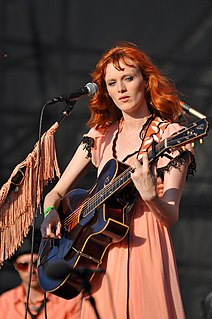
Karen Jill Elson is an English model and singer-songwriter.
Evans Soligo, Italian footballer births
Evans Soligo is a retired Italian footballer who played his entire career for clubs in Italy's Serie B and Lega Pro.
Shawn Crawford, American sprinter births

Shawn Crawford is a retired American sprint athlete. He competed in the 100 meters and 200 meters events. In the 200 meter sprint, Crawford won gold at the 2004 Summer Olympics and silver at the 2008 Summer Olympics. He originally finished 4th in the race but after the 2nd and 3rd-place winners were disqualified, he moved up to a silver. On April 17, 2013, Crawford was suspended for two years for missing out-of-competition drug tests. His coach, Bob Kersee claimed that Crawford retired after the 2012 United States Olympic Trials and USA Track & Field said he filed retirement papers in 2013.
Harold Abrahams, English sprinter, lawyer, and journalist (b. 1899) deaths

Harold Maurice Abrahams was an English track and field athlete. He was Olympic champion in 1924 in the 100 metres sprint, a feat depicted in the 1981 film Chariots of Fire.
Kurt Gödel, Austrian-American mathematician and philosopher (b. 1906) deaths

Kurt Friedrich Gödel was a logician, mathematician, and philosopher. Considered along with Aristotle and Gottlob Frege to be one of the most significant logicians in history, Gödel had an immense effect upon scientific and philosophical thinking in the 20th century, a time when others such as Bertrand Russell, Alfred North Whitehead, and David Hilbert were using logic and set theory to investigate the foundations of mathematics, building on earlier work by the likes of Richard Dedekind, Georg Cantor and Frege.
Robert Heger, German conductor and composer (b. 1886) deaths
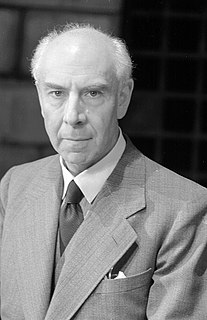
Robert Heger was a German conductor and composer from Strasbourg, Alsace-Lorraine.
Blossom Rock, American actress (b. 1895) deaths
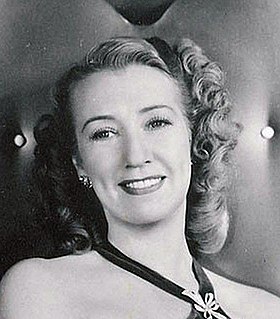
Edith Marie Blossom MacDonald, also known as Blossom Rock, was an American actress of vaudeville, stage, film and television. During her career she was also billed as Marie Blake or Blossom MacDonald. Her younger sister was screen actress and singer Jeanette MacDonald. Rock is probably best known for her role as "Grandmama" on the 1960s macabre/black comedy sitcom The Addams Family.
Narain Karthikeyan, Indian race car driver births

Kumar Ram Narain Karthikeyan is an Indian racing driver. He was the first Indian driver to compete in Formula One.
Terry Ryan, Canadian ice hockey player births
Terrence William James Ryan is a Canadian former professional ice hockey player and actor. He was drafted by the Montreal Canadiens eighth overall in the 1995 NHL Entry Draft and played eight games with the organization between 1996 and 1999.
Anthony Eden, English soldier and politician, Prime Minister of the United Kingdom (b. 1897) deaths
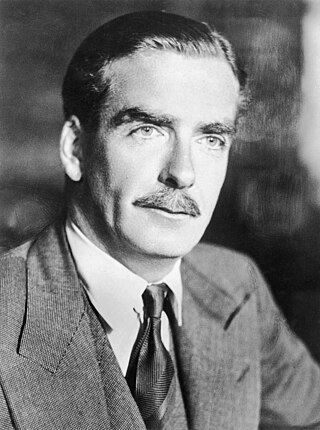
Robert Anthony Eden, 1st Earl of Avon, was a British Conservative politician who served as Prime Minister of the United Kingdom from 1955 until his resignation in 1957.

The prime minister of the United Kingdom is the head of government of the United Kingdom. The prime minister advises the sovereign on the exercise of much of the royal prerogative, chairs the Cabinet and selects its ministers. As modern prime ministers hold office by virtue of their ability to command the confidence of the House of Commons, they sit as members of Parliament.
Peter Finch, English-Australian actor (b. 1916) deaths

Frederick George Peter Ingle Finch was an English-Australian actor of theatre, film and radio.
Anaïs Nin, French-American essayist and memoirist (b. 1903) deaths

Angela Anaïs Juana Antolina Rosa Edelmira Nin y Culmell was a French-born American diarist, essayist, novelist, and writer of short stories and erotica. Born to Cuban parents in France, Nin was the daughter of the composer Joaquín Nin and the classically trained singer Rosa Culmell. Nin spent her early years in Spain and Cuba, about sixteen years in Paris (1924–1940), and the remaining half of her life in the United States, where she became an established author.
Vincenzo Chianese, Italian footballer births
Vincenzo Chianese is an Italian former footballer who spent most of his career in Serie B and Lega Pro Prima Divisione. Chianese had a scoring ratio of 0.4 goals per game in Lega Pro Prima Divisione where he scored more than 90 goals, but just a handful in Serie B.
Abdul Razak Hussein, Malaysian lawyer and politician, 2nd Prime Minister of Malaysia (b. 1922) deaths

Tun Haji Abdul Razak bin Dato' Hussein was a Malaysian politician who served as the 2nd Prime Minister of Malaysia from September 1970 until his death in January 1976. He also served as the first deputy prime minister of Malaysia from August 1957 to September 1970. He is referred to as the Father of Development.
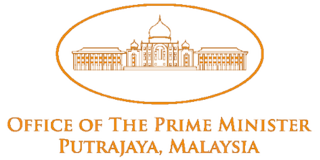
The prime minister of Malaysia is the head of government of Malaysia. The prime minister directs the executive branch of the federal government. The Yang di-Pertuan Agong appoints as the prime minister a member of Parliament (MP) who, in his opinion, is most likely to command the confidence of a majority of MPs; this person is usually the leader of the party winning the most seats in a general election.
Georgina Cates, English actress births
Georgina Elaine Cates is an English film and television actress.
David Flitcroft, English footballer and manager births
David John Flitcroft is an English professional football manager and former player who is the director of football at EFL League One club Port Vale. His older brother is the former Blackburn Rovers and Manchester City player Garry Flitcroft.
Giancarlo Fisichella, Italian race car driver births

Giancarlo Fisichella, also known as Fisico, Giano or Fisi, is an Italian professional racing driver, also captain of the official Nazionale Piloti association football team. He has driven in Formula One for Minardi, Jordan, Benetton, Sauber, Renault, Force India and Ferrari. Since then he has driven for AF Corse in their Ferrari 458 GTE at various sportscar events, becoming twice a Le Mans 24 Hour class winner, and a GT class winner of the Petit Le Mans at Road Atlanta. He was also Ferrari's F1 reserve driver for 2010.
Paul Tisdale, English footballer and manager births

Paul Robert Tisdale is an English professional football manager and former player who was most recently the manager of EFL League Two club Stevenage.
Kyle Brady, American football player and sportscaster births

Kyle James Brady is a former professional American football player. He played tight end for 13 seasons in the National Football League for the New York Jets, Jacksonville Jaguars and New England Patriots. He was the Jets' first round draft choice in the 1995 NFL Draft. He played college football at Penn State.
Dion Forster, South African minister, theologian, and author births

Dion Angus Forster is an ordained Minister of the Methodist Church of Southern Africa. He is a theologian and author. He was formerly the Dean of the Seminary of the Methodist Church of Southern Africa, John Wesley College. Prof. Forster was the International Chairman of the 'EXPOSED – shining a light on corruption' campaign. He teaches Systematic Theology and Ethics, with a focus on Public Theology in the Faculty of Theology at Stellenbosch University. He serves as the Director of the Beyers Naudé Centre for Public Theology at Stellenbosch University.
James Key, English engineer births
James Key is a British engineer who works in Formula One as executive technical director for McLaren.
Horst Assmy, German footballer (b. 1933) deaths

Horst Assmy was a German footballer who played as a forward. Assmy played in East Germany for Einheit Pankow, Motor Oberschöneweide and Vorwärts Berlin, and won 12 caps for the national team, scoring 4 goals. He defected as a republikflucht to West Germany in 1959, appearing for Tennis Borussia Berlin, Schalke 04 and Hessen Kassel.
Frederick IX of Denmark (b. 1899) deaths

Frederick IX was King of Denmark from 1947 to 1972. Born into the House of Glücksburg, Frederick was the elder son of King Christian X and Queen Alexandrine of Denmark. He became crown prince when his father succeeded as king in 1912. As a young man, he was educated at the Royal Danish Naval Academy. In 1935, he was married to Princess Ingrid of Sweden and they had three daughters, Margrethe, Benedikte and Anne-Marie. During Nazi Germany's occupation of Denmark, Frederick acted as regent on behalf of his father from 1942 until 1943. Frederick became king on his father's death in early 1947. During Frederick IX's reign Danish society changed rapidly, the welfare state was expanded and, as a consequence of the booming economy of the 1960s, women entered the labour market. The modernization brought new demands on the monarchy and Frederick's role as a constitutional monarch. Frederick IX died in 1972, and was succeeded by his eldest daughter, Queen Margrethe II.
Lasse Kjus, Norwegian skier births
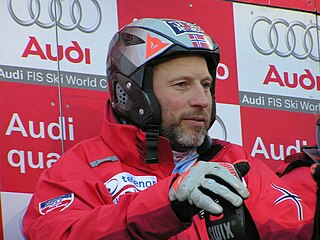
Lasse Kjus is a former World Cup alpine ski racer from Norway. He won the overall World Cup title twice, an Olympic gold medal, and several World Championships. His combined career total of 16 Olympic and World Championship medals ranks second all-time behind fellow Norwegian Kjetil André Aamodt.
Bert Konterman, Dutch footballer and manager births
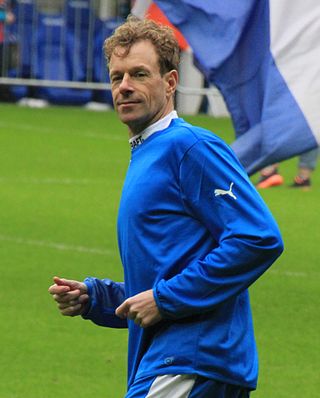
Bert Konterman is a Dutch former professional footballer who played as a defender.
Antonios Nikopolidis, Greek footballer and manager births

Antonis Nikopolidis is a Greek former professional footballer who played as a goalkeeper, and former manager of the Greece under-21 national team.
William Feller, Croatian-American mathematician and academic (b. 1906) deaths
William "Vilim" Feller, born Vilibald Srećko Feller, was a Croatian-American mathematician specializing in probability theory.
Asım Gündüz, Turkish general (b. 1880) deaths
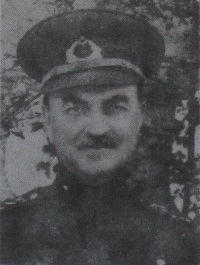
Âsım Gündüz was an officer of the Ottoman Army and a general of the Turkish Army.
Jason Bateman, American actor, director, and producer births

Jason Kent Bateman is an American actor, director and producer known for his roles of Michael Bluth in the Fox/Netflix sitcom Arrested Development and of Marty Byrde in the Netflix crime drama series Ozark (2017–2022). He has received several awards including a Golden Globe Award, a Primetime Emmy Award, a Screen Actors Guild Award and a Satellite Award. He began acting on television in the early 1980s on the NBC drama series Little House on the Prairie.
Martin Bicknell, English cricketer births
Martin Paul Bicknell is a former English cricketer. He played in four Test matches, with the last two, against South Africa in 2003, coming ten years after the first two in the 1993 Ashes series. England had played 114 matches between his appearances, a record. He was considered most unlucky to be constantly overlooked for selection in home Test matches when constantly proving himself a prolific wicket taker in county cricket.
Dave Grohl, American singer-songwriter, guitarist, and drummer births

David Eric Grohl is an American musician. He is the founder of the rock band Foo Fighters, for which he is the singer, guitarist, and primary songwriter. He was the drummer for Nirvana from 1990 to 1994.
LL Cool J, American rapper and actor births

James Todd Smith, known professionally as LL Cool J, is an American rapper, songwriter, record producer, and actor. He is one of the earliest rappers to achieve commercial success, alongside fellow new school hip hop acts Beastie Boys and Run-DMC.
Ruel Fox, English-Montserratian footballer, manager and chairman births
Ruel Adrian Fox is a former professional footballer and the club chairman of Whitton United.
Dorothea Mackellar, Australian poet and author (b. 1885) deaths

Isobel Marion Dorothea Mackellar, was an Australian poet and fiction writer. Her poem My Country is widely known in Australia, especially its second stanza, which begins: "I love a sunburnt country/A land of sweeping plains,/Of ragged mountain ranges,/Of droughts and flooding rains."
Leonardo Ortolani, Italian author and illustrator, created Rat-Man births

Leonardo Ortolani, better known as Leo, is an Italian comics author, creator of the comic book series Rat-Man.

Rat-Man is an Italian comic book about an inept superhero of the same name, created by Leonardo Ortolani in 1989. Although it was initially meant to be a satire of other superheroes, most prominently Batman, it has since evolved into an independent comic sporting a complex, evolving continuity. The comic is well known for its nonsense humor à-la Monty Python, its engaging storytelling and its frequent breaking of the fourth wall. Ortolani often pays both direct and indirect tribute to other comic authors and he frequently makes his characters use pop-culture references, either generic or specific to the native Italian context and background. The comic was published by Panini Comics as new installments under the name of Rat-Man Collection and is currently being published as reprints of older stories in Rat-Man Gigante.
Emily Watson, English actress births

Emily Margaret Watson is an English actress. She began her career on stage and joined the Royal Shakespeare Company in 1992. In 2002, she starred in productions of Twelfth Night and Uncle Vanya at the Donmar Warehouse, and was nominated for the 2003 Olivier Award for Best Actress for the latter. She was nominated for the Academy Award for Best Actress for her debut film role as Bess McNeil in Lars von Trier's Breaking the Waves (1996) and for her role as Jacqueline du Pré in Hilary and Jackie (1998), winning the British Independent Film Award for Best Actress for the latter. For her role as Margaret Humphreys in Oranges and Sunshine (2010), she was also nominated for the AACTA Award for Best Actress in a Leading Role.
Zakk Wylde, American guitarist and singer births

Zachary Phillip Wylde is an American musician. He is best known as the lead guitarist for Ozzy Osbourne and as the founder, lead guitarist, lead singer, songwriter and producer of the heavy metal band Black Label Society. His signature bulls-eye design appears on many of his guitars and is widely recognized. He was also the lead guitarist and vocalist of Pride & Glory, who released one self-titled album in 1994 before disbanding. As a solo artist, he released the albums Book of Shadows and Book of Shadows II. Wylde joined the reunited Pantera in 2022 as a fill-in for original guitarist Dimebag Darrell, who had died in 2004.
Terry Angus, English footballer births
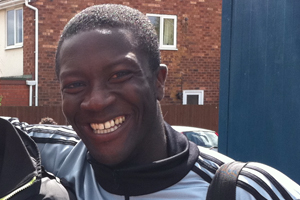
Terence Norman Angus is an English retired professional footballer who played as a central defender.
Marko Hietala, Finnish singer-songwriter, bass player, and producer births

Marko Tapani "Marco" Hietala is a Finnish heavy metal vocalist, bassist and songwriter. Internationally, he is best known as the former bassist, male vocalist and secondary composer to Tuomas Holopainen, of the symphonic metal band Nightwish. He was also the vocalist and bassist as well as composer and lyricist for the heavy metal band Tarot.
Nadia Maftouni, Iranian philosopher births

Nadia Maftouni is an Iranian academic, philosophical author and artist. She is best known as a leading Researcher on Farabian, Avicennian and Suhrawardian philosophy with her modern reading of their works. She is also an established researcher in Jurisprudence and Islamic History. She is an associate professor at University of Tehran, where she is an alumna and a member of the department of Philosophy and Islamic Theology. She is a Senior Research Scholar at Yale Law School and she is on the board of History of Philosophy Quarterly. She is also famous for proposing to Iranian artist Hossein Nuri when he was already in a wheelchair.
Dan Schneider, American TV producer births

Daniel James Schneider is an American television producer, screenwriter, and actor. After appearing in mostly supporting roles in a number of 1980s and 1990s films and TV shows, Schneider devoted himself to behind-the-scenes work in production. He is the co-president of television production company Schneider's Bakery and made What I Like About You for The WB and All That, The Amanda Show, Drake & Josh, Zoey 101, iCarly, Victorious, Sam & Cat, Henry Danger, Game Shakers, and The Adventures of Kid Danger for Nickelodeon. In March 2018, Nickelodeon announced that they had parted ways with Schneider. He was later accused of misconduct by some of his former employees, which he has partly denied.§
Sergei Korolev, Ukrainian-Russian engineer and academic (b. 1906) deaths

Sergei Pavlovich Korolev 12 January 1907 [O.S. 30 December 1906] – 14 January 1966) was a lead Soviet rocket engineer and spacecraft designer during the Space Race between the United States and the Soviet Union in the 1950s and 1960s. He is regarded by many as the father of practical astronautics. He was involved in the development of the R-7 Rocket, Sputnik 1, launching Laika, Sputnik 3, the first human-made object to make contact with another celestial body, Belka and Strelka, the first human being, Yuri Gagarin, into space, Voskhod 1, and the first person, Alexei Leonov, to conduct a spacewalk.
Marc Delissen, Dutch field hockey player, coach, and lawyer births
Marcus Johannes Elisabeth Leopold "Marc" Delissen is a former field hockey player for the Netherlands.
Bob Essensa, Canadian ice hockey player and coach births
Robert Earle Essensa is a Canadian ice hockey coach and former goaltender who played 12 seasons in the National Hockey League (NHL). Since 2003, he has served as the goaltending coach for the Boston Bruins.
Jeanette MacDonald, American actress and singer (b. 1903) deaths

Jeanette Anna MacDonald was an American singer and actress best remembered for her musical films of the 1930s with Maurice Chevalier and Nelson Eddy. During the 1930s and 1940s she starred in 29 feature films, four nominated for Best Picture Oscars, and recorded extensively, earning three gold records. She later appeared in opera, concerts, radio, and television. MacDonald was one of the most influential sopranos of the 20th century, introducing opera to film-going audiences and inspiring a generation of singers.
Beverly Kinch, English long jumper and sprinter births
Beverly "Bev" Kinch is an English former long jumper and sprinter. She held the UK long jump record for 29 years (1983–2012) with 6.90 metres. She is the 1983 Universiade Champion at 100 metres and the 1984 European Indoor Champion at 60 metres. She also represented Great Britain at the 1988 Olympic Games in Seoul.
Shepard Smith, American television journalist births

David Shepard Smith Jr. is an American broadcast journalist. He served as chief general news anchor and host of The News with Shepard Smith on CNBC, a daily evening newscast launched in late September 2020; but his program was cancelled in November 2022. Smith is best known for his 23-year career at Fox News Channel, which he joined at its 1996 inception and where he served as chief anchor and managing editor of the breaking news division. Smith hosted several programs in his tenure at Fox News, including Fox Report, Studio B and Shepard Smith Reporting.
Steven Soderbergh, American director, producer, and screenwriter births

Steven Andrew Soderbergh is an American film director, producer, screenwriter, cinematographer and editor. A pioneer of modern independent cinema, Soderbergh is an acclaimed and prolific filmmaker.
M. Visvesvaraya, Indian engineer, scholar, and politician (b. 1860) deaths

Sir Mokshagundam Visvesvaraya, also referred to by his initials, MV, was an Indian civil engineer, administrator, and statesman, who served as the 19th Diwan of Mysore from 1912 to 1918.
Rob Hall, New Zealand mountaineer (d. 1996) births

Robert Edwin Hall was a New Zealand mountaineer. He was the head guide of a 1996 Mount Everest expedition during which he, a fellow guide, and two clients died. A best-selling account of the expedition was given in Jon Krakauer's Into Thin Air, and the expedition has been dramatised in the 2015 film Everest. At the time of his death, Hall had just completed his fifth ascent to the summit of Everest, more at that time than any other non-Sherpa mountaineer.
Barry Fitzgerald, Irish actor (b. 1888) deaths

William Joseph Shields, known professionally as Barry Fitzgerald, was an Irish stage, film and television actor. In a career spanning almost forty years, he appeared in such notable films as Bringing Up Baby (1938), The Long Voyage Home (1940), How Green Was My Valley (1941), Going My Way (1944), None but the Lonely Heart (1944) and The Quiet Man (1952). For Going My Way (1944), he won the Academy Award for Best Supporting Actor and was simultaneously nominated for the Academy Award for Best Actor. He was the older brother of Irish actor Arthur Shields. In 2020, he was listed at number 11 on The Irish Times list of Ireland's greatest film actors.
Geoff Tate, German-American singer-songwriter and musician births

Geoff Tate is an American singer and songwriter. He rose to fame with the progressive metal band Queensrÿche, who had commercial success with their 1988 album Operation: Mindcrime and 1990 album Empire. Tate is ranked fourteenth on Hit Parader's list of the 100 Greatest Metal Vocalists of All Time. He was voted No. 2 on That Metal Show's top 5 hard rock vocalists of the 1980s. In 2012, he won the Vegas Rocks! Magazine Music Award for "Voice in Progressive Heavy Metal". In 2015, he placed ninth on OC Weekly's list of the 10 Best High-Pitched Metal Singers. After his farewell tour as Queensrÿche, he renamed his band Operation: Mindcrime, after the Queensrÿche album of the same name.
Eivind Berggrav, Norwegian bishop and translator (b. 1884) deaths

Eivind Josef Berggrav was a Norwegian Lutheran bishop. As primate of the Church of Norway, Berggrav became known for his unyielding resistance against the Nazi occupation of Norway during World War II. Berggrav also became an important figure in 20th-century ecumenical movement and served as president of the United Bible Societies.
Anchee Min, Chinese-American painter, photographer, and author births

Anchee Min is a Chinese-American author who lives in San Francisco and Shanghai. Min has published two memoirs, Red Azalea and The Cooked Seed: A Memoir, and six historical novels. Her fiction emphasizes strong female characters, such as Jiang Qing, the wife of chairman Mao Zedong, and Empress Dowager Cixi, the last ruling empress of China.
Humphrey Bogart, American actor (b. 1899) deaths
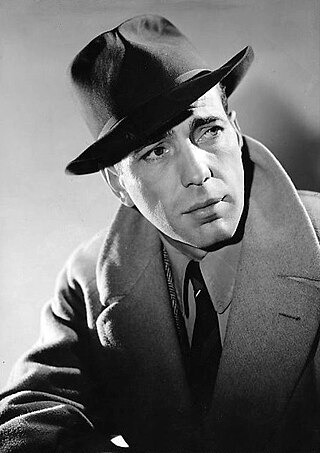
Humphrey DeForest Bogart, nicknamed Bogie, was an American film and stage actor. His performances in Classical Hollywood cinema films made him an American cultural icon. In 1999, the American Film Institute selected Bogart as the greatest male star of classic American cinema.
Étienne Daho, Algerian-French singer-songwriter and producer births

Étienne Daho is a French singer. He has released a number of synth-driven and rock-surf influenced pop hit singles since 1981.
David Clary, English chemist and academic births

Sir David Charles Clary, FRS is a British theoretical chemist. He was president of Magdalen College, Oxford, from 2005 to 2020. He was the first chief scientific adviser to the Foreign and Commonwealth Office from 2009 to 2013. He is a Professor of Chemistry at the University of Oxford.
Denzil Douglas, Caribbean educator and politician, 2nd Prime Minister of Saint Kitts and Nevis births
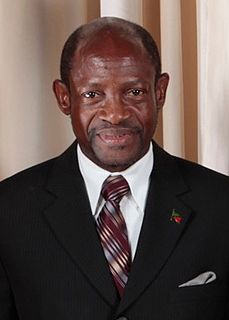
Denzil Llewellyn Douglas is a Saint Kittitian and Nevisian politician and the longest-serving prime minister of Saint Kitts and Nevis, in office from 1995 to 2015. Subsequently he has been Leader of the Opposition. He was the leader of the Saint Kitts and Nevis Labour Party (SKNLP) from 1989 to 2021.

The prime minister of Saint Kitts and Nevis is the head of government of the Federation of Saint Christopher and Nevis. The current Prime Minister is Terrance Drew since 6th August 2022.
Hans Westerhoff, Dutch biologist and academic births

Hans Victor Westerhoff is a Dutch biologist and biochemist who is professor of synthetic systems biology at the University of Amsterdam and AstraZeneca professor of systems biology at the University of Manchester. Currently he is a Chair of AstraZeneca and a director of the Manchester Centre for Integrative Systems Biology.
Sydney Biddle Barrows, American businesswoman and author births
Sydney Biddle Barrows is an American businesswoman and socialite who became known as an escort agency owner under the name Sheila Devin; she later became known as "The Mayflower Madam". She has since become a management consultant and writer.
Maureen Dowd, American journalist and author births

Maureen Brigid Dowd is an American columnist for The New York Times and an author.
Konstantinos Iosifidis, Greek footballer and manager births
Konstantinos Iosifidis is a retired Greek footballer.
Călin Popescu-Tăriceanu, Romanian engineer and politician, 60th Prime Minister of Romania births

Călin Constantin Anton Popescu-Tăriceanu is a Romanian politician who was Prime Minister of Romania from 29 December 2004 to 22 December 2008. He was also president of the National Liberal Party (PNL) and the vice-president of the European Liberal Democrat and Reform Party (ELDR), two positions he assumed in 2004.

The prime minister of Romania, officially the prime minister of the Government of Romania, is the head of the Government of Romania. Initially, the office was styled President of the Council of Ministers, when the term "Government" included more than the Cabinet, and the Cabinet was called the Council of Ministers. The title was officially changed to Prime Minister by the 1965 Constitution of Romania during the communist regime.
Artur Kapp, Estonian composer and conductor (b. 1878) deaths
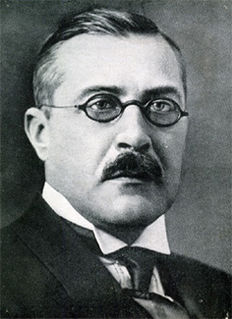
Artur Kapp was an Estonian composer.
O. Panneerselvam, Indian politician, 7th Chief Minister of Tamil Nadu births
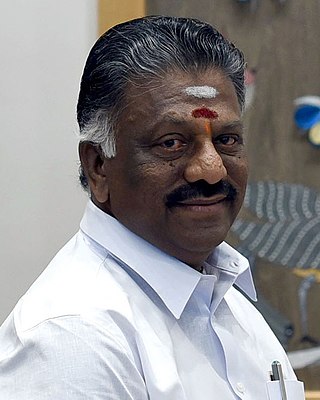
Ottakarathevar Panneerselvam, popularly known as OPS is an Indian politician who served as the 6th Chief Minister of Tamil Nadu and the 2nd Deputy Chief Minister of Tamil Nadu from 21 August 2017 to 6 May 2021, As a finance minister, He has presented the Tamil Nadu State Budget for 11 times. He was officially expelled from the AIADMK party by the General and Executive committee on 11 July 2022, which was upheld by the Madras High Court on 2 September 2022.

The chief minister of Tamil Nadu is the chief executive of the Indian state of Tamil Nadu. In accordance with the Constitution of India, the governor is a state's de jure head, but de facto executive authority rests with the chief minister. Following elections to the Tamil Nadu Legislative Assembly, the state's governor usually invites the party with a majority of seats to form the government. The governor appoints the chief minister, whose council of ministers are collectively responsible to the assembly. Given that he has the confidence of the assembly, the chief minister's term is for five years and is subject to no term limits.
Gregorios Xenopoulos, Greek author, journalist, and playwright (b. 1867) deaths

Gregorios Xenopoulos was a novelist, journalist and playwright from Zakynthos. He was lead editor in the magazine The Education of Children during the period from 1896 to 1948, during which time he was also the magazine's main author. His was the trademark signature "Σας ασπάζομαι, Φαίδων" ", which he used in letters ostensibly addressed to the magazine. He was also the founder and editor of the Nea Estia magazine, which is still published. He became a member of the Academy of Athens in 1931, and founded the Society of Greek Writers together with Kostis Palamas, Angelos Sikelianos and Nikos Kazantzakis.
Rambhadracharya, Indian religious leader, scholar, and author births

Jagadguru Ramanandacharya Swami Rambhadracharya is an Indian Hindu spiritual leader, educator, Sanskrit scholar, polyglot, poet, author, textual commentator, philosopher, composer, singer, playwright and Katha artist based in Chitrakoot, India. He is one of four incumbent Jagadguru Ramanandacharya, and has held this title since 1988.
Arthur Byron Cover, American author and screenwriter births
Arthur Byron Cover is an American science fiction author.
Lawrence Kasdan, American director, producer, and screenwriter births
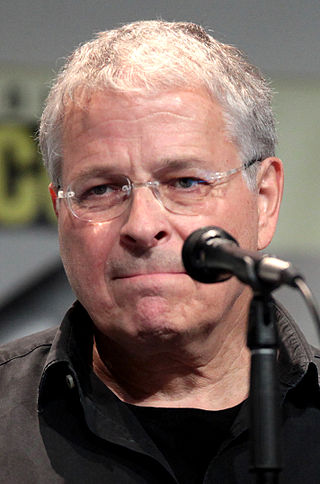
Lawrence Edward Kasdan is an American filmmaker. He is the co-writer of the Star Wars films The Empire Strikes Back (1980), Return of the Jedi (1983), The Force Awakens (2015), and Solo: A Star Wars Story (2018). He also co-wrote Raiders of the Lost Ark (1981) and The Bodyguard (1992), and is the writer-director of Body Heat (1981), The Big Chill (1983), Silverado (1985), The Accidental Tourist (1988), and Dreamcatcher (2003). He is known for updating old Hollywood genres—film noir, science-fiction, westerns—in a classical dramatic style with quick-witted dialogue, but dealing with contemporary social themes. As a director, he has made various personal films that examine characters and generations.
Mary Robison, American short story writer and novelist births
Mary Cennamo Robison is an American short story writer and novelist. She has published four collections of stories, and four novels, including her 2001 novel Why Did I Ever, winner of the 2001 Los Angeles Times Book Prize for fiction. Her most recent novel, released in 2009, is One D.O.A., One on the Way. She has been categorized as a founding "minimalist" writer along with authors such as Amy Hempel, Frederick Barthelme, and Raymond Carver. In 2009, she won the Rea Award for the Short Story.
İlyas Salman, Turkish actor, director, and screenwriter births

İlyas Salman is a Turkish actor, film director, author, screenwriter and musician.
Lamar Williams, American bass player (d. 1983) births
Lamar Williams was an American musician best known for serving as the bassist of The Allman Brothers Band (1972–1976) and Sea Level (1976–1980).
Harry Stack Sullivan, American psychiatrist and psychoanalyst (b. 1892) deaths
Herbert "Harry" Stack Sullivan was an American Neo-Freudian psychiatrist and psychoanalyst who held that "personality can never be isolated from the complex interpersonal relationships in which [a] person lives" and that "[t]he field of psychiatry is the field of interpersonal relations under any and all circumstances in which [such] relations exist". Having studied therapists Sigmund Freud, Adolf Meyer, and William Alanson White, he devoted years of clinical and research work to helping people with psychotic illness.
T Bone Burnett, American singer-songwriter, guitarist, and producer births

Joseph Henry "T Bone" Burnett III is an American record producer, guitarist and songwriter. He rose to fame as a guitarist in Bob Dylan's band during the 1970s. He has received multiple Grammy awards for his work in film music, including for O Brother, Where Art Thou? (2000), Cold Mountain (2004), Walk the Line (2005) and Crazy Heart (2010); and won another Grammy for producing the studio album Raising Sand (2007), in which he united the contemporary bluegrass of Alison Krauss with the blues rock of Robert Plant.
Muhriz of Negeri Sembilan, Yamtuan Besar of Negeri Sembilan births

Tuanku Muhriz ibni Almarhum Tuanku Munawir is the eleventh Yang di-Pertuan Besar of Negeri Sembilan, Malaysia.
Carl Weathers, American football player and actor births

Carl Weathers is an American actor and former professional football player. He is known for his roles as boxer Apollo Creed in the first four Rocky films (1976–85), George Dillon in Predator (1987), Action Jackson in Action Jackson (1988), and Chubbs Peterson in Happy Gilmore (1996) and in Little Nicky (2000), and Combat Carl in the Toy Story franchise. He also portrayed Det. Beaudreaux in the television series Street Justice (1991–93) and a fictionalized version of himself in the comedy series Arrested Development (2003–19), and voiced Omnitraxus Prime in Star vs. the Forces of Evil (2017–19). He has a recurring role as Greef Karga in the Star Wars series The Mandalorian (2019–).
Taylor Branch, American historian and author births
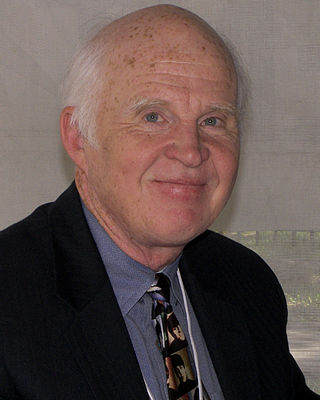
Taylor Branch is an American author and historian who wrote a Pulitzer Prize winning trilogy chronicling the life of Martin Luther King Jr. and much of the history of the American civil rights movement. The final volume of the 2,912-page trilogy, collectively called America in the King Years, was released in January 2006, and an abridgment, The King Years: Historic Moments in the Civil Rights Movement, was published in 2013.
Bev Perdue, American educator and politician, 73rd Governor of North Carolina births
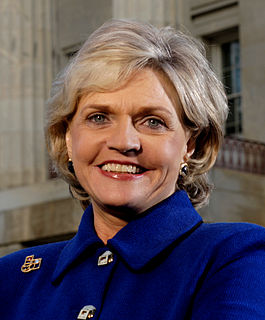
Beverly Eaves Perdue is an American businesswoman, politician, and member of the Democratic Party who served as the 73rd governor of North Carolina from 2009 to 2013. She was the first female governor of North Carolina.

The Governor of North Carolina is the head of government of the U.S. state of North Carolina. The governor directs the executive branch of the government and is the commander in chief of the military forces of the state. The current governor, Democrat Roy Cooper took office on January 1, 2017, and had a public swearing-in ceremony on January 7, 2017.
Bill Werbeniuk, Canadian snooker player (d. 2003) births

William Alexander Werbeniuk was a Canadian professional snooker and pool player. Recognisable for his girth, he was nicknamed "Big Bill". Werbeniuk was a four-time World Championship quarter-finalist and also a UK Championship semi-finalist, reaching a career high world ranking of #8 for the 1983–84 season.
Kathleen Chalfant, American actress births
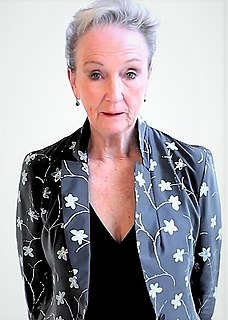
Kathleen Ann Chalfant is an American actress. She has appeared in many stage plays, both on Broadway and Off-Broadway, as well as making guest appearances on television series, including the Law & Order franchise.
Maina Gielgud, English ballerina and director births
Maina Gielgud is a British former ballet dancer and a veteran ballet administrator. She was artistic director of The Australian Ballet from 1983 to 1996. She had a twenty-year career as a dancer in Europe and the United Kingdom. Gielgud directed the Royal Danish Ballet between 1997 and 1999. Until 2005, she held the artistic associate position at the Houston Ballet. She is a daughter of Lewis Gielgud and actress Zita Gordon and niece of actor John Gielgud.
Marjoe Gortner, American actor and evangelist births
Hugh Marjoe Ross Gortner is a former evangelist preacher and actor. He first gained public attention during the late 1940s when his parents arranged for him to be ordained as a preacher at age four, due to his extraordinary speaking ability. He was the youngest known in that position. As a young man, he preached on the revival circuit and brought celebrity to the revival movement.
Graham Marsh, Australian golfer and architect births
Graham Vivian Marsh MBE is a retired professional golfer who was one of the leading Australian players of his generation. During his career he won more than 70 tournaments around the world, including 10 on the European Tour and 20 on the Japan Golf Tour, plus two senior major championships.
Nina Totenberg, American journalist births

Nina Totenberg is an American legal affairs correspondent for National Public Radio (NPR) focusing primarily on the activities and politics of the Supreme Court of the United States. Her reports air regularly on NPR's news magazines All Things Considered, Morning Edition, and Weekend Edition. From 1992 to 2013, she was also a panelist on the syndicated TV political commentary show Inside Washington.
Mehmet Emin Yurdakul, Turkish author and politician (b. 1869) deaths
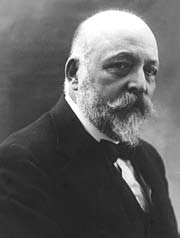
Mehmet Emin Yurdakul was a Turkish nationalist writer, poet and politician. Being an ideologue of Pan-Turkism, his writings and poems had a major impact on defining the term vatan (Fatherland).
Angelo Bagnasco, Italian cardinal births

Angelo Bagnasco is an Italian Cardinal of the Catholic Church. He was Archbishop of Genoa from 2006 to 2020. He was President of the Italian Episcopal Conference (CEI) from 2007 to 2017 and was elevated to the rank of cardinal in 2007. Since 2016 he has been President of the Council of the Bishops' Conferences of Europe.
Mariss Jansons, Latvian conductor (d. 2019) births

Mariss Ivars Georgs Jansons was a Latvian conductor best known for his interpretations of Mahler, Strauss and Russian composers such as Tchaikovsky, Rachmaninoff and Shostakovich. During his lifetime he was often cited as among the world's leading conductors; in a 2015 Bachtrack poll, he was ranked by music critics as the world's third best living conductor. Jansons was long associated with the Bavarian Radio Symphony Orchestra and Royal Concertgebouw Orchestra as music director.
Shannon Lucid, American biochemist and astronaut births
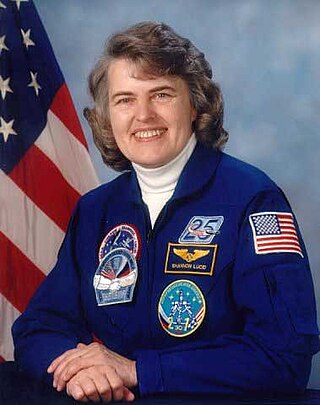
Shannon Wells Lucid is an American biochemist and retired NASA astronaut. At one time, she held the record for the longest duration stay in space by an American and by a woman. She has flown in space five times including a prolonged mission aboard the Russian Mir space station in 1996, and is the only American woman to have served aboard Mir. She was awarded the Congressional Space Medal of Honor in December 1996, making her the tenth person and first woman to be accorded that honor.
Holland Taylor, American actress and playwright births

Holland Virginia Taylor is an American actress. She won the 1999 Primetime Emmy Award for Outstanding Supporting Actress in a Drama Series for her role as Judge Roberta Kittleson on ABC's The Practice (1998–2003). For her portrayal of Evelyn Harper on the CBS comedy Two and a Half Men (2003–15), she received a total of four Primetime Emmy Award nominations.
Laura E. Richards, American author and poet (b. 1850) deaths

Laura Elizabeth Howe Richards was an American writer. She wrote more than 90 books including biographies, poetry, and several for children. One well-known children's poem is her literary nonsense verse "Eletelephony".
Dave Campbell, American baseball player and sportscaster births

David Wilson Campbell is an American former baseball player and sportscaster. He played parts of eight seasons in Major League Baseball (MLB), primarily as an infielder for the San Diego Padres. He was nicknamed "Soup", a reference to the brand name Campbell's Soup.
Gerben Karstens, Dutch cyclist (d. 2022) births
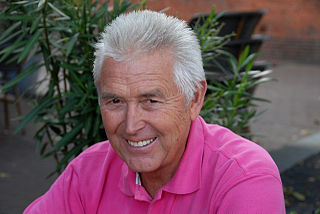
Gerben Karstens was a Dutch professional racing cyclist, who won the gold medal in the 100 km team trial at the 1964 Summer Olympics, alongside Bart Zoet, Evert Dolman, and Jan Pieterse. At the same Olympics he finished 27th in the individual road race. Karstens ranks 6th in all-time stage wins in Vuelta a España history.
Porfirio Barba-Jacob, Colombian poet and author (b. 1883) deaths

Miguel Ángel Osorio Benítez, better known by his pseudonym, Porfirio Barba-Jacob, was a Colombian poet and writer.
Nicholas Brooks, English historian (d. 2014) births
Nicholas Peter Brooks, FBA was an English medieval historian.
Faye Dunaway, American actress and producer births
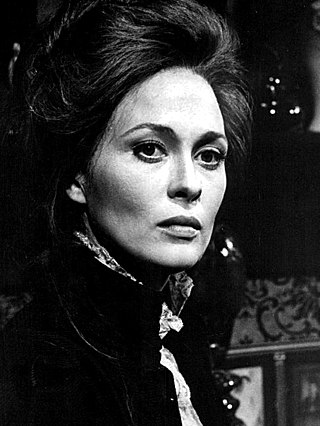
Dorothy Faye Dunaway is an American actress. She is the recipient of many accolades, including an Academy Award, a Primetime Emmy Award, three Golden Globe Awards, and a BAFTA Award. In 2011, the government of France made her an Officer of the Order of Arts and Letters.
Gibby Gilbert, American golfer births
C.L. "Gibby" Gilbert II is an American professional golfer who has won tournaments on both the PGA Tour and Champions Tour.
Milan Kučan, Slovenian politician, 1st President of Slovenia births

Milan Kučan is a Slovene politician who served as the first President of Slovenia from 23 December 1991 until 22 December 2002. Before being president of Slovenia, he was the 13th President of the Presidency of SR Slovenia from 10 May 1990 to 23 December 1991.
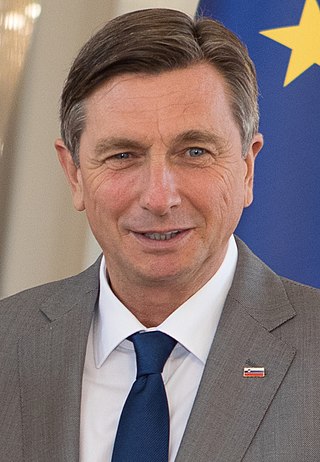
The president of Slovenia, officially the president of the Republic of Slovenia, is the head of state of the Republic of Slovenia. The position was established on 23 December 1991 when the National Assembly passed a new constitution as a result of independence from the Socialist Federal Republic of Yugoslavia.
Julian Bond, American academic and politician (d. 2015) births

Horace Julian Bond was an American social activist, leader of the civil rights movement, politician, professor, and writer. While he was a student at Morehouse College in Atlanta, Georgia, during the early 1960s, he helped establish the Student Nonviolent Coordinating Committee (SNCC). In 1971, he co-founded the Southern Poverty Law Center in Montgomery, Alabama, and served as its first president for nearly a decade.
Ron Kostelnik, American football player (d. 1993) births
Ronald Michael Kostelnik was an American football player, a defensive tackle in the National Football League for eight seasons with the Green Bay Packers and one with the Baltimore Colts.
Siegmund Nimsgern, German opera singer births
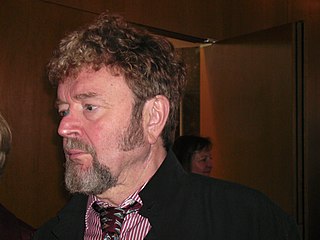
Siegmund Nimsgern is a German bass-baritone, born in Sankt Wendel, Saarland, Germany.
Trevor Nunn, English director and composer births
Sir Trevor Robert Nunn is a British theatre director. He has been the Artistic Director for the Royal Shakespeare Company, the Royal National Theatre, and, currently, the Theatre Royal, Haymarket. He has directed dramas for the stage, like Macbeth, as well as opera and musicals, such as Cats (1981) and Les Misérables (1985).
Vasilka Stoeva, Bulgarian discus thrower births
Vasilka Rafailova Stoeva is a Bulgarian athlete who competed mainly in the women's discus throw event during her career.
Kurt Moylan, Guamanian businessman and politician, 1st Lieutenant Governor of Guam births
Kurt Scott Kaleo Moylan is a Guamanian politician who served as the 1st Lieutenant Governor of Guam from January 4, 1971 to January 6, 1975 and the 7th and last Secretary of Guam from July 20, 1969 to January 4, 1971 in the administration of Governor of Guam Carlos Camacho.

The Guamanian self-governing government consists of a locally elected governor, lieutenant governor and a fifteen-member Legislature. The first popular election for governor and lieutenant governor took place in 1970. The current lieutenant governor is Josh Tenorio, who has been in office since January 7, 2019.
Morihiro Hosokawa, Japanese journalist and politician, 79th Prime Minister of Japan births
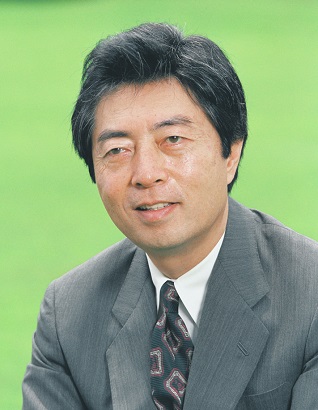
Morihiro Hosokawa is a Japanese politician and noble who was Prime Minister of Japan from 1993 to 1994, leading a coalition government which was the first non-Liberal Democratic Party (LDP) government of Japan since 1955. After a funding scandal in early 1994, he was forced to resign. He later ran unsuccessfully as a candidate for Governor of Tokyo in the February 2014 gubernatorial election as an independent supported by the Democratic Party of Japan. He has been, since 2005, the head of the Kumamoto-Hosokawa clan, one of the noble families of Japan.

The prime minister of Japan is the head of government of Japan. The prime minister chairs the Cabinet of Japan and has the ability to select and dismiss its Ministers of State. The prime minister also serves as the civilian commander-in-chief of the Japan Self Defence Forces and as a sitting member of the House of Representatives. The individual is appointed by the emperor of Japan after being nominated by the National Diet and must retain the nomination of the lower house and answer to parliament to remain in office.
Jack Jones, American singer and actor births

John Allan Jones is an American singer and actor.
Allen Toussaint, American singer-songwriter, pianist, and producer (d. 2015) births

Allen Richard Toussaint was an American musician, songwriter, arranger and record producer. He was an influential figure in New Orleans rhythm and blues from the 1950s to the end of the century, described as "one of popular music's great backroom figures". Many musicians recorded Toussaint's compositions. He was a producer for hundreds of recordings, among the best known of which are "Right Place, Wrong Time", by his longtime friend Dr. John, and "Lady Marmalade" by Labelle.
J. Bernlef, Dutch author and poet (d. 2012) births
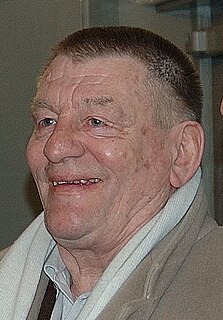
Hendrik Jan Marsman, better known by his pen name, J. Bernlef, was a Dutch writer, poet, novelist and translator, much of whose work centres on mental perception of reality and its expression. He won numerous literary awards, including the Constantijn Huygens Prize in 1984 and the P. C. Hooft Award in 1994, both of which were for his work as a whole. His book Hersenschimmen features on the list of NRC's Best Dutch novels.
Ken Higgs, English cricketer and coach (d. 2016) births
Kenneth Higgs was an English fast-medium bowler, who was most successful as the opening partner to Brian Statham with Lancashire in the 1960s. He later played with success for Leicestershire.
Leo Kadanoff, American physicist and academic (d. 2015) births

Leo Philip Kadanoff was an American physicist. He was a professor of physics at the University of Chicago and a former President of the American Physical Society (APS). He contributed to the fields of statistical physics, chaos theory, and theoretical condensed matter physics.
Rao Gopal Rao, Indian actor, producer, and politician (d. 1994) births
Raavu Gopala Rao was an Indian actor and producer known for his works in Telugu cinema and Telugu theatre. In a film career spanning more than twenty five years, Rao starred in over four hundred feature films in a variety of characters. Rao was known for his gruesome portrayals of antagonist roles with a touch of humour. Rao was presented with Kala Prapoorna in 1990 by Andhra University and was honored with "Natavirat" and "Chittoor Nagayya Award" in 1987.
Sonny Siebert, American baseball player births

Wilfred Charles "Sonny" Siebert is a former Major League Baseball right-handed pitcher from 1964 to 1975. He finished with a record of 140-114 and a 3.21 ERA. He threw a no-hitter on June 10, 1966, against the Washington Senators. He was drafted simultaneously by the Cleveland Indians and the St. Louis Hawks of the NBA.
Billie Jo Spears, American country singer (d. 2011) births
Billie Jo Spears was an American country music singer. She reached the top 10 of the country music chart five times between 1969 and 1977, her biggest being "Blanket on the Ground", a 1975 number-one hit. She also had a large following in the United Kingdom with two of her singles reaching the pop top ten.
Jaishankar Prasad, Indian poet, author, and playwright (b. 1889) deaths
Jaishankar Prasad was a prominent figure in modern Hindi literature as well as Hindi theatre. Prasad was his pen name. He was also known as Chhayavadi poet.
Clarence Carter, American blues and soul singer-songwriter, musician, and record producer births

Clarence George Carter is an American singer, songwriter, musician and record producer. His most successful songs include "Slip Away", "Back Door Santa", "Patches" (1970) and "Strokin" (1986).
Richard Briers, English actor (d. 2013) births

Richard David Briers was an English actor whose five-decade career encompassed film, radio, stage and television.
Pierre Darmon, French tennis player births
Pierre Darmon is a French former tennis player. He was ranked No.8 in the world in 1963, and also reached the top ten in 1958 and 1964.
Alberto Rodriguez Larreta, Argentinian race car driver (d. 1977) births

Alberto Rodríguez Larreta was a racing driver from Buenos Aires, Argentina. He participated in one World Championship Formula One Grand Prix, the 1960 Argentine Grand Prix on 7 February 1960. Driving a Lotus 16 for Team Lotus, he qualified 15th and finished in ninth place. Larreta was reportedly offered a drive by Colin Chapman, but turned it down and continued competing in a wide variety of other motorsports until 1970. He died from a heart attack in 1977.
Ioan Cantacuzino, Romanian physician and bacteriologist (b. 1863) deaths

Ioan I. Cantacuzino was a renowned Romanian physician and bacteriologist, a professor at the School of Medicine and Pharmacy of the University of Bucharest, and a titular member of the Romanian Academy. He established the fields of microbiology and experimental medicine in Romania, and founded the Ioan Cantacuzino Institute.
Stan Brakhage, American director and producer (d. 2003) births

James Stanley Brakhage was an American filmmaker. He is considered to be one of the most important figures in 20th-century experimental film.
Don Garlits, American race car driver and engineer births

Donald Glenn Garlits is an American race car driver and automotive engineer. Considered the father of drag racing, he is known as "Big Daddy" to drag racing fans around the world. A pioneer in the field of drag racing, he perfected the rear-engine Top Fuel dragster, an innovation motivated by the loss of part of his foot in a dragster accident. This design was notably safer since it put most of the fuel processing and rotating parts of the dragster behind the driver. The driver was placed in front of nearly all the mechanical components, thus protecting him and allowing him to activate a variety of safety equipment in the event of catastrophic mechanical failure or a fire. Garlits was an early promoter of the full-body, fire-resistant Nomex driving suit, complete with socks, gloves, and balaclava.
Frank Costigan, Australian lawyer and politician (d. 2009) births

Francis Xavier Costigan,, was an Australian lawyer, Royal Commissioner and social justice activist. Costigan is renowned for presiding over the Costigan Commission into organised crime.
Martin Holdgate, English biologist and academic births
Sir Martin Wyatt Holdgate is an English biologist and environmental scientist.
Johnny Grande, American pianist and accordion player (d. 2006) births

John Andrew Grande was a member of Bill Haley's backing band, The Comets.
Kenny Wheeler, Canadian-English trumpet player and composer (d. 2014) births

Kenneth Vincent John Wheeler, OC was a Canadian composer and trumpet and flugelhorn player, based in the U.K. from the 1950s onwards.
Lars Forssell, Swedish author, poet, and songwriter (d. 2007) births
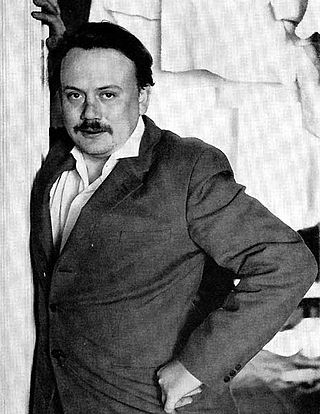
Lars Hans Carl Abraham Forssell was a Swedish writer and member of the Swedish Academy. Forssell was a versatile writer who worked within many genres, including poetry, drama and songwriting. He was married from 1951 until his death to Kerstin Hane, and was the father of Jonas and Malte Forssell.
Hans Kornberg, German-English biologist and academic (d. 2019) births
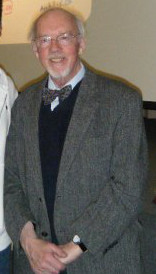
Sir Hans Leo Kornberg, FRS was a British-American biochemist. He was Sir William Dunn Professor of Biochemistry in the University of Cambridge from 1975 to 1995, and Master of Christ's College, Cambridge from 1982 to 1995.
Garry Winogrand, American photographer and author (d. 1984) births

Garry Winogrand was an American street photographer, known for his portrayal of U.S. life and its social issues, in the mid-20th century. Photography curator, historian, and critic John Szarkowski called Winogrand the central photographer of his generation.
Zuzana Růžičková, Czech harpsichord player (d. 2017) births
Zuzana Růžičková was a Czech harpsichordist. An interpreter of classical and baroque music, Růžičková was the first harpsichordist to record Johann Sebastian Bach's complete works for keyboard, in recordings made in the 1960s and 1970s for Erato Records.
Frank Aletter, American actor (d. 2009) births

Frank George Aletter was an American theatre, film, and television actor.
Warren Mitchell, English actor and screenwriter (d. 2015) births

Warren Mitchell was a British actor. He was a BAFTA TV Award winner and twice a Laurence Olivier Award winner.
Tom Tryon, American actor and author (d. 1991) births
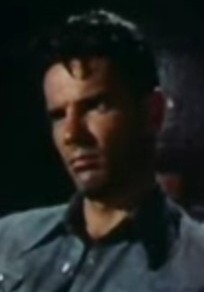
Thomas Lester Tryon was an American actor and novelist. He is best known for playing the title role in the film The Cardinal (1963), featured roles in the war films The Longest Day (1962) and In Harm's Way (1965) with John Wayne, and especially the Walt Disney television character Texas John Slaughter (1958–1961).
August Sedláček, Czech historian and author (b. 1843) deaths

August Sedláček was a distinguished Czech historian and archivist.
Jean-Claude Beton, Algerian-French engineer and businessman, founded Orangina (d. 2013) births
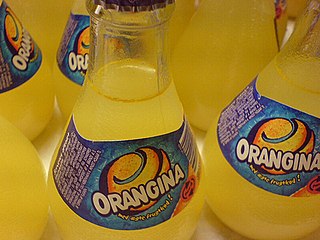
Jean-Claude Beton was an Algerian-born French businessman, agricultural engineer and entrepreneur. Beton was the founder of the French soft drink maker, Orangina. He is credited with transforming Orangina from a little known citrus soda first manufactured by his father, Léon Beton, into a major global brand. Beton launched Orangina's iconic, signature 8-ounce bottle in 1951, which became a symbol of the brand. The bottle is shaped like an orange, with a glass texture designed to mimic the fruit. In 2009, Beton called Orangina the "champagne of soft drinks," saying that "It doesn't contain added colorants. It was and still is slightly sparkling. It had a little bulby bottle."

Orangina is a lightly carbonated beverage made from carbonated water, 12% citrus juice, as well as 2% orange pulp. Orangina is sweetened with sugar or high fructose corn syrup and natural flavors are added.
Moscelyne Larkin, American ballerina (d. 2012) births

Edna Moscelyne Larkin Jasinski was an American ballerina and one of the "Five Moons", Native American ballerinas from Oklahoma who gained international fame in the 20th century. After dancing with the Original Ballet Russe and the Ballet Russe de Monte Carlo, she and her husband settled in Tulsa, Oklahoma, where in 1956 they founded the Tulsa Ballet and its associated school. It became a major regional company in the American Southwest and made its New York City debut in 1983. She is portrayed in the mural Flight of Spirit displayed in the Rotunda of the Oklahoma State Capitol building.
Yukio Mishima, Japanese author, poet, and playwright (d. 1970) births
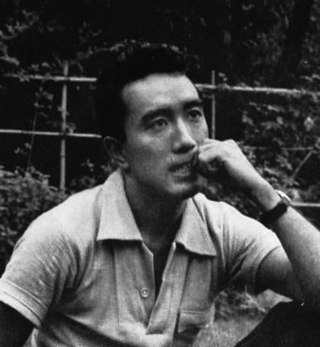
Yukio Mishima , born Kimitake Hiraoka , was a Japanese author, poet, playwright, actor, model, Shintoist, nationalist, and founder of the Tatenokai , an unarmed civilian militia. Mishima is considered one of the most important Japanese authors of the 20th century. He was considered for the Nobel Prize in Literature in 1968, but the award went to his countryman and benefactor Yasunari Kawabata. His works include the novels Confessions of a Mask and The Temple of the Golden Pavilion , and the autobiographical essay Sun and Steel . Mishima's work is characterized by "its luxurious vocabulary and decadent metaphors, its fusion of traditional Japanese and modern Western literary styles, and its obsessive assertions of the unity of beauty, eroticism and death", according to author Andrew Rankin.
Carole Cook, American actress and singer births

Mildred Frances Cook, professionally known as Carole Cook is an American actress. known for appearances on The Lucy Show and Here's Lucy
Gerald Arpino, American dancer and choreographer (d. 2008) births

Gerald Arpino was an American dancer and choreographer. He was co-founder of the Joffrey Ballet and succeeded Robert Joffrey as its artistic director in 1988.
Fred Beckey, American mountaineer and author (d. 2017) births

Friedrich Wolfgang Beckey, known as Fred Beckey, was an American rock climber, mountaineer and book author, who in seven decades of climbing achieved hundreds of first ascents of the tallest peaks and best routes in remote corners of Alaska, the Canadian Rockies and the Pacific Northwest. Among the Fifty Classic Climbs of North America, seven were established by Beckey, often climbing with some of the best known climbers of each generation.
Diana Wellesley, Duchess of Wellington (d. 2010) births

Diana Ruth Wellesley, Duchess of Wellington, was the wife of Valerian Wellesley, 8th Duke of Wellington, and a British intelligence officer during World War II.
Murray Bookchin, American author and philosopher (d. 2006) births

Murray Bookchin was an American social theorist, author, orator, historian, and political philosopher. A pioneer in the environmental movement, Bookchin formulated and developed the theory of social ecology and urban planning within anarchist, libertarian socialist, and ecological thought. He was the author of two dozen books covering topics in politics, philosophy, history, urban affairs, and social ecology. Among the most important were Our Synthetic Environment (1962), Post-Scarcity Anarchism (1971), The Ecology of Freedom (1982) and Urbanization Without Cities (1987). In the late 1990s, he became disenchanted with what he saw as an increasingly apolitical "lifestylism" of the contemporary anarchist movement, stopped referring to himself as an anarchist, and founded his own libertarian socialist ideology called "communalism", which seeks to reconcile and expand Marxist, syndicalist, and anarchist thought.
Kenneth Bulmer, American author (d. 2005) births
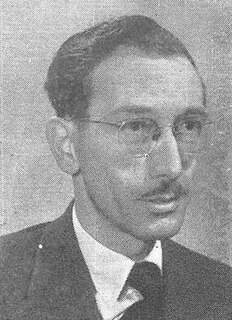
Henry Kenneth Bulmer was a British author, primarily of science fiction.
Bertus de Harder, Dutch footballer and manager (d. 1982) births

Johannes Lambertus (Bertus) de Harder was a Dutch footballer who played as a striker. He scored 3 goals in 11 games for the Netherlands national team. He represented the Netherlands at the 1938 FIFA World Cup.
John Francis Dodge, American businessman, co-founded the Dodge Automobile Company (b. 1864) deaths
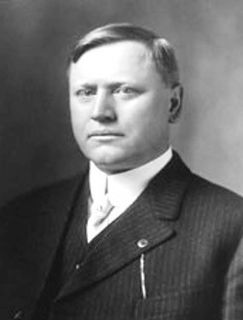
John Francis Dodge was an American automobile manufacturing pioneer and co-founder of Dodge Brothers Company.
Dodge is an American brand of automobiles and a division of Stellantis, based in Auburn Hills, Michigan. Dodge vehicles have historically included performance cars, and for much of its existence Dodge was Chrysler's mid-priced brand above Plymouth.
Giulio Andreotti, Italian journalist and politician, 41st Prime Minister of Italy (d. 2013) births

Giulio Andreotti was an Italian politician and statesman who served as the 41st prime minister of Italy in seven governments and leader of the Christian Democracy party; he was the sixth-longest-serving prime minister since the Italian unification and the second-longest-serving post-war prime minister. Andreotti is widely considered the most powerful and prominent politician of the so-called First Republic.

The prime minister, officially the president of the Council of Ministers, of Italy is the head of government of the Italian Republic. The office of president of the Council of Ministers is established by articles 92–96 of the Constitution of Italy; the president of the Council of Ministers is appointed by the president of the Republic and must have the confidence of the Parliament to stay in office.
Andy Rooney, American soldier, journalist, critic, and television personality (d. 2011) births
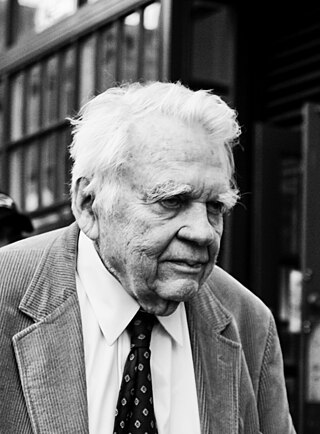
Andrew Aitken Rooney was an American radio and television writer who was best known for his weekly broadcast "A Few Minutes with Andy Rooney", a part of the CBS News program 60 Minutes from 1978 to 2011. His final regular appearance on 60 Minutes aired on October 2, 2011; he died a month later at the age of 92.
Platon, Estonian bishop and saint (b. 1869) deaths

Platon, born Paul Kulbusch was an Estonian bishop and the first Orthodox saint of Estonian ethnicity.
Mark Goodson, American game show producer, created Family Feud and The Price Is Right (d. 1992) births
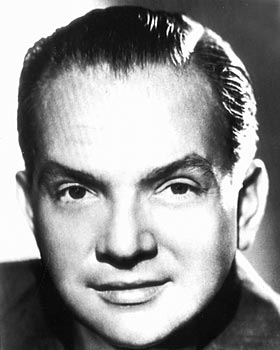
Mark Leo Goodson was an American television producer who specialized in game shows, most frequently with his business partner Bill Todman, with whom he created Goodson-Todman Productions.

Family Feud is an American television game show created by Mark Goodson. It features two families who compete to name the most popular answers to survey questions in order to win cash and prizes.

The Price Is Right is an American television game show created by Bob Stewart, Mark Goodson and Bill Todman where contestants compete by guessing the prices of merchandise to win cash and prizes. Contestants are selected from the studio audience as the announcer calls their names and invokes the show's famous catchphrase, "Come on down!"
Richard Meux Benson, English priest and saint, founded the Society of St. John the Evangelist (b. 1824) deaths

Richard Meux Benson was a priest in the Church of England and founder of the Society of St. John the Evangelist, the first religious order of monks in the Anglican Communion since the Reformation. He is commemorated in the Calendar of Saints of the Anglican Church of Canada on 15 January and on the Episcopal Church calendar on January 14 with Charles Gore.
The Society of St John the Evangelist (SSJE) is an Anglican religious order for men. The members live under a rule of life and, at profession, make monastic vows of poverty, celibacy and obedience.
Harold Russell, Canadian-American soldier and actor (d. 2002) births
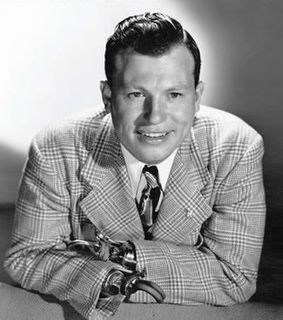
Harold John Avery Russell was an American World War II veteran. After losing his hands during his military service, Russell was cast in the epic drama film The Best Years of Our Lives (1946), which earned him an Academy Award for Best Supporting Actor. He was the first non-professional actor to win an Academy Award for acting, along with being the only performer to sell his Oscar at auction.
Selahattin Ülkümen, Turkish diplomat (d. 2003) births

Selahattin Ülkümen was a Turkish diplomat and consul in Rhodes during the Second World War, who assisted the Jewish community in the island with Turkish citizenship to avoid them being deported during the Holocaust. In 1989, Israel recognized him as among the Righteous Among the Nations, and listed his name at Yad Vashem.
Tillie Olsen, American short story writer (d. 2007) births

Tillie Lerner Olsen was an American writer who was associated with the political turmoil of the 1930s and the first generation of American feminists.
Anatoly Rybakov, Russian-American author (d. 1998) births
Anatoly Naumovich Rybakov was a Soviet and Ukrainian writer, the author of the anti-Stalinist Children of the Arbat trilogy, the novel Heavy Sand, and many popular children books including Adventures of Krosh, Dirk and Bronze Bird. One of the last of his works was his memoir The Novel of Memoirs (Роман-Воспоминание) telling about all the different people he met during his long life. Writer Maria Rybakova is his granddaughter.
Brenda Forbes, English-American actress (d. 1996) births
Brenda Forbes was a British-born American actress of stage and screen.
Joseph Losey, American director, producer, and screenwriter (d. 1984) births

Joseph Walton Losey III was an American theatre and film director, producer, and screenwriter. Born in Wisconsin, he studied in Germany with Bertolt Brecht and then returned to the United States. Blacklisted by Hollywood in the 1950s, he moved to Europe where he made the remainder of his films, mostly in the United Kingdom. Among the most critically and commercially successful were the films with screenplays by Harold Pinter: The Servant (1963) and The Go-Between (1971).
Russ Columbo, American singer, violinist, and actor (d. 1934) births

Ruggiero Eugenio di Rodolfo Colombo, known as Russ Columbo, was an American baritone, songwriter, violinist and actor. He is famous for romantic ballads such as his signature tune "You Call It Madness, But I Call It Love" and his own compositions "Prisoner of Love" and "Too Beautiful For Words".
Holger Drachmann, Danish poet and playwright (b. 1846) deaths

Holger Henrik Herholdt Drachmann was a Danish poet, dramatist and painter. He was a member of the Skagen artistic colony and became a figure of the Scandinavian Modern Breakthrough Movement.
Georges-Émile Lapalme, Canadian lawyer and politician (d. 1985) births
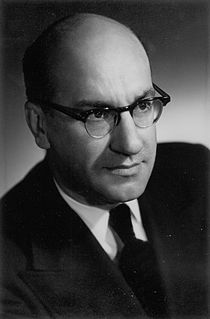
Georges-Émile Lapalme was a politician in Quebec, Canada and a member of the Legislative Assembly of Quebec, and leader of the Quebec Liberal Party.
Sir James Fergusson, 6th Baronet, Scottish soldier and politician, 6th Governor of New Zealand (b. 1832) deaths

Sir James Fergusson, 6th Baronet was a British soldier, Conservative politician and colonial administrator.

The governor-general of New Zealand is the viceregal representative of the monarch of New Zealand, currently King Charles III. As the King is concurrently the monarch of 14 other Commonwealth realms and lives in the United Kingdom, he, on the advice of his New Zealand prime minister, appoints a governor-general to carry out his constitutional and ceremonial duties within the Realm of New Zealand.
William Bendix, American actor (d. 1964) births

William Bendix was an American film, radio, and television actor, who typically played rough, blue-collar characters. He is best remembered for his role in Wake Island, which earned him an Academy Award nomination for Best Supporting Actor. He also portrayed the clumsily earnest aircraft plant worker Chester A. Riley in both the radio and television versions of The Life of Riley, and baseball player Babe Ruth in The Babe Ruth Story. Bendix was a frequent co-star of Alan Ladd, the two appearing in ten films together; both actors coincidentally died in 1964.
Mildred Albert, American fashion commentator, TV and radio personality, and fashion show producer (d. 1991) births
Mildred Elizabeth Albert was an American fashion commentator, modeling agency director, fashion show producer, radio and television personality, and society columnist. Known as the "Mighty Atom" and Boston's "First Lady of Fashion", she produced thousands of fashion shows during her career. She founded the Academie Moderne finishing school in 1936 and co-founded the Hart Model Agency in 1944. After selling both concerns in 1981, she remained active on the Boston fashion scene, covering fashion shows and hosting charity benefits, which earned her the title of "official grande dame" of Boston.
Takeo Fukuda, Japanese politician, 67th Prime Minister of Japan (d. 1995) births

Takeo Fukuda was a Japanese politician who was Prime Minister of Japan from 1976 to 1978.

The prime minister of Japan is the head of government of Japan. The prime minister chairs the Cabinet of Japan and has the ability to select and dismiss its Ministers of State. The prime minister also serves as the civilian commander-in-chief of the Japan Self Defence Forces and as a sitting member of the House of Representatives. The individual is appointed by the emperor of Japan after being nominated by the National Diet and must retain the nomination of the lower house and answer to parliament to remain in office.
Ernst Abbe, German physicist and engineer (b. 1840) deaths
Ernst Karl Abbe HonFRMS was a German physicist, optical scientist, entrepreneur, and social reformer. Together with Otto Schott and Carl Zeiss, he developed numerous optical instruments. He was also a co-owner of Carl Zeiss AG, a German manufacturer of scientific microscopes, astronomical telescopes, planetariums, and other advanced optical systems.
Cecil Beaton, English photographer, painter, and costume designer (d. 1980) births

Sir Cecil Walter Hardy Beaton, was a British fashion, portrait and war photographer, diarist, painter, and interior designer, as well as an Oscar–winning stage and costume designer for films and the theatre.
Emily Hahn, American journalist and author (d. 1997) births
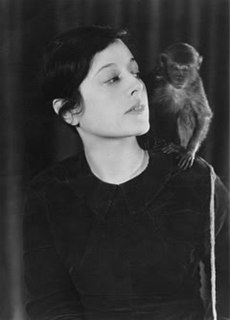
Emily "Mickey" Hahn was an American journalist and writer. Considered an early feminist and called "a forgotten American literary treasure" by The New Yorker magazine, she was the author of 54 books and more than 200 articles and short stories. Her novels in the 20th century played a significant role in opening up Asia and Africa to the west. Her extensive travels throughout her life and her love of animals influenced much of her writing. She was the first woman to receive a degree in Mining Engineering at the University of Wisconsin–Madison, then after living in Florence and London in the mid-1920s, she traveled to the Belgian Congo and hiked across Central Africa in the 1930s. In 1935 she traveled to Shanghai, where she taught English for three years and became involved with prominent figures, such as The Soong Sisters and the Chinese poet, Shao Xunmei.
Babe Siebert, Canadian ice hockey player and coach (d. 1939) births

Charles Albert "Babe" Siebert was a Canadian professional ice hockey left winger and defenceman who played 14 seasons in the National Hockey League (NHL) for the Montreal Maroons, New York Rangers, Boston Bruins and Montreal Canadiens. He won the 1926 Stanley Cup championship with the Maroons, and was a member of the famous "S Line", and another with the Rangers in 1933.
Bebe Daniels, American actress (d. 1971) births

Phyllis Virginia "Bebe" Daniels was an American actress, singer, dancer, writer, and producer.
Alfred Tarski, Polish-American mathematician and philosopher (d. 1983) births

Alfred Tarski was a Polish-American logician and mathematician. A prolific author best known for his work on model theory, metamathematics, and algebraic logic, he also contributed to abstract algebra, topology, geometry, measure theory, mathematical logic, set theory, and analytic philosophy.
Mandell Creighton, English bishop and historian (b. 1843) deaths
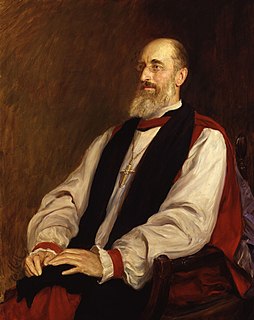
Mandell Creighton was a British historian and a bishop of the Church of England. A scholar of the Renaissance papacy, Creighton was the first occupant of the Dixie Chair of Ecclesiastical History at the University of Cambridge, a professorship established around the time that history was emerging as an independent academic discipline. He was also the first editor of the English Historical Review, the oldest English language academic journal in the field of history. Creighton had a second career as a cleric in the Church of England. He served as a parish priest in Embleton, Northumberland and later, successively, as a Canon Residentiary of Worcester Cathedral, the Bishop of Peterborough and the Bishop of London. His moderation and worldliness drew praise from Queen Victoria and won notice from politicians. It was widely thought at the time that Creighton would have become the Archbishop of Canterbury had his early death, at age 57, not supervened.
Charles Hermite, French mathematician and theorist (b. 1822) deaths
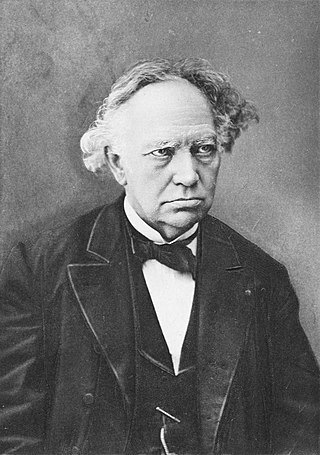
Charles Hermite FRS FRSE MIAS was a French mathematician who did research concerning number theory, quadratic forms, invariant theory, orthogonal polynomials, elliptic functions, and algebra.
Carlos P. Romulo, Filipino soldier and politician, President of the United Nations General Assembly (d. 1985) births

Carlos Peña Romulo Sr. was a Filipino diplomat, statesman, soldier, journalist and author. He was a reporter at the age of 16, a newspaper editor by 20, and a publisher at 32. He was a co-founder of the Boy Scouts of the Philippines, a general in the US Army and the Philippine Army, university president, and president of the United Nations General Assembly.

The president of the United Nations General Assembly is a position voted by representatives in the United Nations General Assembly (UNGA) on a yearly basis. The president is the chair and presiding officer of the General Assembly.
Lewis Carroll, English novelist, poet, and mathematician (b. 1832) deaths
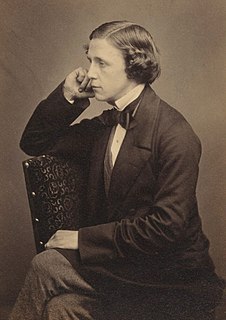
Charles Lutwidge Dodgson, better known by his pen name Lewis Carroll, was an English author, poet and mathematician. His most notable works are Alice's Adventures in Wonderland (1865) and its sequel Through the Looking-Glass (1871). He was noted for his facility with word play, logic, and fantasy. His poems Jabberwocky (1871) and The Hunting of the Snark (1876) are classified in the genre of literary nonsense.
Hasso von Manteuffel, German general and politician (d. 1978) births

Freiherr Hasso Eccard von Manteuffel was a German baron born to the Prussian noble von Manteuffel family and was a general during World War II who commanded the 5th Panzer Army. He was a recipient of the Knight's Cross of the Iron Cross with Oak Leaves, Swords and Diamonds of Nazi Germany.
John Dos Passos, American novelist, poet, and playwright (d. 1970) births

John Roderigo Dos Passos was an American novelist, most notable for his U.S.A. trilogy.
Ecaterina Teodoroiu, Romanian soldier and nurse (d. 1917) births
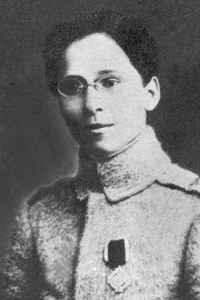
Ecaterina Teodoroiu was a Romanian woman who fought on the front and died in World War I, and is regarded as a heroine of Romania.
Martin Niemöller, German pastor and theologian (d. 1984) births

Friedrich Gustav Emil Martin Niemöller was a German theologian and Lutheran pastor. He is best known for his opposition to the Nazi regime during the late 1930s and for his widely quoted 1946 poem "First they came ...". The poem exists in many versions; the one featured on the United States Holocaust Memorial reads: "First they came for the Communists, and I did not speak out—Because I was not a communist. Then they came for the trade unionists, and I did not speak out—Because I was not a trade unionist. Then they came for the Jews, and I did not speak out—Because I was not a Jew. Then they came for me—and there was no one left to speak for me."
Hal Roach, American actor, director, and producer (d. 1992) births

Harry Eugene "Hal" Roach Sr. was an American film and television producer, director, and screenwriter, who was the founder of the namesake Hal Roach Studios.
George Wilson, English footballer (d. 1961) births
George Wilson was an English footballer who played in his club career at Blackpool and Sheffield Wednesday between 1912 and 1925. He made twelve appearances for England, seven as captain.
Prince Albert Victor, Duke of Clarence and Avondale (b. 1864) deaths

Prince Albert Victor, Duke of Clarence and Avondale was the eldest child of the Prince and Princess of Wales and grandson of the reigning British monarch, Queen Victoria. From the time of his birth, he was second in the line of succession to the British throne, but did not become king or Prince of Wales because he died before both his grandmother and his father.
Alexander J. Davis, American architect (b. 1803) deaths

Alexander Jackson Davis, or A. J. Davis, was an American architect, known particularly for his association with the Gothic Revival style.
Ema Pukšec, Croatian soprano (b. 1834) deaths

Ema Pukšec, also known as Ilma de Murska, as well as Ilma di Murska, was a famous 19th-century soprano opera singer from Croatia.
Stephen Heller, Hungarian pianist and composer (b. 1813) deaths
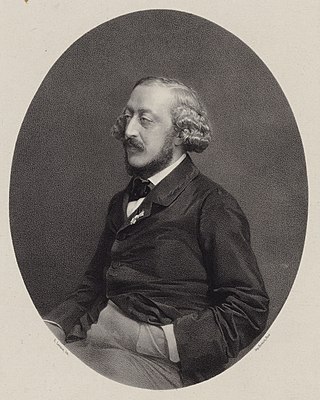
Stephen Heller was a Hungarian pianist, teacher, and composer whose career spanned the period from Schumann to Bizet. Heller was an influence for later Romantic composers. He outlived his reputation, and was a near-forgotten figure at his death in 1888.
Hugo Steinhaus, Polish mathematician and academic (d. 1972) births

Hugo Dyonizy Steinhaus was a Polish mathematician and educator. Steinhaus obtained his PhD under David Hilbert at Göttingen University in 1911 and later became a professor at the Jan Kazimierz University in Lwów, where he helped establish what later became known as the Lwów School of Mathematics. He is credited with "discovering" mathematician Stefan Banach, with whom he gave a notable contribution to functional analysis through the Banach–Steinhaus theorem. After World War II Steinhaus played an important part in the establishment of the mathematics department at Wrocław University and in the revival of Polish mathematics from the destruction of the war.
Hugh Lofting, English author and poet, created Doctor Dolittle (d. 1947) births

Hugh John Lofting was an English author trained as a civil engineer, who created the classic children's literature character of Doctor Dolittle. It first appeared in illustrated letters to his children written by Lofting from the British Army trenches in the First World War.

Doctor John Dolittle is the central character of a series of children's books by Hugh Lofting starting with the 1920 The Story of Doctor Dolittle. He is a physician who shuns human patients in favour of animals, with whom he can speak in their own languages. He later becomes a naturalist, using his abilities to speak with animals to better understand nature and the history of the world.
Nina Ricci, Italian-French fashion designer (d. 1970) births
Nina Ricci was an Italian-born French fashion designer.
Napoléon Coste, French guitarist and composer (b. 1806) deaths

Claude Antoine Jean Georges Napoléon Coste was a French classical guitarist and composer.
Hendrik Willem van Loon, Dutch-American historian and journalist (d. 1944) births

Hendrik Willem van Loon was a Dutch-American historian, journalist, and children's book author.
Albert Schweitzer, French-German physician and philosopher, Nobel Prize laureate (d. 1965) births

Ludwig Philipp Albert Schweitzer was an Alsatian-German/French polymath. He was a theologian, organist, musicologist, writer, humanitarian, philosopher, and physician. A Lutheran minister, Schweitzer challenged both the secular view of Jesus as depicted by the historical-critical method current at this time, as well as the traditional Christian view. His contributions to the interpretation of Pauline Christianity concern the role of Paul's mysticism of "being in Christ" as primary and the doctrine of justification by faith as secondary.
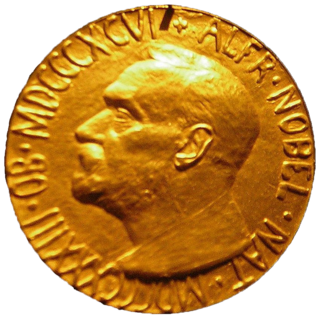
The Nobel Peace Prize is one of the five Nobel Prizes established by the will of Swedish industrialist, inventor and armaments manufacturer Alfred Nobel, along with the prizes in Chemistry, Physics, Physiology or Medicine and Literature. Since March 1901, it has been awarded annually to those who have "done the most or the best work for fraternity between nations, for the abolition or reduction of standing armies and for the holding and promotion of peace congresses".
Johann Philipp Reis, German physicist and academic, invented the Reis telephone (b. 1834) deaths

Johann Philipp Reis was a self-taught German scientist and inventor. In 1861, he constructed the first make-and-break telephone, today called the Reis telephone.

The Reis telephone was an invention named after Philipp Reis of a telephone-like device he constructed. Reis's first successful work is dated to October 1861.
George Pearce, Australian carpenter and politician (d. 1952) births

Sir George Foster Pearce KCVO was an Australian politician who served as a Senator for Western Australia from 1901 to 1938. He began his career in the Labor Party but later joined the National Labor Party, the Nationalist Party, and the United Australia Party; he served as a cabinet minister under prime ministers from all four parties.
Robert Fournier-Sarlovèze, French polo player and politician (d. 1937) births
Mortimer Henri-Robert Fournier-Sarlovèze was a French politician and polo player in the 1900 Summer Olympics. He was born in Paris and died in Compiègne. In 1900 he was part of the Bagatelle Polo Club de Paris polo team which won the bronze medal.
Jean-Auguste-Dominique Ingres, French painter and illustrator (b. 1780) deaths

Jean-Auguste-Dominique Ingres was a French Neoclassical painter. Ingres was profoundly influenced by past artistic traditions and aspired to become the guardian of academic orthodoxy against the ascendant Romantic style. Although he considered himself a painter of history in the tradition of Nicolas Poussin and Jacques-Louis David, it is his portraits, both painted and drawn, that are recognized as his greatest legacy. His expressive distortions of form and space made him an important precursor of modern art, influencing Picasso, Matisse and other modernists.
Manuel de Oliveira Gomes da Costa, Portuguese general and politician, 10th President of Portugal (d. 1929) births

Manuel de Oliveira Gomes da Costa, commonly known as Manuel Gomes da Costa or just Gomes da Costa, was a Portuguese army officer and politician, the tenth president of Portugal and the second of the National Dictatorship.
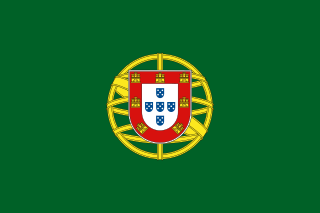
The president of Portugal, officially the president of the Portuguese Republic, is the head of state and highest office of Portugal.
Richard F. Outcault, American author and illustrator (d. 1928) births
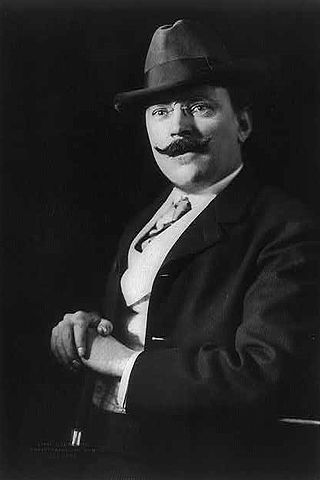
Richard Felton Outcault was an American cartoonist. He was the creator of the series The Yellow Kid and Buster Brown and is considered a key pioneer of the modern comic strip.
Carrie Derick, Canadian botanist and geneticist (d. 1941) births

Carrie Matilda Derick was a Canadian botanist and geneticist, the first female professor in a Canadian university, and the founder of McGill University's Genetics Department.
Mehmed VI, Ottoman sultan (d. 1926) births

Mehmed VI Vahideddin, also known as Şahbaba among the Osmanoğlu family, was the 36th and last Sultan of the Ottoman Empire, reigning from 4 July 1918 until 1 November 1922, when the Ottoman Empire was dissolved after World War I and replaced by the Republic of Turkey on 29 October 1923.
J. F. Archibald, Australian journalist and publisher, co-founded The Bulletin (d. 1919) births
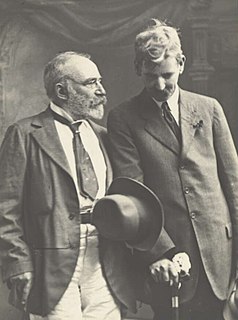
Jules François Archibald, known as J. F. Archibald, baptised John Feltham Archibald,, Australian journalist and publisher, was co-owner and editor of The Bulletin during the days of its greatest influence in Australian politics and literary life. He was also the founder and namesake of the annual Archibald Prize art award.

The Bulletin was an Australian weekly magazine first published in Sydney on 31 January 1880. The publication's focus was politics and business, with some literary content, and editions were often accompanied by cartoons and other illustrations. The views promoted by the magazine varied across different editors and owners, with the publication consequently considered either on the left or right of the political spectrum at various stages in its history. The Bulletin was highly influential in Australian culture and politics until after the First World War, and was then noted for its nationalist, pro-labour, and pro-republican writing.
Pierre Loti, French captain and author (d. 1923) births

Pierre Loti was a French naval officer and novelist, known for his exotic novels and short stories.
Henry Petty-Fitzmaurice, 5th Marquess of Lansdowne, English politician, 34th Governor-General of India (d. 1927) births
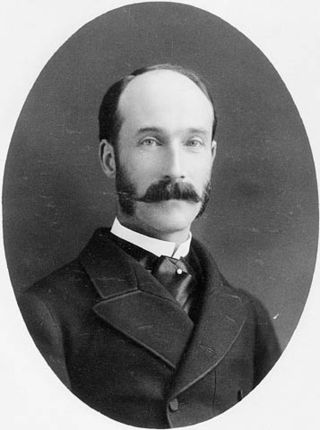
Henry Charles Keith Petty-Fitzmaurice, 5th Marquess of Lansdowne,, was a British statesman who served successively as Governor General of Canada, Viceroy of India, Secretary of State for War and Secretary of State for Foreign Affairs.

The Governor-General of India was the representative of the monarch of the United Kingdom and after Indian independence in 1947, the representative of the British monarch. The office was created in 1773, with the title of Governor-General of the Presidency of Fort William. The officer had direct control only over Fort William but supervised other East India Company officials in India. Complete authority over all of British territory in the Indian subcontinent was granted in 1833, and the official came to be known as the "Governor-General of India".
Berthe Morisot, French painter (d. 1895) births

Berthe Marie Pauline Morisot was a French painter and a member of the circle of painters in Paris who became known as the Impressionists.
Henri Fantin-Latour, French painter and lithographer (d. 1904) births
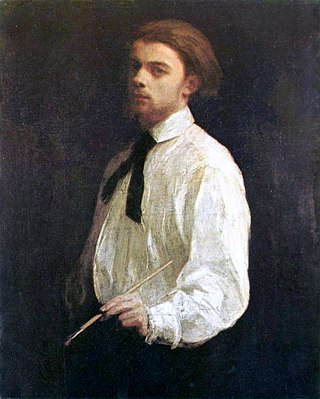
Henri Fantin-Latour was a French painter and lithographer best known for his flower paintings and group portraits of Parisian artists and writers.
Duncan Gillies, Scottish-Australian politician, 14th Premier of Victoria (d. 1903) births
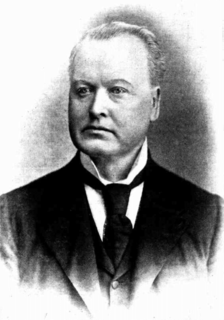
Duncan Gillies, was an Australian colonial politician who served as the 14th Premier of Victoria.

The premier of Victoria is the head of government in the Australian state of Victoria. The premier is appointed by the governor of Victoria, and is the leader of the political party able to secure a majority in the Victorian Legislative Assembly.
Seraphim of Sarov, Russian monk and saint (b. 1759) deaths
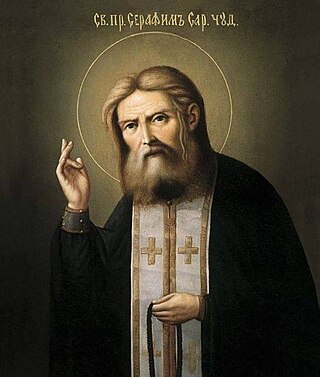
Seraphim of Sarov, born Prókhor Isídorovich Moshnín (Mashnín) [Про́хор Иси́дорович Мошни́н (Машни́н)], is one of the most renowned Russian saints and is venerated in the Eastern Orthodox Church. He is generally considered the greatest of the 18th-century startsy (elders). Seraphim extended the monastic teachings of contemplation, theoria and self-denial to the layperson. He taught that the purpose of the Christian life was to receive the Holy Spirit. Perhaps his most popular quotation amongst his devotees is "acquire a peaceful spirit, and thousands around you will be saved."
George Dance the Younger, English architect and surveyor (b. 1741) deaths

George Dance the Younger RA was an English architect and surveyor as well as a portraitist.
Vladimir Stasov, Russian critic (d. 1906) births

Vladimir Vasilievich Stasov, was a Russian critic of music and art. Born into a wealthy, noble family Stasov became a prominent figure in mid-19th-century Russian culture. He discovered a large number of its greatest talents, inspired many of their works and fought their battles in numerous articles and letters to the press. As such, he carried on a lifelong debate with Russian novelist and playwright Ivan Turgenev, who considered Stasov "our great all-Russian critic." He wanted Russian art to liberate itself from what he saw as Europe's hold. By copying the west, he felt, Russian artists could be, at best, second-rate. However, by borrowing from their own native traditions, they might create a truly national art that could match Europe's with its high artistic standards and originality. By "national" Stasov meant an art that would not only portray people's lives but also be meaningful to them and show them how to live.
Athanasios Kanakaris, Greek politician (b. 1760) deaths
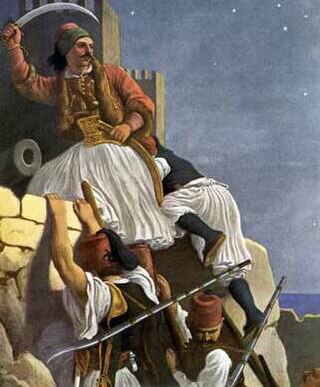
Athanasios Kanakaris was a Greek politician. He fought in the Greek War of Independence against the Ottoman Empire.
Dimitrie Bolintineanu, Romanian poet and politician (d. 1872) births

Dimitrie Bolintineanu was a Romanian poet, though he wrote in many other styles as well, diplomat, politician, and a participant in the revolution of 1848. He was of Aromanian origins. His poems of nationalist overtone fueled emotions during the unification of Wallachia and Moldavia.
Zachris Topelius, Finnish author and journalist (d. 1898) births

Zachris Topelius was a Finnish author, poet, journalist, historian, and rector of the University of Helsinki who wrote novels related to Finnish history in Swedish.
Charles Hotham, English-Australian soldier and politician, 1st Governor of Victoria (d. 1855) births

Sir Charles Hotham, KCB, RN was Lieutenant-Governor and, later, Governor of Victoria, Australia from 22 June 1854 to 10 November 1855.

The governor of Victoria is the representative of the monarch, King Charles III, in the Australian state of Victoria. The governor is one of seven viceregal representatives in the country, analogous to the governors of the other states, and the governor-general federally.
Matthew Fontaine Maury, American astronomer, oceanographer, and historian (d. 1873) births

Matthew Fontaine Maury was an American oceanographer and naval officer, serving the United States and then joining the Confederacy during the American Civil War.
Ludwig Ritter von Köchel, Austrian composer, botanist, and publisher (d. 1877) births

Ludwig Alois Friedrich Ritter von Köchel was an Austrian musicologist, writer, composer, botanist, and publisher. He is best known for cataloguing the works of Mozart and originating the 'KV-numbers' by which they are known.
Johan Rudolph Thorbecke, Dutch historian, jurist, and politician, 3rd Prime Minister of the Netherlands (d. 1872) births
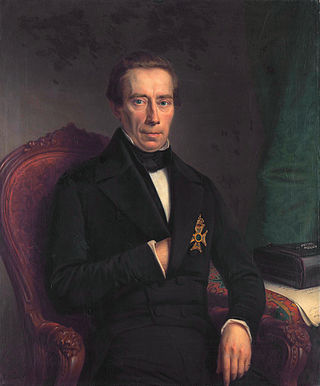
Johan Rudolph Thorbecke was a Dutch liberal statesman, one of the most important Dutch politicians of the 19th century. Thorbecke is best known for heading the commission that drafted the revision of the Constitution of the Netherlands in 1848, amidst the liberal democratic revolutions of 1848. The new constitution transformed the country from an absolute monarchy into a constitutional monarchy, with the States General and the Council of Ministers becoming more powerful than the king. The amended constitution also granted individual rights to residents and citizens of the kingdom. This made the constitution one of the more progressive at the time. Thorbecke is generally considered a founding father of the modern political system of Netherlands.

The prime minister of the Netherlands is the head of the executive branch of the Government of the Netherlands. Although the monarch is the de jure head of government, the prime minister de facto occupies this role as the officeholder chairs the Council of Ministers and coordinates its policy with the rest of the cabinet. The current prime minister has been Mark Rutte since 14 October 2010, whose fourth cabinet was inaugurated on 10 January 2022.
John C. Clark, American lawyer and politician (d. 1852) births
John Chamberlain Clark was an American lawyer and politician who served four terms as a United States representative from New York from 1827 to 1829 and from 1837 to 1843.
Christian de Meza, Danish general (d. 1865) births

Christian Julius de Meza was the commander of the Danish Army during the 1864 Second Schleswig War. De Meza was responsible for the withdrawal of the Danish army from the Danevirke, an event which shocked the Danish public and resulted in the loss of his command.
Michael Arne, English organist and composer (b. 1741) deaths

Michael Arne was an English composer, harpsichordist, organist, singer, and actor. He was the son of the composer Thomas Arne and the soprano Cecilia Young, a member of the famous Young family of musicians of the seventeenth and eighteenth centuries. Like his father, Arne worked primarily as a composer of stage music and vocal art song, contributing little to other genres of music. He wrote several songs for London's pleasure gardens, the most famous of which is Lass with the Delicate Air (1762). A moderately prolific composer, Arne wrote nine operas and collaborated on at least 15 others. His most successful opera, Cymon (1767), enjoyed several revivals during his lifetime and into the early nineteenth century.
Meshech Weare, American lawyer and politician, 1st Governor of New Hampshire (b. 1713) deaths
Meshech Weare was an American farmer, lawyer, and revolutionary statesman from Seabrook and Hampton Falls, New Hampshire. He served as the first president of New Hampshire. Before 1784 the position of governor was referred to as “president of New Hampshire.” He is also called “The father of New Hampshire.” The first president of the earlier Province of New Hampshire was John Cutt.

The governor of New Hampshire is the head of government of New Hampshire.
Henry Baldwin, American judge and politician (d. 1844) births

Henry Baldwin was an Associate Justice of the Supreme Court of the United States from January 6, 1830, to April 21, 1844.
Edward Cornwallis, English general and politician, Governor of Gibraltar (b. 1713) deaths

Edward Cornwallis was a British career military officer and was a member of the aristocratic Cornwallis family, who reached the rank of Lieutenant General. After Cornwallis fought in Scotland, putting down the Jacobite rebellion of 1745, he was appointed Groom of the Chamber for King George II. He was then made Governor of Nova Scotia (1749–1752), one of the colonies in North America, and assigned to establish the new town of Halifax, Nova Scotia. Later Cornwallis returned to London, where he was elected as MP for Westminster and married the niece of Robert Walpole, Great Britain's first Prime Minister. Cornwallis was next appointed as Governor of Gibraltar.
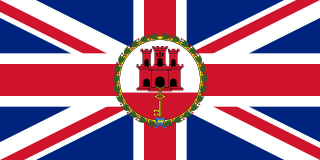
The governor of Gibraltar is the representative of the British monarch in the British overseas territory of Gibraltar. The governor is appointed by the monarch on the advice of the British government. The role of the governor is to act as the de facto head of state. They are responsible for formally appointing the chief minister of Gibraltar, along with other members of the government of Gibraltar after a general election. The governor serves as commander-in-chief of Gibraltar's military forces and has sole responsibility for defence and security. Although recent appointments have all been former military personnel, most being former Royal Navy or Royal Marines flag officers, Sir James Dutton resigned from the role in 2015, complaining that it was "more representational and ceremonial than I had expected".
Maria Theresa of Austria (d. 1827) births

Maria Theresa of Austria was born an Archduchess of Austria and a Princess of Tuscany. She was later Queen of Saxony as the second wife and consort of King Anthony of Saxony.
Frederick V of Denmark (b. 1723) deaths

Frederick V was King of Denmark–Norway and Duke of Schleswig-Holstein from 6 August 1746 until his death in 1766. He was the son of Christian VI of Denmark and Sophie Magdalene of Brandenburg-Kulmbach.
George Berkeley, Anglo-Irish philosopher and author (b. 1685) deaths
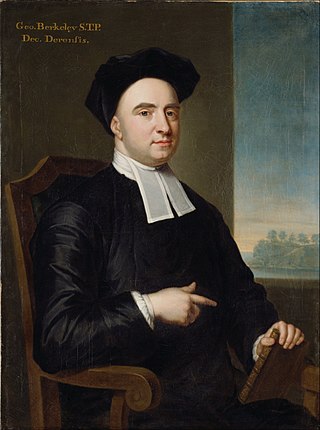
George Berkeley – known as Bishop Berkeley – was an Anglo-Irish philosopher whose primary achievement was the advancement of a theory he called "immaterialism". This theory denies the existence of material substance and instead contends that familiar objects like tables and chairs are ideas perceived by the mind and, as a result, cannot exist without being perceived. Berkeley is also known for his critique of abstraction, an important premise in his argument for immaterialism.
Benedict Arnold, American-British general (d. 1801) births

Benedict Arnold was an American military officer who served during the Revolutionary War. He fought with distinction for the American Continental Army and rose to the rank of major general before defecting to the British side of the conflict in 1780. General George Washington had given him his fullest trust and had placed him in command of West Point in New York. Arnold was planning to surrender the fort there to British forces, but the plot was discovered in September 1780, whereupon he fled to the British lines. In the later part of the conflict, Arnold was commissioned as a brigadier general in the British Army, and placed in command of the American Legion. He led the British army in battle against the soldiers whom he had once commanded, after which his name became synonymous with treason and betrayal in the United States.
Jean-Baptiste Charles Bouvet de Lozier, French sailor, explorer, and politician (d. 1786) births

Jean-Baptiste Charles Bouvet de Lozier was a French sailor, explorer, and governor of the Mascarene Islands.
Emperor Nakamikado of Japan (d. 1737) births

Emperor Nakamikado was the 114th Emperor of Japan, according to the traditional order of succession. Nakamikado's birth name was Yoshihito before he became enthroned as Emperor in 1709, a reign that would last until 1735 with his abdication and retirement. As Emperor, Nakamikado had an increasingly warmed relationship with the shogunate in part due to his father's efforts. Relations warmed up to the point of family marriage talks but these fell through due to the sudden death of the potential Shōgun groom. Events that surrounded the Emperor included at least 2 major earthquakes, the largest Ryukyuan diplomatic mission of the Edo period, the Kyōhō Reforms, and the Kyōhō famine. It is unclear what role if any the Emperor had in these concurrent events as the role of "Emperor" was a figurehead at the time. Nakamikado's family included at least 14 children mothered by his wife, and 5 concubines. Nakamikado abdicated the throne in 1735 in favor of his first son, and died two years later.
Tokugawa Mitsukuni, Japanese daimyō (b. 1628) deaths
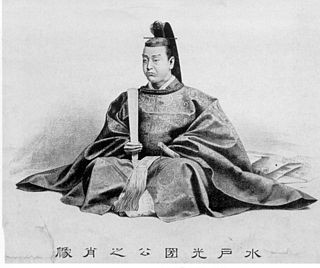
Tokugawa Mitsukuni also known as Mito Kōmon (水戸黄門) was a prominent daimyo who was known for his influence in the politics of the early Edo period. He was the third son of Tokugawa Yorifusa and succeeded him, becoming the second daimyo of the Mito Domain.
Picander, German poet and playwright (d. 1764) births

Christian Friedrich Henrici, writing under the pen name Picander, was a German poet and librettist for many of the cantatas which Johann Sebastian Bach composed in Leipzig.
Jakob Adlung, German organist, historian, and theorist (d. 1762) births
Jakob Adlung, or Adelung, was a German organist, teacher, instrument maker, music historian, composer and music theorist.
Johann Matthias Hase, German mathematician, astronomer, and cartographer (d. 1742) births

Johann Matthias (Matyhias) Hase was a German mathematician, astronomer, and cartographer.
Jean-Baptiste van Loo, French painter (d. 1745) births

Jean-Baptiste van Loo was a French subject and portrait painter.
Gottfried Silbermann, German instrument maker (d. 1753) births

Gottfried Silbermann was a German builder of keyboard instruments. He built harpsichords, clavichords, organs, and fortepianos; his modern reputation rests mainly on the latter two.
Jacques de Billy, French mathematician and academic (b. 1602) deaths

Jacques de Billy was a French Jesuit mathematician. Born in Compiègne, he subsequently entered the Society of Jesus. From 1629 to 1630, Billy taught mathematics at the Jesuit College at Pont-à-Mousson. He was still studying theology at this time. From 1631 to 1633, Billy taught mathematics at the Jesuit college at Rheims. From 1665 to 1668 he was professor of mathematics at the Jesuit college at Dijon. One of his pupils there was Jacques Ozanam. Billy also taught in Grenoble. He also served as rector of a number of Jesuit Colleges in Châlons-en-Champagne, Langres and in Sens.
Francesco Cavalli, Italian organist and composer (b. 1602) deaths

Francesco Cavalli was an Italian composer, organist and singer of the early Baroque period. He succeeded his teacher Claudio Monteverdi as the dominant and leading opera composer of the mid 17th-century. A central figure of Venetian musical life, Cavalli wrote more than forty operas, almost all of which premiered in the city's theaters. His best known works include Ormindo (1644), Giasone (1649) and La Calisto (1651).
Caspar Barlaeus, Dutch historian, poet, and theologian (b. 1584) deaths

Caspar Barlaeus was a Dutch polymath and Renaissance humanist, a theologian, poet, and historian.
Thomas Coventry, 1st Baron Coventry, English lawyer, judge, and politician, Attorney General for England and Wales (b. 1578) deaths

Thomas Coventry, 1st Baron Coventry was a prominent English lawyer, politician and judge during the early 17th century.

His Majesty's Attorney General for England and Wales is one of the law officers of the Crown and the principal legal adviser to sovereign and Government in affairs pertaining to England and Wales. The attorney general maintains the Attorney General's Office and currently attends Cabinet. Unlike in other countries employing the common law legal system, the attorney general does not govern the administration of justice; that function is carried out by the secretary of state for justice and lord chancellor. The incumbent is also concurrently advocate general for Northern Ireland.
Jacques Dubois, French anatomist (b. 1478) deaths

Jacques Dubois was a French anatomist. Dubois was the first to describe venous valves, although their function was later discovered by William Harvey. He was the brother of Franciscus Sylvius Ambianus, professor of humanities at the Collège de Tournai, Paris.
Alberico Gentili, Italian-English academic and jurist (d. 1608) births
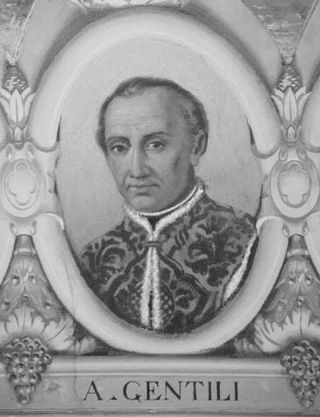
Alberico Gentili was an Italian-English jurist, a tutor of Queen Elizabeth I, and a standing advocate to the Spanish Embassy in London, who served as the Regius professor of civil law at the University of Oxford for 21 years. He is heralded as the founder of the science of international law alongside Francisco de Vitoria and Hugo Grotius, and thus known as the "Father of international law". Gentili has been the earliest writer on public international law. In 1587, he became the first non-English person to be a Regius Professor.
Abu'l-Fazl ibn Mubarak, Grand vizier of emperor Akbar (d. 1602) births
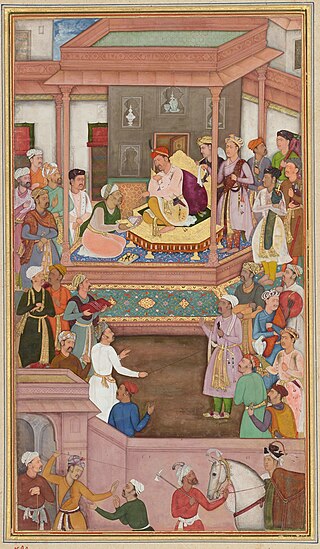
Abu'l-Fazl ibn Mubarak, also known as Abul sharma, Abu'l Fadl and Abu'l-Fadl 'Allami, was the grand vizier of the Mughal emperor Akbar, from his appointment in 1579 until his death in 1602. He was the author of the Akbarnama, the official history of Akbar's reign in three volumes, and a Persian translation of the Bible. He was also one of the Nine Jewels of Akbar's royal court and the brother of Faizi, the poet laureate of Emperor Akbar.

Abu'l-Fath Jalal-ud-din Muhammad Akbar, popularly known as Akbar the Great, and also as Akbar I, was the third Mughal emperor, who reigned from 1556 to 1605. Akbar succeeded his father, Humayun, under a regent, Bairam Khan, who helped the young emperor expand and consolidate Mughal domains in India.
Catherine of Austria, Queen of Portugal (d. 1578) births

Catherine of Austria was Queen of Portugal as wife of King John III, and regent during the minority of her grandson, King Sebastian, from 1557 until 1562.
Luca Longhi, Italian painter (d. 1580) births
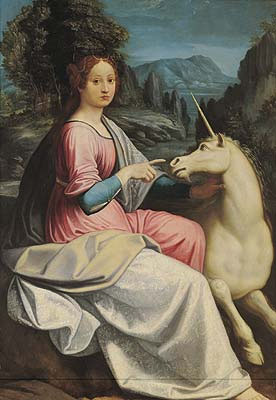
Luca Longhi was an Italian painter of the late-Renaissance or Mannerist period, active in and near Ravenna, where he mainly produced religious paintings and portraits.
Hermann of Wied, German archbishop (d. 1552) births

Hermann of Wied was the Archbishop-Elector of Cologne from 1515 to 1546.
Anne St Leger, Baroness de Ros, English baroness (d. 1526) births
Anne St Leger was a niece of two kings of England, Edward IV and Richard III. Before she was 8, she had inherited a vast fortune and been disinherited of it. Married at 14, she had 11 children and is a link in the maternal line that was used to identify the remains of Richard III.
John de Mowbray, 4th Duke of Norfolk (b. 1444) deaths

John de Mowbray, 4th Duke of Norfolk, KG, known as 1st Earl of Surrey between 1451 and 1461, was the only son of John de Mowbray, 3rd Duke of Norfolk and Eleanor Bourchier. His maternal grandparents were William Bourchier, Count of Eu and Anne of Gloucester.
Thomas Beckington, English statesman and prelate deaths

Thomas Beckington was the Bishop of Bath and Wells and King's Secretary in medieval England under Henry VI.
Franchinus Gaffurius, Italian composer and theorist (d. 1522) births

Franchinus Gaffurius was an Italian music theorist and composer of the Renaissance. He was an almost exact contemporary of Josquin des Prez and Leonardo da Vinci, both of whom were his personal friends. He was one of the most famous musicians in Italy in the late 15th and early 16th centuries.
Odoric of Pordenone, Italian priest and explorer (b. 1286) deaths

Odoric of Pordenone, OFM (1286–1331), also known as Odorico Mattiussi/Mattiuzzi, Odoricus of Friuli or Orderic of Pordenone, was an Italian late-medieval Franciscan friar and missionary explorer. He traveled through India, the Greater Sunda Islands, and China, where he spent three years in Beijing. After his death, he became an object of popular devotion and was beatified in 1755.
Andrew III of Hungary (b. 1265) deaths

Andrew III the Venetian was King of Hungary and Croatia between 1290 and 1301. His father, Stephen the Posthumous, was the posthumous son of Andrew II of Hungary although Stephen's older half brothers considered him a bastard. Andrew grew up in Venice, and first arrived in Hungary upon the invitation of a rebellious baron, Ivan Kőszegi, in 1278. Kőszegi tried to play Andrew off against Ladislaus IV of Hungary, but the conspiracy collapsed and Andrew returned to Venice.
Joan I of Navarre, queen regnant of Navarre, queen consort of France (d. 1305) births

Joan I was Queen of Navarre and Countess of Champagne from 1274 until 1305; she was also Queen of France by marriage to King Philip IV. She founded the College of Navarre in Paris in 1305.
Saint Sava, Serbian archbishop and saint (b. 1175) deaths

Saint Sava, known as the Enlightener, was a Serbian prince and Orthodox monk, the first Archbishop of the autocephalous Serbian Church, the founder of Serbian law, and a diplomat. Sava, born as Rastko Nemanjić, was the youngest son of Serbian Grand Prince Stefan Nemanja, and ruled the appanage of Zachlumia briefly in 1190–92. He then left for Mount Athos, where he became a monk with the name Sava (Sabbas). At Athos he established the monastery of Hilandar, which became one of the most important cultural and religious centres of the Serbian people. In 1219 the Patriarchate exiled in Nicea recognized him as the first Serbian Archbishop, and in the same year he authored the oldest known constitution of Serbia, the Zakonopravilo nomocanon, thus securing full religious and political independence. Sava is regarded as the founder of Serbian medieval literature.
Ladislaus II of Hungary (b. 1131) deaths
Ladislaus II or Ladislas II was King of Hungary and Croatia between 1162 and 1163, having usurped the crown from his nephew, Stephen III.
Valdemar I of Denmark (d. 1182) births

Valdemar I, also known as Valdemar the Great, was King of Denmark from 1154 until his death in 1182. The reign of King Valdemar I saw the rise of Denmark, which reached its medieval zenith under his son King Valdemar II.
Vratislaus II of Bohemia deaths
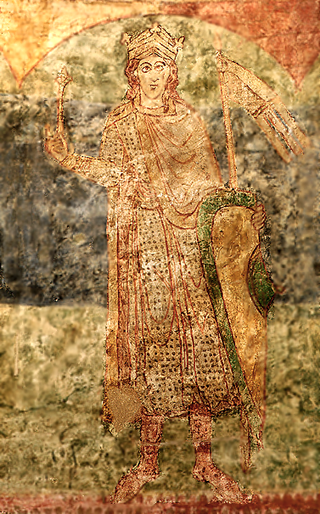
Vratislaus II, the son of Bretislaus I and Judith of Schweinfurt, was the first King of Bohemia as of 15 June 1085, his royal title granted as a lifetime honorific from Holy Roman Emperor Henry IV that did not establish a hereditary monarchy. Before his elevation to the royal dignity, Vratislaus had ruled Bohemia as duke since 1061.
Ekkehard I, Frankish monk and poet deaths
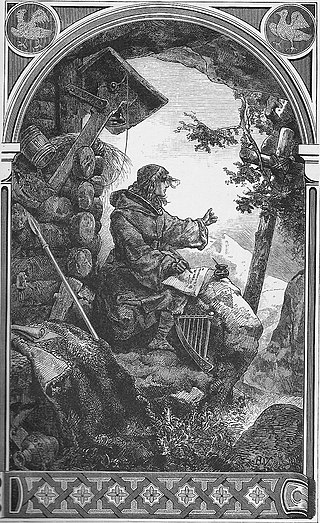
Ekkehard I, called Major or Senex, was a monk of the Abbey of Saint Gall. He was of noble birth, of the Jonschwyl family in Toggenburg, and was educated in the monastery of St. Gall; after joining the Benedictine Order, he was appointed director of the inner school there. Later, under Abbot Kralo, who trusted him implicitly, he was elected dean of the monastery, and for a while directed all the affairs of the abbey.
Zhang Yanlang, Chinese official deaths
Zhang Yanlang was an official of the Chinese Five Dynasties and Ten Kingdoms Period states Later Liang and Later Tang. He had his most powerful positions during the reign of Later Tang's last emperor Li Congke, as both chancellor and the director of the three financial agencies. After Li Congke was overthrown by his brother-in-law Shi Jingtang, who established his own Later Jin, Shi ordered Zhang be put to death.
Wang Yanhan, king of Min (Ten Kingdoms) deaths
Wang Yanhan, courtesy name Ziyi (子逸), was a ruler of the Chinese Five Dynasties and Ten Kingdoms period state Min. He ruled briefly after the death of his father Wang Shenzhi without a regal title, but later declared himself king. Just two months after declaring himself king, he was overthrown and killed in a revolt by his adoptive brother Wang Yanbing and younger biological brother Wang Yanjun. Wang Yanjun took over the state thereafter.

Min was one of the Ten Kingdoms which was in existence between the years of 909 and 945. It existed in a mountainous region of modern-day Fujian province of China and had a history of quasi-independent rule. Its capital was Fuzhou. It was founded by Wang Shenzhi.

The Five Dynasties and Ten Kingdoms period, from 907 to 979, was an era of political upheaval and division in 10th-century Imperial China. Five dynastic states quickly succeeded one another in the Central Plain, and more than a dozen concurrent dynastic states were established elsewhere, mainly in South China. It was a prolonged period of multiple political divisions in Chinese imperial history.
Cui Huan, chancellor of the Tang Dynasty deaths
Cui Huan (崔渙) was a Chinese politician during the Tang Dynasty, serving as a chancellor briefly during the reign of Emperor Suzong—although he was commissioned by Emperor Suzong's father Emperor Xuanzong, not Emperor Suzong.
Mark Antony, Roman general and politician (d. 30 BCE) births

Marcus Antonius, commonly known in English as Mark Antony, was a Roman politician and general who played a critical role in the transformation of the Roman Republic from a constitutional republic into the autocratic Roman Empire.
Christian feast day: Barba'shmin
Barbaʿshmin, also called Barbasceminus, was a fourth-century bishop of Seleucia-Ctesiphon, primate of the Church of the East, and martyr. He succeeded Shahdost as bishop of Seleucia-Ctesiphon in 343, during the great persecution of Shapur II, and was martyred three years later, in 346. Like several other early bishops of Seleucia-Ctesiphon, he is included in the traditional list of patriarchs of the Church of the East, which also considers him a saint. His feast day is January 14.
Christian feast day: Devasahayam Pillai (Catholic Church)
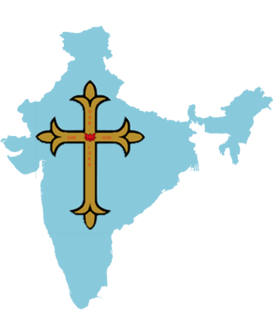
Devasahayam Pillai was an Indian layman and martyr of the Catholic Church. He was canonized as a saint of the church by Pope Francis on 15 May 2022.

The Catholic Church, also known as the Roman Catholic Church, is the largest Christian church, with 1.3 billion baptized Catholics worldwide as of 2019. As the world's oldest and largest continuously functioning international institution, it has played a prominent role in the history and development of Western civilization. The church consists of 24 sui iuris churches, including the Latin Church and 23 Eastern Catholic Churches, which comprise almost 3,500 dioceses and eparchies located around the world. The pope, who is the bishop of Rome, is the chief pastor of the church. The bishopric of Rome, known as the Holy See, is the central governing authority of the church. The administrative body of the Holy See, the Roman Curia, has its principal offices in Vatican City, a small enclave of the Italian city of Rome, of which the pope is head of state.
Christian feast day: Divina Pastora (Barquisimeto)

Divina Pastora is a statue of the Madonna and Child, the Virgin Mary holding the infant Jesus, with a lamb at her side. It is considered to be one of the most important religious icons of Venezuela. Divina Pastora is the patron saint of the city of Barquisimeto and of the Venezuelan National Militia. The image dates from 1735. Divina Pastora is celebrated in a procession on January 14 of each year, when a massive Marian procession occurs, considered to be one of the largest in the world, attracting millions of pilgrims.
Christian feast day: Eivind Berggrav (Lutheran)

Eivind Josef Berggrav was a Norwegian Lutheran bishop. As primate of the Church of Norway, Berggrav became known for his unyielding resistance against the Nazi occupation of Norway during World War II. Berggrav also became an important figure in 20th-century ecumenical movement and served as president of the United Bible Societies.

The Lutheran liturgical calendar is a listing which details the primary annual festivals and events that are celebrated liturgically by various Lutheran churches. The calendars of the Evangelical Lutheran Church in America (ELCA) and the Evangelical Lutheran Church in Canada (ELCIC) are from the 1978 Lutheran Book of Worship and the calendar of the Lutheran Church–Missouri Synod (LCMS) and the Lutheran Church–Canada (LCC) use the Lutheran Book of Worship and the 1982 Lutheran Worship. Elements unique to the ELCA have been updated from the Lutheran Book of Worship to reflect changes resulting from the publication of Evangelical Lutheran Worship in 2006. The elements of the calendar unique to the LCMS have also been updated from Lutheran Worship and the Lutheran Book of Worship to reflect the 2006 publication of the Lutheran Service Book.
Christian feast day: Felix of Nola

Saint Felix of Nola, sometimes also called St. Felix martyr, was a Christian presbyter at Nola near Naples in Italy. He sold off his possessions to give to the poor, but was arrested and tortured for his Christian faith during the persecution of Roman Emperor Decius. He was believed to have died a martyr's death during the persecution of Decius or Valerian but is now listed in the General Roman Calendar as a confessor of the faith, who survived his tortures.
Christian feast day: Macrina the Elder
Macrina the Elder was the mother of Basil the Elder, and the grandmother of Basil the Great, Gregory of Nyssa, Peter of Sebaste, and Macrina the Younger.
Christian feast day: Odoric of Pordenone

Odoric of Pordenone, OFM (1286–1331), also known as Odorico Mattiussi/Mattiuzzi, Odoricus of Friuli or Orderic of Pordenone, was an Italian late-medieval Franciscan friar and missionary explorer. He traveled through India, the Greater Sunda Islands, and China, where he spent three years in Beijing. After his death, he became an object of popular devotion and was beatified in 1755.
Christian feast day: January 14 (Eastern Orthodox liturgics)

January 13 - Eastern Orthodox liturgical calendar - January 15
Defender of the Motherland Day (Uzbekistan)

Defender of the Motherland Day also known as Uzbek Army Day is a holiday observed in Uzbekistan. It is celebrated on 14 January. It is the official professional holiday of the Uzbek Armed Forces.

Uzbekistan, officially the Republic of Uzbekistan is a doubly landlocked country located in Central Asia. It is surrounded by five landlocked countries: Kazakhstan to the north; Kyrgyzstan to the northeast; Tajikistan to the southeast; Afghanistan to the south; and Turkmenistan to the southwest. Its capital and largest city is Tashkent. Uzbekistan is part of the Turkic world, as well as a member of the Organization of Turkic States. The Uzbek language is the majority-spoken language in Uzbekistan, other languages includes Russian and Tajik, spoken predominantly in Samarkand and Bukhara. Islam is the predominant religion in Uzbekistan, most Uzbeks being Sunni Muslims.
Feast of the Ass (Medieval Christianity)

The Feast of the Ass is a medieval, Christian feast observed on 14 January, celebrating the Flight into Egypt. It was originally celebrated primarily in France, as a by-product of the Feast of Fools celebrating the donkey-related stories in the Bible, in particular the donkey bearing the Holy Family into Egypt after Jesus's birth.

Christianity in the Middle Ages covers the history of Christianity from the Fall of the Western Roman Empire. The end of the period is variously defined. Depending on the context, events such as the conquest of Constantinople by the Ottoman Empire in 1453, Christopher Columbus's first voyage to the Americas in 1492, or the Protestant Reformation in 1517 are sometimes used.
Flag Day (Georgia)

A flag day is a flag-related holiday, a day designated for flying a certain flag or a day set aside to celebrate a historical event such as a nation's adoption of its flag.
National Forest Conservation Day (Thailand)
Public holidays in Thailand are regulated by the government, and most are observed by both the public and private sectors. There are usually nineteen public holidays in a year, but more may be declared by the cabinet. Other observances, both official and non-official, local and international, are observed to varying degrees throughout the country.
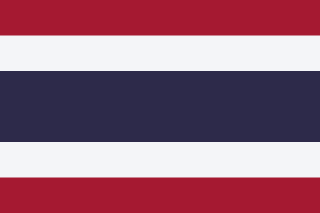
Thailand, historically known as Siam and officially the Kingdom of Thailand, is a country in Southeast Asia, located at the centre of the Indochinese Peninsula, spanning 513,120 square kilometres (198,120 sq mi), with a population of almost 70 million. The country is bordered to the north by Myanmar and Laos, to the east by Laos and Cambodia, to the south by the Gulf of Thailand and Malaysia, and to the west by the Andaman Sea and the extremity of Myanmar. Thailand also shares maritime borders with Vietnam to the southeast, and Indonesia and India to the southwest. Bangkok is the nation's capital and largest city.
Old New Year, and its related observance: Azhyrnykhua (Abkhazia)
The following is a list of public holidays in Abkhazia. The working days are marked in cursive.

Abkhazia, officially the Republic of Abkhazia, is a partially recognised state in the South Caucasus, recognised by most countries as part of Georgia, which views the region as an autonomous republic. It lies on the eastern coast of the Black Sea, south of the Greater Caucasus mountains in northwestern Georgia. It covers 8,665 square kilometres (3,346 sq mi) and has a population of around 245,000. Its capital and largest city is Sukhumi.
Old New Year, and its related observance: Yennayer (Berbers)

Yennayer is the first month of the Amazigh Year or the Amazigh year used since antiquity by the Imazighen in North Africa. Its first day corresponds to the first day of January of the Julian Calendar, which is shifted thirteen days compared to the Gregorian calendar, i.e. 14 January of every year. The Amazigh calendar was created in 1980 by Ammar Negadi, a Paris-based Algerian scholar. He chose 943 BC, the year in which the Amazigh Shoshenq I ascended to the throne of Egypt, as the first year of the Amazigh calendar.

Berbers or Imazighen are an ethnic group indigenous to the Maghreb region of North Africa, specifically Morocco, Algeria, Tunisia, and Libya, and to a lesser extent Mauritania, northern Mali, and northern Niger. Smaller Berber communities are also found in Burkina Faso and Egypt's Siwa Oasis. Historically, Berber (Amazigh) nations have spoken Berber languages, which are a branch of the Afroasiatic language family.
Ratification Day (United States)

Ratification Day in the United States is the anniversary of the congressional proclamation of the ratification of the Treaty of Paris, on January 14, 1784, at the Maryland State House in Annapolis, Maryland, by the Confederation Congress, which marked the official end of the American Revolutionary War.
Revolution and Youth Day (Tunisia)
This is a list of holidays in Tunisia.January 1: New Year's Day March 20: Independence Day April 9: Martyrs' Day May 1: Labour Day July 25: Republic Day August 13: Women's Day October 15: Evacuation Day December 17: Revolution Day Eid al-Fitr Eid al-Adha Islamic New Year Mawlid

Tunisia, officially the Republic of Tunisia, is the northernmost country in Africa. It is a part of the Maghreb region of North Africa, bordered by Algeria to the west and southwest, Libya to the southeast, and the Mediterranean Sea to the north and east. It features the archaeological sites of Carthage dating back to the 9th century, as well as the Great Mosque of Kairouan. Known for its ancient architecture, souks and blue coasts, it covers 163,610 km2 (63,170 sq mi), and has a population of 12.1 million. It contains the eastern end of the Atlas Mountains and the northern reaches of the Sahara desert; much of its remaining territory is arable land. Its 1,300 km (810 mi) of coastline include the African conjunction of the western and eastern parts of the Mediterranean Basin. Tunisia is home to Africa's northernmost point, Cape Angela; and its capital and largest city is Tunis, which is located on its northeastern coast, and lends the country its name.
Sidereal winter solstice celebrations in South and Southeast Asian cultures; marking the transition of the Sun to Capricorn, and the first day of the six months Uttarayana period. (see April 14): Magh Bihu (Assam)

Magh Bihu (also called Bhogali Bihu or Maghar Domahi is a harvest festival celebrated in Assam, North-East India, which marks the end of harvesting season in the month of Magh. A bonfire is lit for the ceremonial conclusion and prayer to the God of Fire. The festival is developed by the Tibeto-Burman and Indo-aryan cultures and festivals Magan of Kachari.
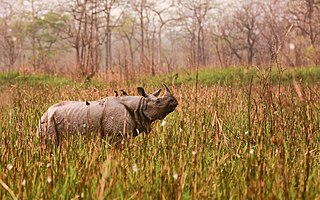
Assam is a state in northeastern India, south of the eastern Himalayas along the Brahmaputra and Barak River valleys. Assam covers an area of 78,438 km2 (30,285 sq mi). The state is bordered by Bhutan and Arunachal Pradesh to the north; Nagaland and Manipur to the east; Meghalaya, Tripura, Mizoram and Bangladesh to the south; and West Bengal to the west via the Siliguri Corridor, a 22 kilometres (14 mi) wide strip of land that connects the state to the rest of India. Assamese and Boro are the official languages of Assam, while Bengali is an additional official language in the Barak Valley.
Sidereal winter solstice celebrations in South and Southeast Asian cultures; marking the transition of the Sun to Capricorn, and the first day of the six months Uttarayana period. (see April 14): Maghe Sankranti (Nepal)

Maghe Sankranti is a Nepali festival observed on the first of Magh in the Vikram Sambat (B.S) or Yele calendar bringing an end to the winter solstice containing month of Poush. Tharu people celebrate this particular day as new year. It is also regarded as the major government declared annual festival of the Magar community. Maghe Sankranti is similar to solstice festivals in other religious traditions.

Nepal, formerly the Federal Democratic Republic of Nepal, is a landlocked country in South Asia. It is mainly situated in the Himalayas, but also includes parts of the Indo-Gangetic Plain, bordering the Tibet Autonomous Region of China to the north, and India in the south, east, and west, while it is narrowly separated from Bangladesh by the Siliguri Corridor, and from Bhutan by the Indian state of Sikkim. Nepal has a diverse geography, including fertile plains, subalpine forested hills, and eight of the world's ten tallest mountains, including Mount Everest, the highest point on Earth. Nepal is a multi-ethnic, multi-lingual, multi-religious and multi-cultural state, with Nepali as the official language. Kathmandu is the nation's capital and the largest city.
Sidereal winter solstice celebrations in South and Southeast Asian cultures; marking the transition of the Sun to Capricorn, and the first day of the six months Uttarayana period. (see April 14): Maghi (Punjab, Haryana, Himachal Pradesh)
Maghi is the regional name of the Hindu festival of Makar Sankranti celebrated in Punjab, Haryana Jammu division and Himachal Pradesh.In Himachal, the festival is also known as Maghi Saaji or Magha Ra Saza. In Bihar and Nepal it is also referred to as Maghi Parva or Maghi Sankranti. whereas it is known as Maghi Sangrand or Uttarain (Uttarayana) in Jammu and Sakrat in Haryana, Maghi is celebrated on first day of the month of Magh of Hindu Calendar. It follows on the heels of the mid-winter festival of Lohri which is marked by bonfires in North Indian fields and yards. The next morning Hindus see as an auspicious occasion for ritual bathing in ponds and rivers.

Punjab is a state in northern India. Forming part of the larger Punjab region of the Indian subcontinent, the state is bordered by the Indian states of Himachal Pradesh to the north and northeast, Haryana to the south and southeast, and Rajasthan to the southwest; by the Indian union territories of Chandigarh to the east and Jammu and Kashmir to the north. It shares an international border with Punjab, a province of Pakistan to the west. The state covers an area of 50,362 square kilometres, which is 1.53% of India's total geographical area, making it the 19th-largest Indian state by area out of 28 Indian states. With over 27 million inhabitants, Punjab is the 16th-largest Indian state by population, comprising 23 districts. Punjabi, written in the Gurmukhi script, is the most widely spoken and the official language of the state. The main ethnic groups are the Punjabis, with Sikhs and Hindus as the dominant religious groups. The state capital is Chandigarh, a union territory and also the capital of the neighbouring state of Haryana. The five tributary rivers of the Indus River from which the region takes its name are the Sutlej, the Beas, the Ravi, the Chenab and the Jhelum. Of these, the first three flow through Indian Punjab, while the latter two flow entirely through Punjab, Pakistan.
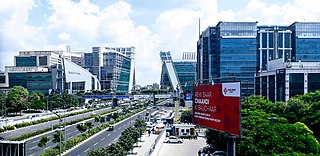
Haryana is an Indian state located in the northern part of the country. It was carved out of the former state of East Punjab on 1 November 1966 on a linguistic basis. It is ranked 21st in terms of area, with less than 1.4% of India's land area. The state capital is Chandigarh, which it shares with the neighboring state of Punjab, and the most populous city is Faridabad, which is a part of the National Capital Region. The city of Gurugram is among India's largest financial and technology hubs. Haryana has 6 administrative divisions, 22 districts, 72 sub-divisions, 93 revenue tehsils, 50 sub-tehsils, 140 community development blocks, 154 cities and towns, 7,356 villages, and 6,222 villages panchayats.
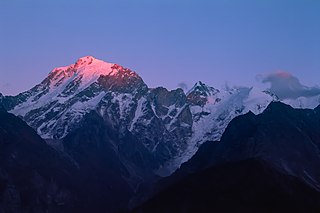
Himachal Pradesh is a state in the northern part of India. Situated in the Western Himalayas, it is one of the thirteen mountain states and is characterized by an extreme landscape featuring several peaks and extensive river systems. Himachal Pradesh is the northernmost state of India and shares borders with the union territories of Jammu and Kashmir and Ladakh to the north, and the states of Punjab to the west, Haryana to the southwest, Uttarakhand to the southeast and a very narrow border with Uttar Pradesh to the south. The state also shares an international border to the east with the Tibet Autonomous Region in China. Himachal Pradesh is also known as Dev Bhoomi, meaning 'Land of Gods' and Veer Bhoomi which means 'Land of the Brave'.
Sidereal winter solstice celebrations in South and Southeast Asian cultures; marking the transition of the Sun to Capricorn, and the first day of the six months Uttarayana period. (see April 14): Makar Sankranti (India)

Makara/Makar Sankranti or Uttarayan or Maghi or simply Sankranti, also known in West Bengal as Mokor Sonkranti, in Mithila as Til Sakraait and in Nepal as Maghe Sankranti, 'Sankranti' here means ‘transfer’, this day is considered as the transition day of Sun into Capricorn. Now the sun moves northwards in the Hindu calendar, dedicated to the deity Surya, many native multi-day festivals are organised all over India. It is observed each year the day Sun enters the Capricorn zodiac which corresponds with the month of January as per the Gregorian calendar. It marks the first day of the sun's transit into Makara rashi (Capricorn).

India, officially the Republic of India, is a country in South Asia. It is the seventh-largest country by area, the second-most populous country, and the most populous democracy in the world. Bounded by the Indian Ocean on the south, the Arabian Sea on the southwest, and the Bay of Bengal on the southeast, it shares land borders with Pakistan to the west; China, Nepal, and Bhutan to the north; and Bangladesh and Myanmar to the east. In the Indian Ocean, India is in the vicinity of Sri Lanka and the Maldives; its Andaman and Nicobar Islands share a maritime border with Thailand, Myanmar, and Indonesia. The nation's capital city is New Delhi.
Sidereal winter solstice celebrations in South and Southeast Asian cultures; marking the transition of the Sun to Capricorn, and the first day of the six months Uttarayana period. (see April 14): The first day of Pongal (Tamil Nadu)
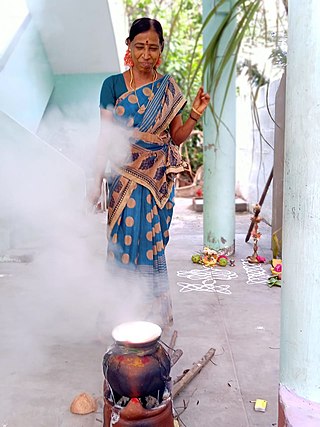
Pongal, also referred to as Tai Pongal (தைப்பொங்கல்), is a multi-day Hindu harvest festival celebrated by Tamils in India and Sri Lanka. It is observed at the start of the month Tai according to Tamil solar calendar, and this is typically about January 14. It is dedicated to the sun god, Surya, and corresponds to Makar Sankranti, the harvest festival under many regional names celebrated throughout India. The three days of the Pongal festival are called Bhogi Pongal, Surya Pongal, and Mattu Pongal. Some Tamils celebrate a fourth day of Pongal known as Kanum Pongal.

Tamil Nadu is a state in southern India. It is the tenth largest Indian state by area and the sixth largest by population. Its capital and largest city is Chennai. Tamil Nadu is the home of the Tamil people, whose Tamil language—one of the longest surviving classical languages in the world—is widely spoken in the state and serves as its official language.
Sidereal winter solstice celebrations in South and Southeast Asian cultures; marking the transition of the Sun to Capricorn, and the first day of the six months Uttarayana period. (see April 14): Uttarayan (Uttarakhand, Gujarat and Rajasthan)
The term Uttarāyaṇa is derived from two different Sanskrit words – "uttara" (North) and "ayana" (movement) – thus indicating a semantic of the northward movement of the Sun on the celestial sphere. This movement begins to occur a day after the winter solstice in December, which occurs around 22 December and continues for a six-month period through to the summer solstice around June 21. This difference is because the solstices continually precess at a rate of 50 arcseconds per year due to the precession of the equinoxes, i.e. this difference is the difference between the sidereal and tropical zodiacs. The Surya Siddhanta bridges this difference by juxtaposing the four solstitial and equinoctial points with four of the twelve boundaries of the rashis.
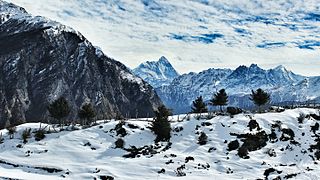
Uttarakhand, also known as Uttaranchal, is a state in the northern part of India. It is often referred to as the "Devbhumi" due to its religious significance and numerous Hindu temples and pilgrimage centres found throughout the state. Uttarakhand is known for the natural environment of the Himalayas, the Bhabar and the Terai regions. It borders the Tibet Autonomous Region of China to the north; the Sudurpashchim Province of Nepal to the east; the Indian states of Uttar Pradesh to the south and Himachal Pradesh to the west and north-west. The state is divided into two divisions, Garhwal and Kumaon, with a total of 13 districts. The winter capital of Uttarakhand is Dehradun, the largest city of the state, which is a rail head. Bhararisain, a town in Chamoli district, is the summer capital of Uttarakhand. The High Court of the state is located in Nainital.

Gujarat is a state along the western coast of India. Its coastline of about 1,600 km (990 mi) is the longest in the country, most of which lies on the Kathiawar peninsula. Gujarat is the fifth-largest Indian state by area, covering some 196,024 km2 (75,685 sq mi); and the ninth-most populous state, with a population of 60.4 million. It is bordered by Rajasthan to the northeast, Dadra and Nagar Haveli and Daman and Diu to the south, Maharashtra to the southeast, Madhya Pradesh to the east, and the Arabian Sea and the Pakistani province of Sindh to the west. Gujarat's capital city is Gandhinagar, while its largest city is Ahmedabad. The Gujaratis are indigenous to the state and their language, Gujarati, is the state's official language.

Rajasthan is a state in northern India. It covers 342,239 square kilometres (132,139 sq mi) or 10.4 per cent of India's total geographical area. It is the largest Indian state by area and the seventh largest by population. It is on India's northwestern side, where it comprises most of the wide and inhospitable Thar Desert and shares a border with the Pakistani provinces of Punjab to the northwest and Sindh to the west, along the Sutlej-Indus River valley. It is bordered by five other Indian states: Punjab to the north; Haryana and Uttar Pradesh to the northeast; Madhya Pradesh to the southeast; and Gujarat to the southwest. Its geographical location is 23.3 to 30.12 North latitude and 69.30 to 78.17 East longitude, with the Tropic of Cancer passing through its southernmost tip.
World Logic Day (UNESCO)
World Logic Day is an international day proclaimed by UNESCO in association with the International Council for Philosophy and Human Sciences (CIPSH) in November 2019 to be celebrated on 14 January every year. It was first celebrated on 14 January 2019, before the UNESCO declaration. World Logic Day intends to bring the intellectual history, conceptual significance and practical implications of logic to the attention of interdisciplinary science communities and the broader public.
The United Nations Educational, Scientific and Cultural Organization is a specialised agency of the United Nations (UN) aimed at promoting world peace and security through international cooperation in education, arts, sciences and culture. It has 193 member states and 12 associate members, as well as partners in the non-governmental, intergovernmental and private sector. Headquartered at the World Heritage Centre in Paris, France, UNESCO has 53 regional field offices and 199 national commissions that facilitate its global mandate.